On Hope: Theological Reflection and Prayer Shapes Third Annual Summer School
2020 School of Theology, Culture & Public Engagement
It’s not always easy “creating space in a busy city for theological reflection”, even when the ideas shaping culture require it for today’s followers of Christ. So when almost 300 women and men from six states and three countries gathered in January for ADM’s third annual School of Theology, Culture & Public Engagement (STCPE), it took summer holidays to a new level.
Participants explored topics such as how best to reach the nations in a broken world, political theology, suicide prevention, Shakespeare, singleness in the church and a host of other current issues with practical implications for Christian life in the public square. The three-day summer school — sponsored this year by the Australian College of Theology—included 24 unique masterclasses as well as three evening events with leading Christian thinkers from around the world.
“Jesus doesn’t just point to the goodness of God—he is the goodness of God. We’re transformed in his presence when we stay in prayer long enough. In the modern paradigm we’ve believed in our own agency to change the world. But prayer (for women in history like Josephine Butler) was a transformative embodied practice, a pedagogy of justice and hope.”
“Each time I come to ADM I feel as if I have come home, to a place where people are connected and are on the same pilgrimage I am aiming to be on,” said Sarah C. Williams, Research Professor in the History of Christianity at Regent College Vancouver and Research Associate at St Benet’s Hall Oxford.
“Evangelical Faith, Past, Present and Future”, STCPE’s opening panel event.
Williams spoke at two evening events: one on a panel entitled “Faith in Action: Past, Present and Future” with Meredith Lake (moderator), Tim Costello, Brooke Prentis and Jacob Sarkodee, and another at the STCPE closing reception with a keynote on “Prayer, Agency and Cultural Transformation.” Williams also taught a two-part masterclass on the theology of first wave feminism where she explored what Christianity teaches us about what means to be human in various cultural contexts, citing specific case studies of Christian women in history.
“Jesus doesn’t just point to the goodness of God—he is the goodness of God,” Williams said in her keynote. “We’re transformed in his presence when we stay in prayer long enough. In the modern paradigm we’ve believed in our own agency to change the world. But prayer (for women in history like Josephine Butler) was a transformative embodied practice, a pedagogy of justice and hope.”
The idea of hope and prayer also emerged as a recurring theme throughout the week. Executive Director of Micah Australia, and a Senior Fellow of the Centre for Public Christianity, Costello taught a sold-out masterclass, “Hope: the world as it is and as it can be”. He drew on his lifetime of leadership experience in public ministry, advocacy and social impact to share his vision for how the Church can and must be a compelling force for good in every corner of the globe.
Professor Karen Mason
“The importance of the Christian hope is what has sustained me, and what I’ve learned again and again through the study of suicide prevention,” said Karen E. Mason, Professor of Counselling and Psychology at Gordon-Conwell Theological Seminary in Boston where she is also the Director of the Hamilton Counselling Program. With over 15 years of experience equipping others on suicide prevention in faith-based communities, Mason’s two masterclasses provided practical steps for church members and ministry leaders to help care for those who might be thinking of taking their life. Sarah and Rev. Dr. Keith Condie, co-Directors of ADM’s Mental Health and Pastoral Care Institute who also taught a masterclass on wellbeing, moderated an evening dinner discussion with Mason on “Integrating Theology and Psychology”. Mason was also a guest of Pastor Dominic Steel’s show, The Pastor’s Heart where she discussed practical care for families, theological support for life, and even how pastors might conduct funeral services.
“We need to create a sense of community that opens up authenticity and vulnerability, not only a space where people feel as if they matter and belong,” Mason said. “This is the difference between community and deep community.”
Other masterclasses took participants on a deep dive into theology: Rev Dr Andrew Cameron, Director of St Mark’s National Theological Centre, taught two masterclasses on “Public Theology” and “Political Theology,” while Rev Dr Michael Jensen taught on theological anthropology and genre. Engagement with key figures in the history of Christian thought was another theme with Rhys Bezzant from Ridley College helping participants get to know the work of Jonathan Edwards, while ADM Senior Research Fellow Dr Roberta Kwan explored Shakespeare and ADM Senior Research Fellow Rev. Dani Treweek took her masterclass on a tour through the surprising history of singleness.
“I believe in the sovereignty and grace of forgiveness, which helps me not to be anxious”
Other culturally relevant topics for work and ministry included ADM Senior Fellow Brooke Prentis’s class on “Taking the Aboriginal Hand of Friendship” and Rev. Erica Hamence (St Barnabas Broadway) “Crafting Sermons for Real Life”. Stephanie Dunk (COO at ADM) on goal-setting and Mark Stephens from the Centre for Public Christianity on meekness and weakness in an argument culture, all provided insights for developing practical skills.
Bronwyn Lea, California-based author and editor of Propel Sophia’s online discipleship resource for women, taught two courses on writing for the Internet, providing tips on how to improve as both writers and readers to better serve audiences.
“It’s imperative to be an attentive reader before you try and learn how to perfect your writing,” Lea said. “Your words need to be more than the grades you earned in high school; they do not necessarily need to be more complex but rather more specific to keep your readers with such important Gospel insights.”
Rev. Dr Michael Jensen and Rev. Megan Powell, co-hosts of the Eternity podcast With All Due Respect, discussed how to have meaningful conversations even in disagreement. Their masterclass on podcasting—where they also recorded one of their shows—reflected both their approach and their goals for modelling helpful and respectful dialogue.
“The one who prays is set free from enculturation – freed from the prevailing mindsets, the assumptions, the lies and distortions of our culture that flood who we are as we meet with God in prayer, freed and drawn into active agency with God to mobilise and affect deep and lasting change.”
“I believe in the sovereignty and grace of forgiveness, which helps me not to be anxious,” Jensen said. “If you are doing podcasting right, it should hurt, because podcasting is an intimate way to communicate. You are connecting with the audience using your voice, stepping into the most intimate of spaces for people such as their home, car, or in their head. We have a great responsibility to one another.”
Through the range of masterclasses to the countless conversations over tea, participants gained a renewed and shared sense of Gospel hope for their workplace and communities, as well as a serious challenge to prayer. As Williams said, “The one who prays is set free from enculturation – freed from the prevailing mindsets, the assumptions, the lies and distortions of our culture that flood who we are as we meet with God in prayer, freed and drawn into active agency with God to mobilize and affect deep and lasting change.”





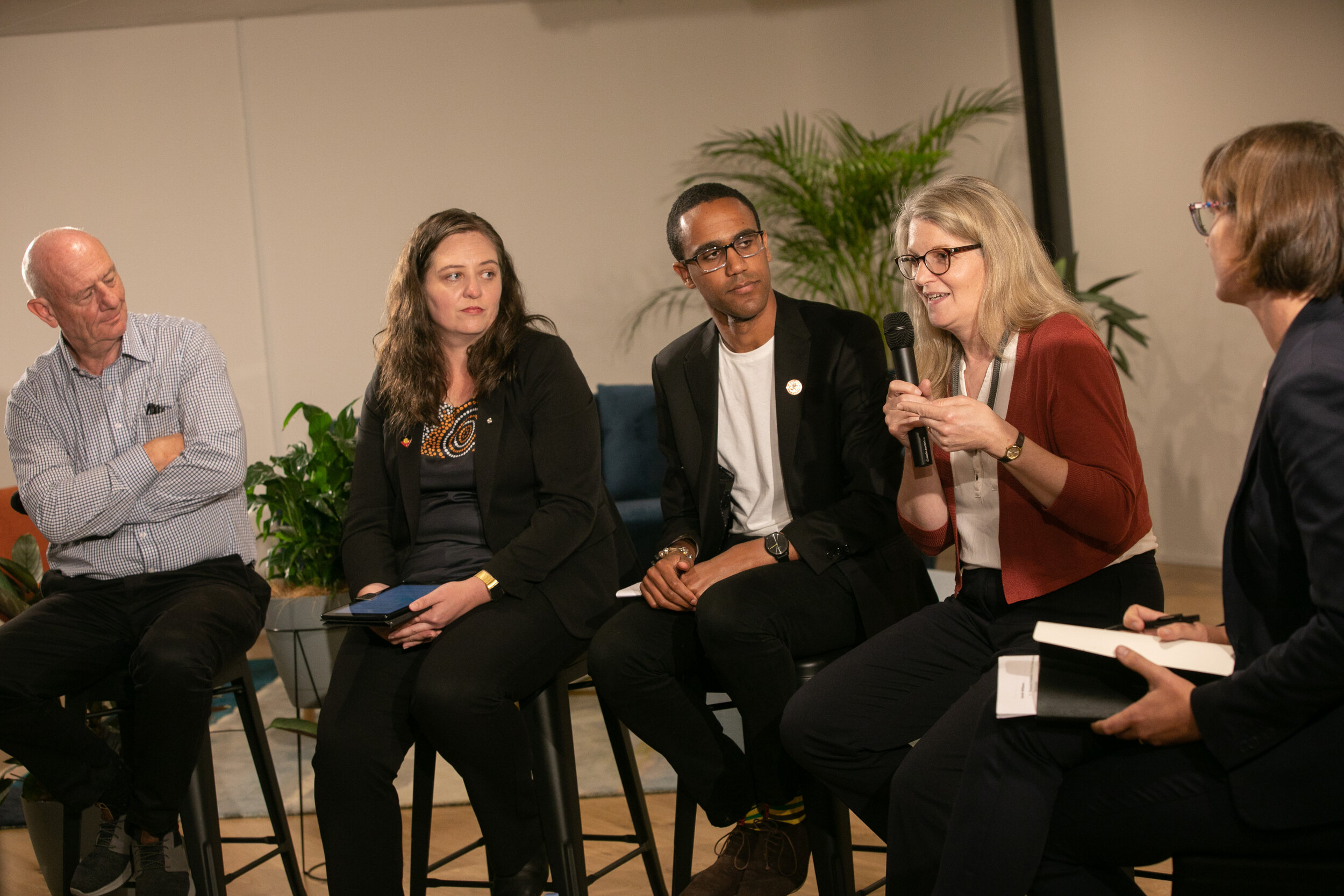
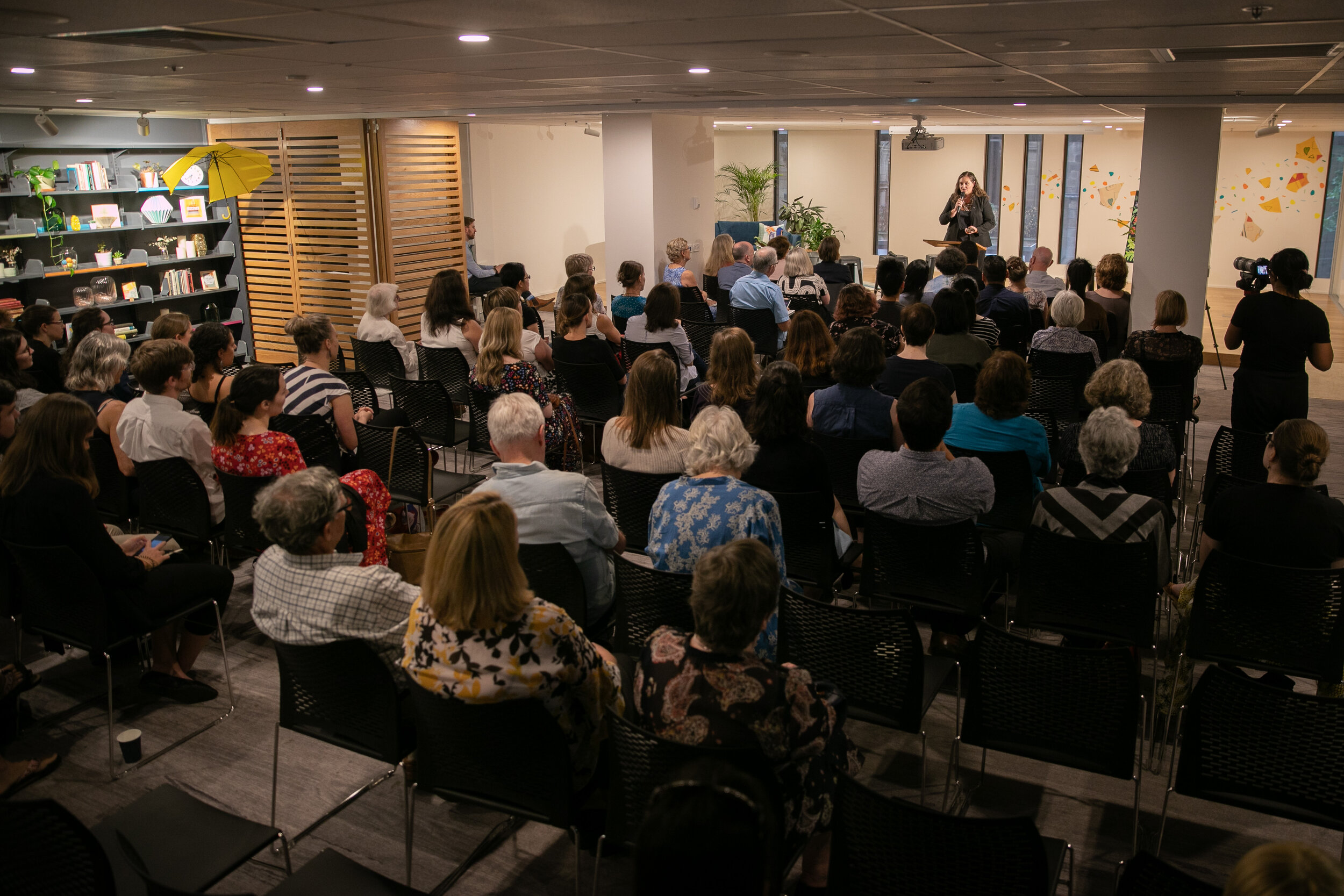
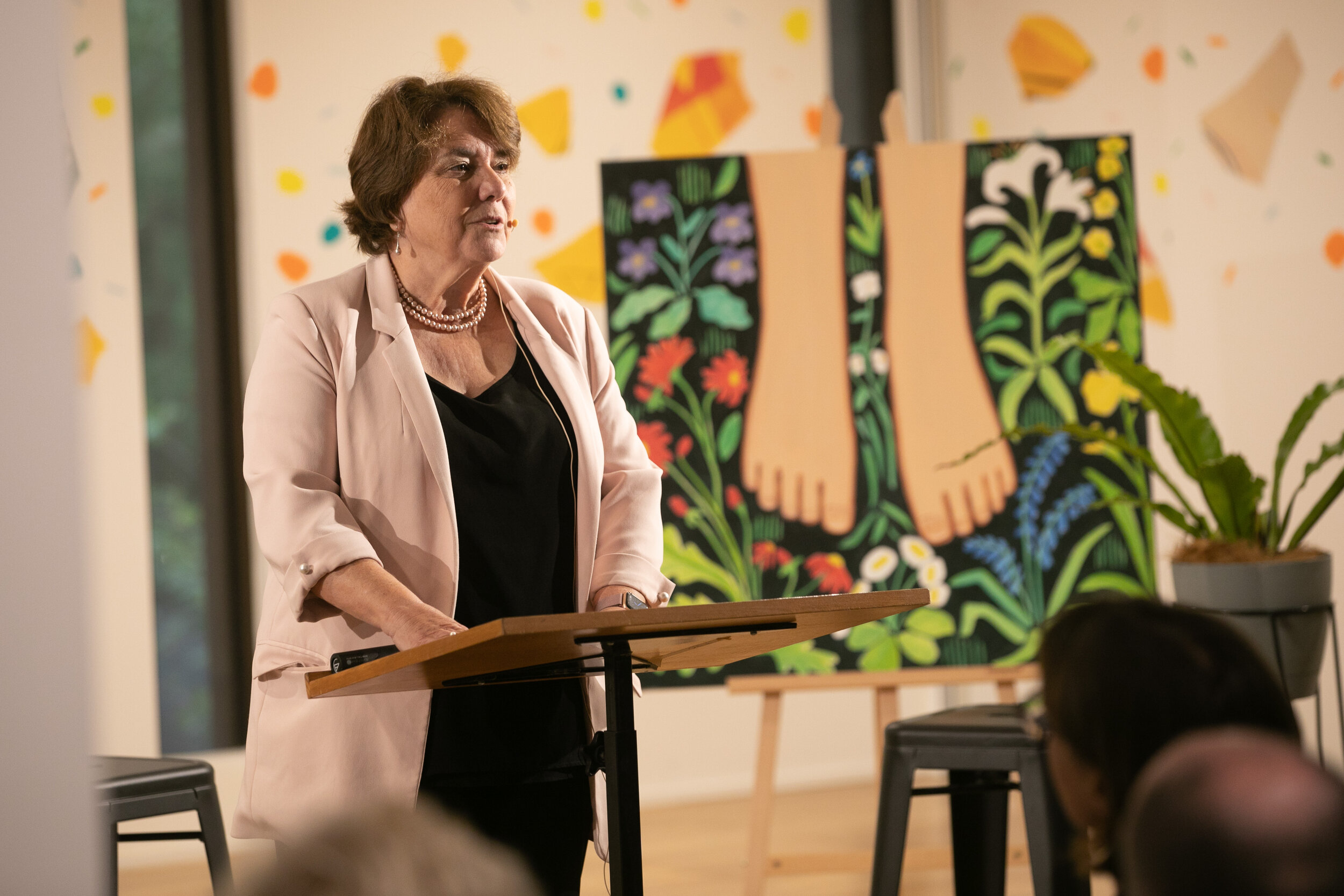
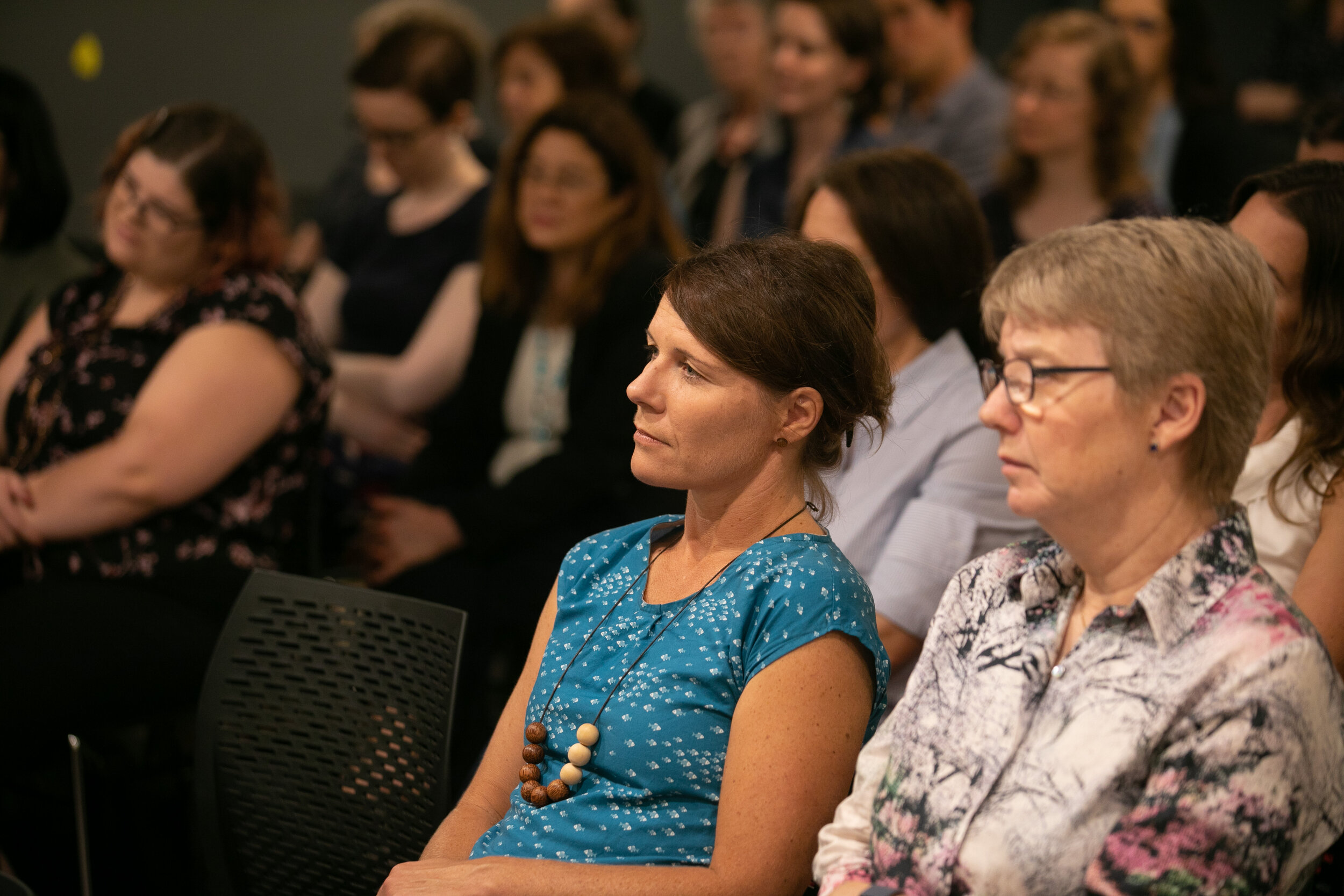
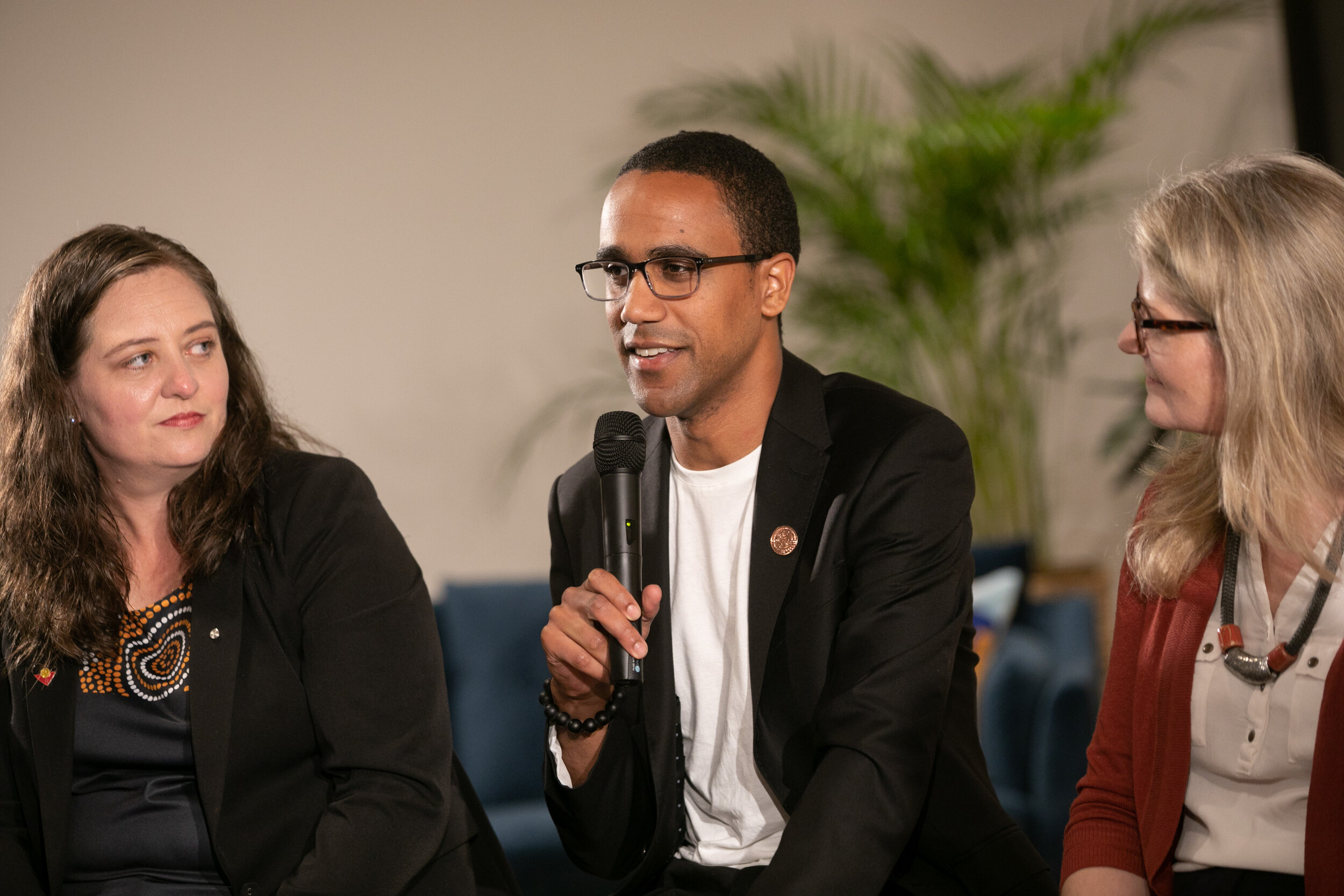
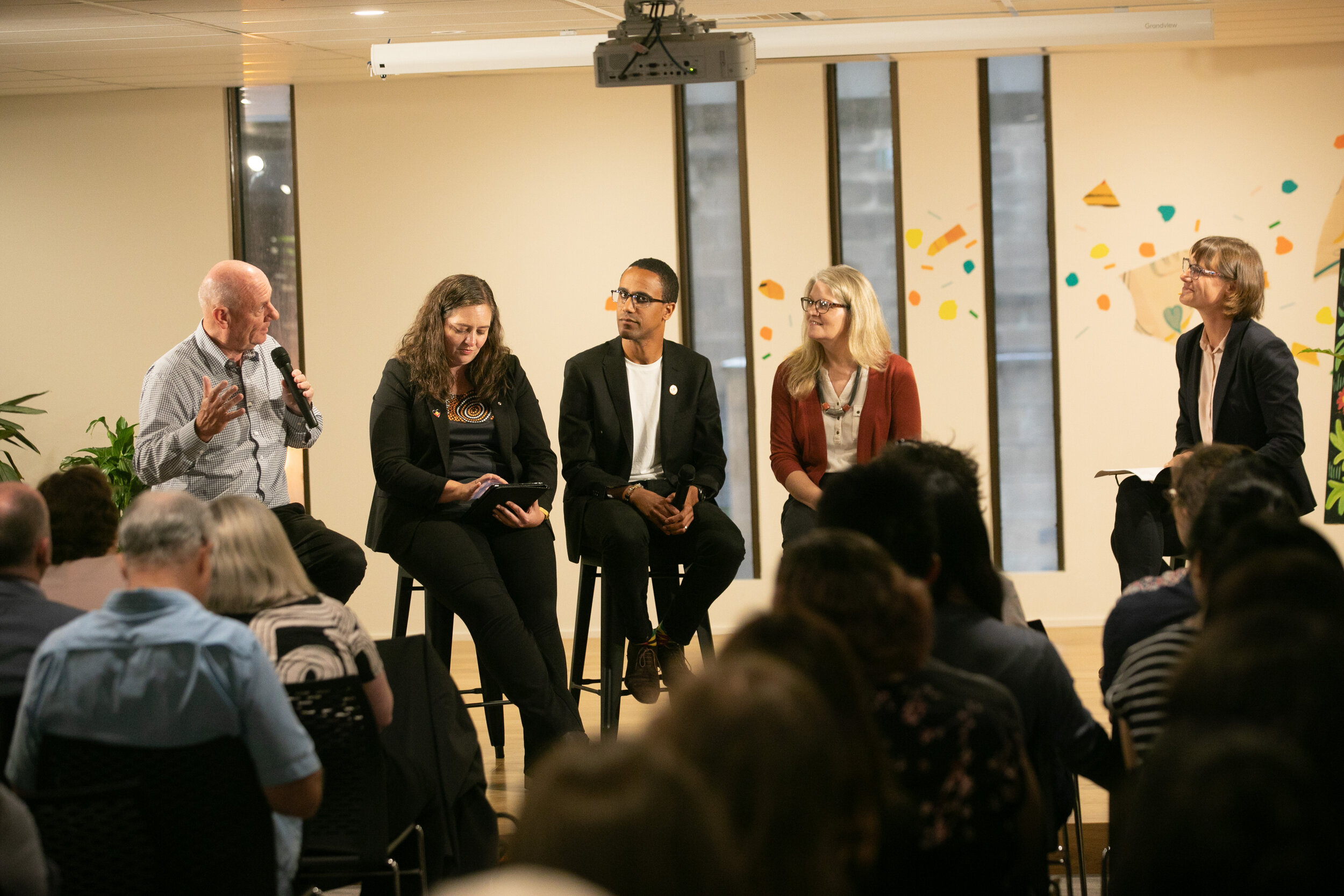
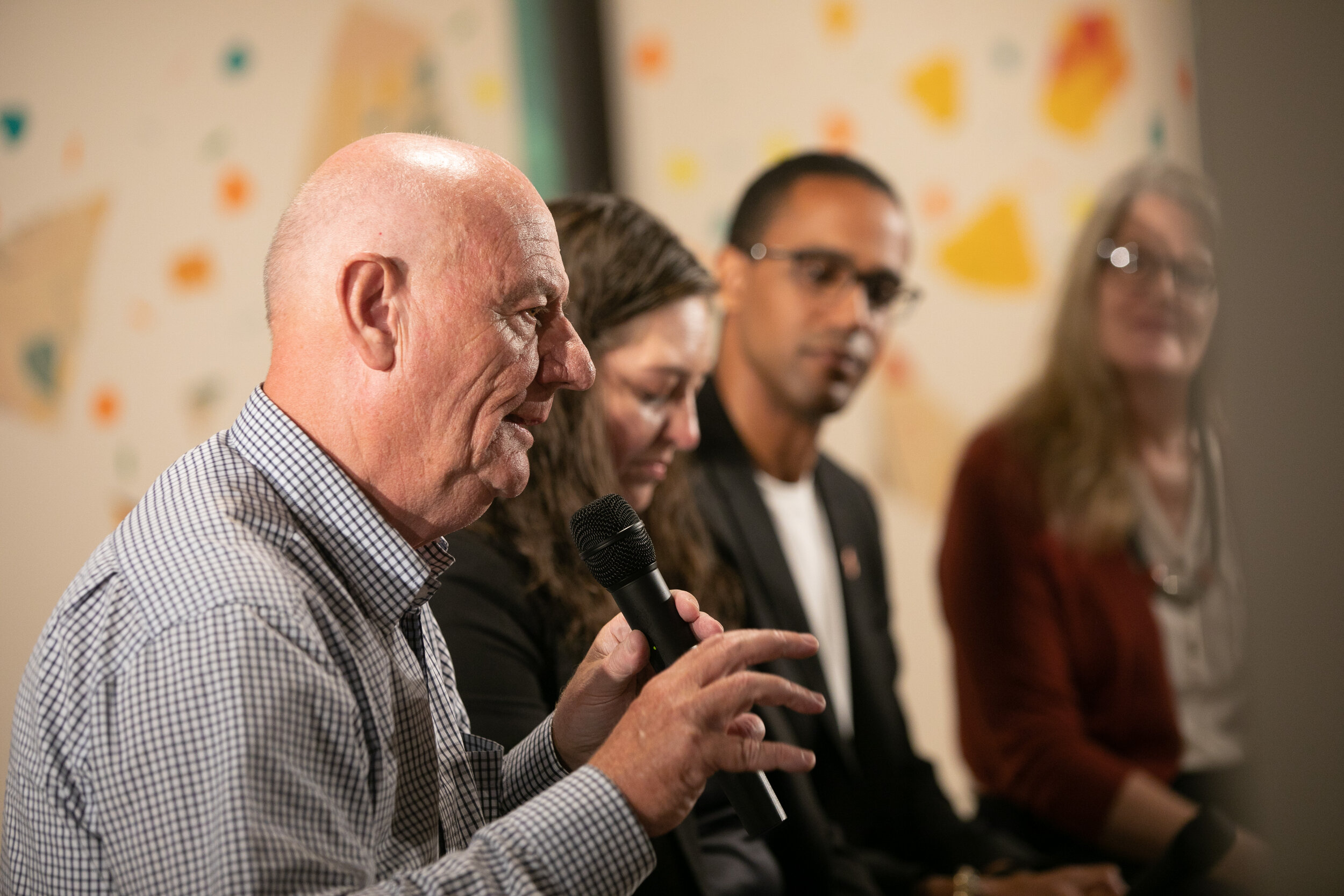
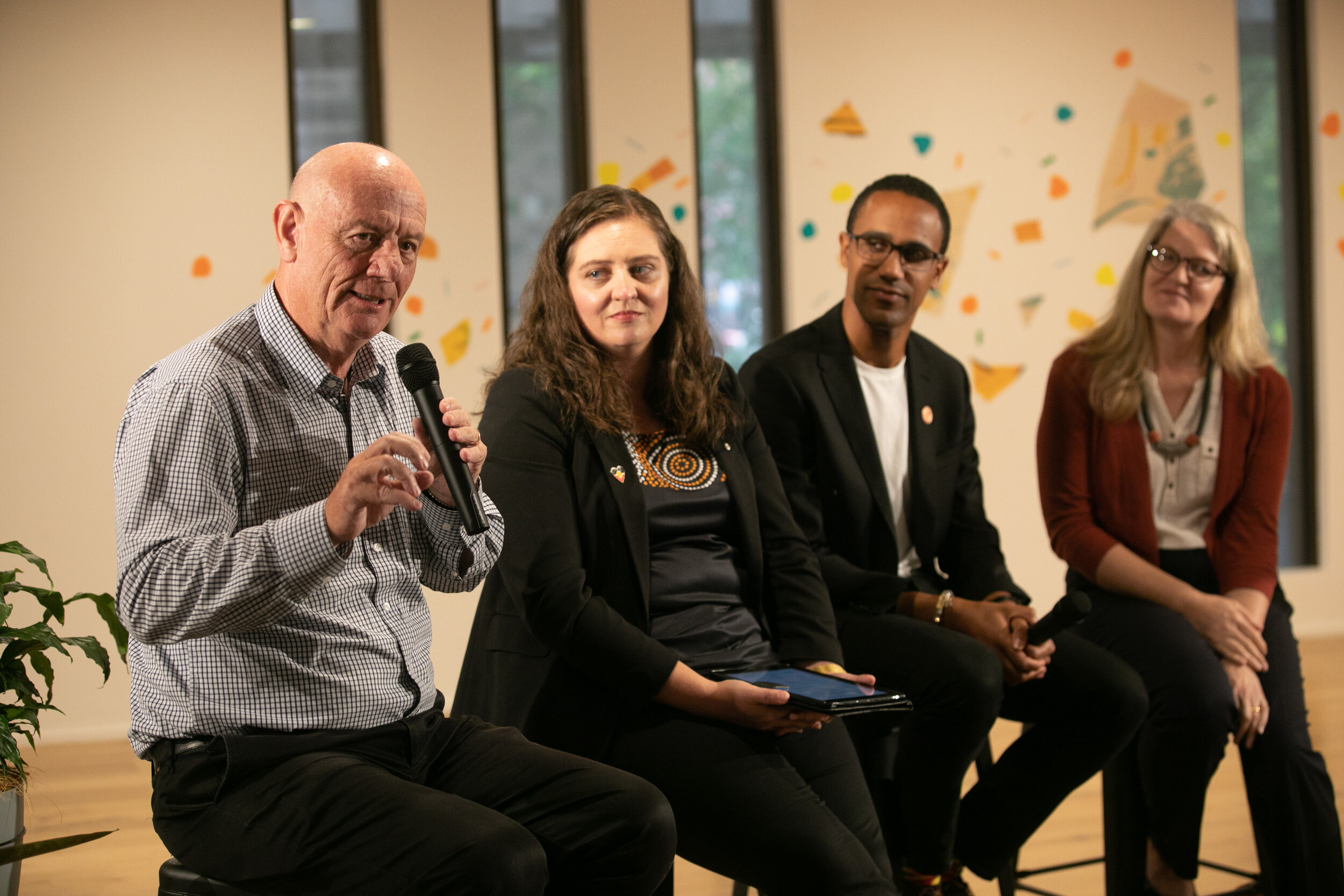
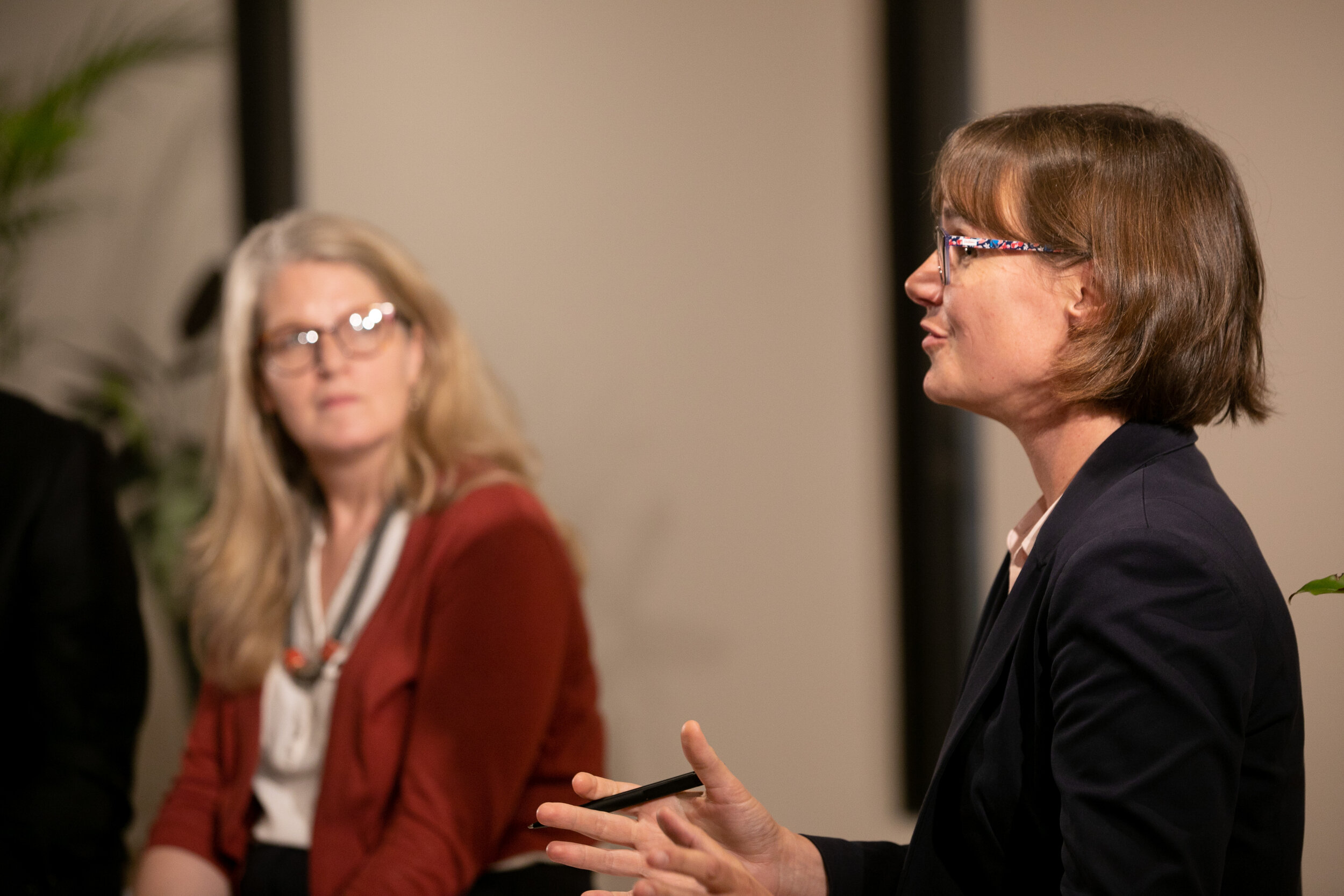
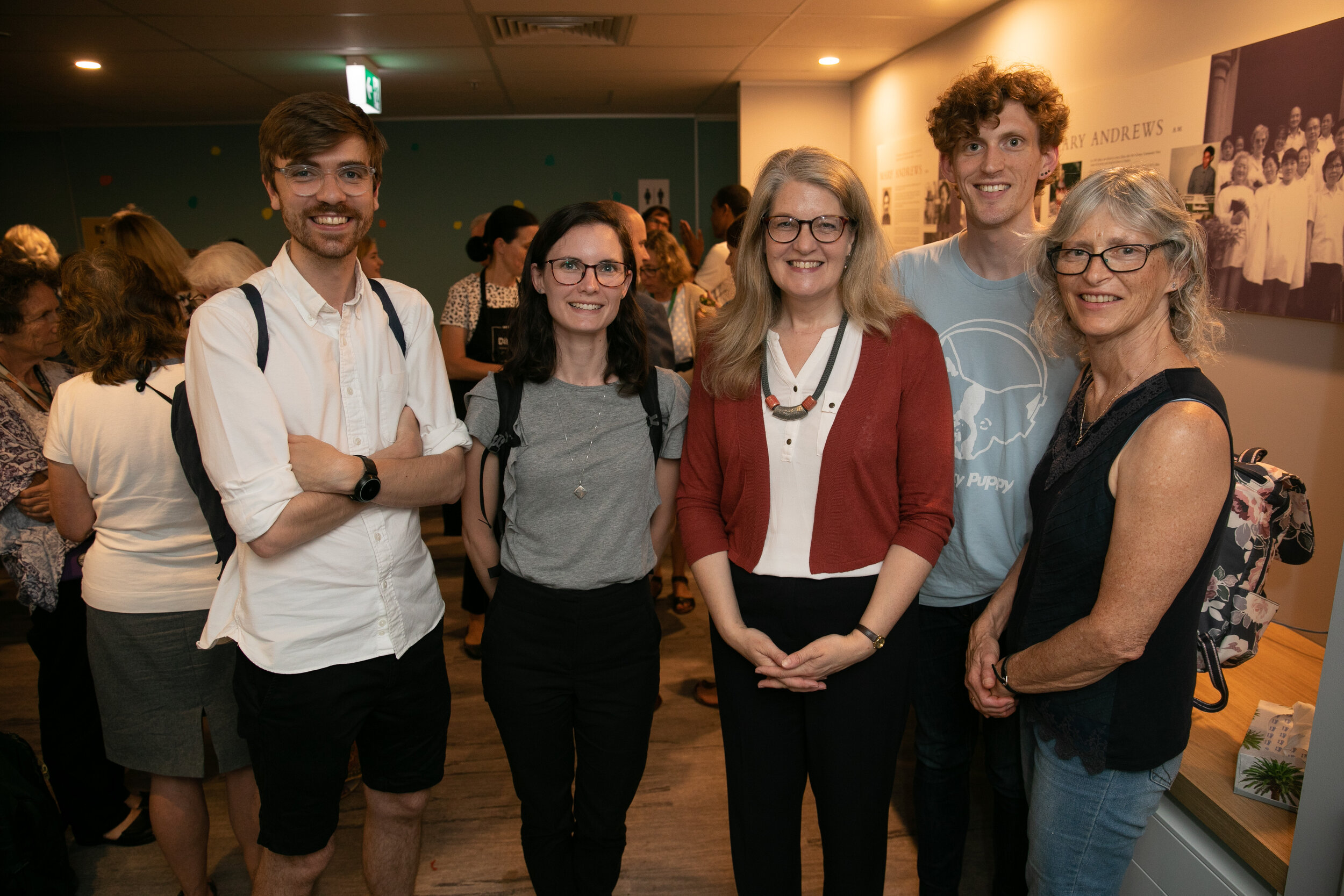
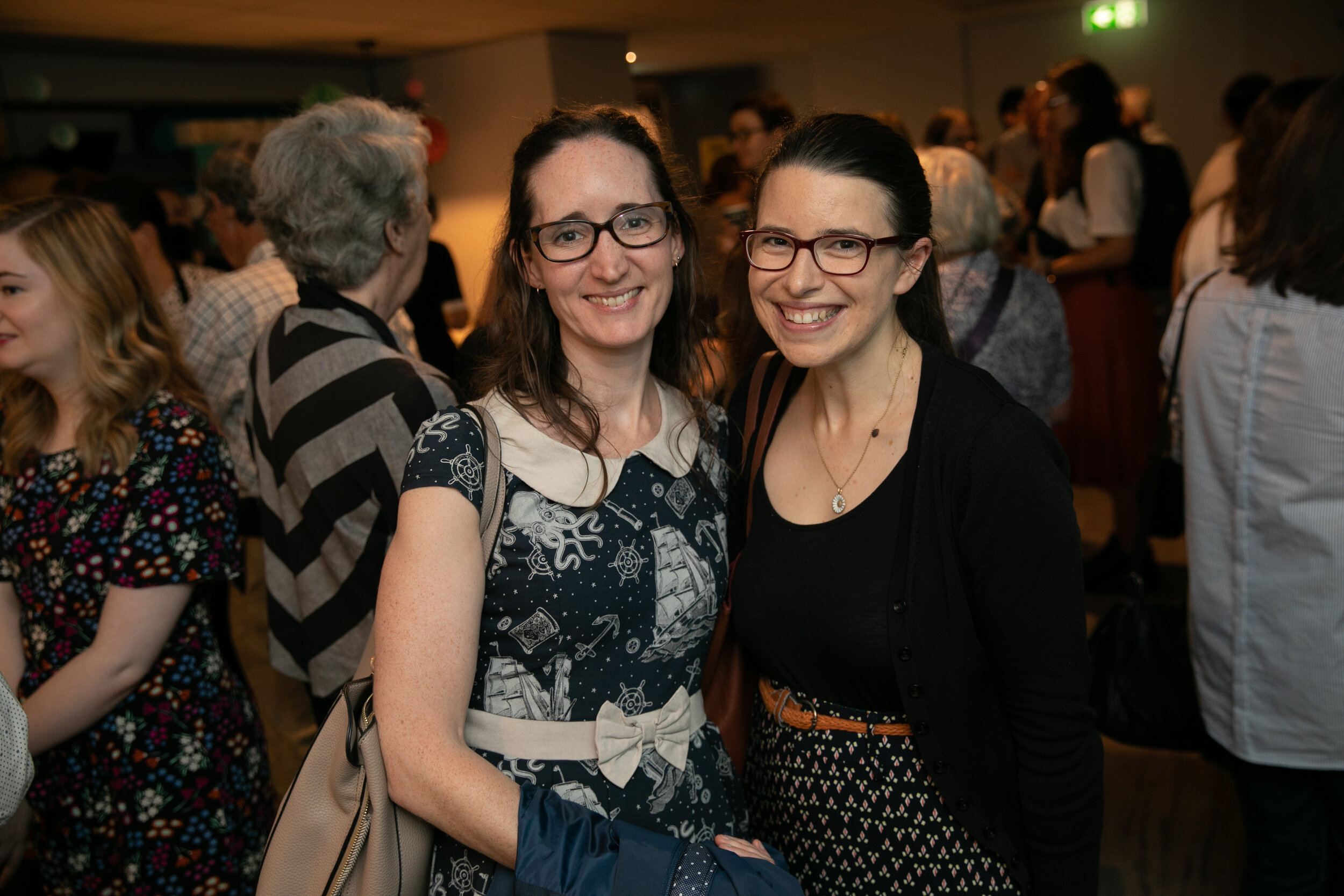
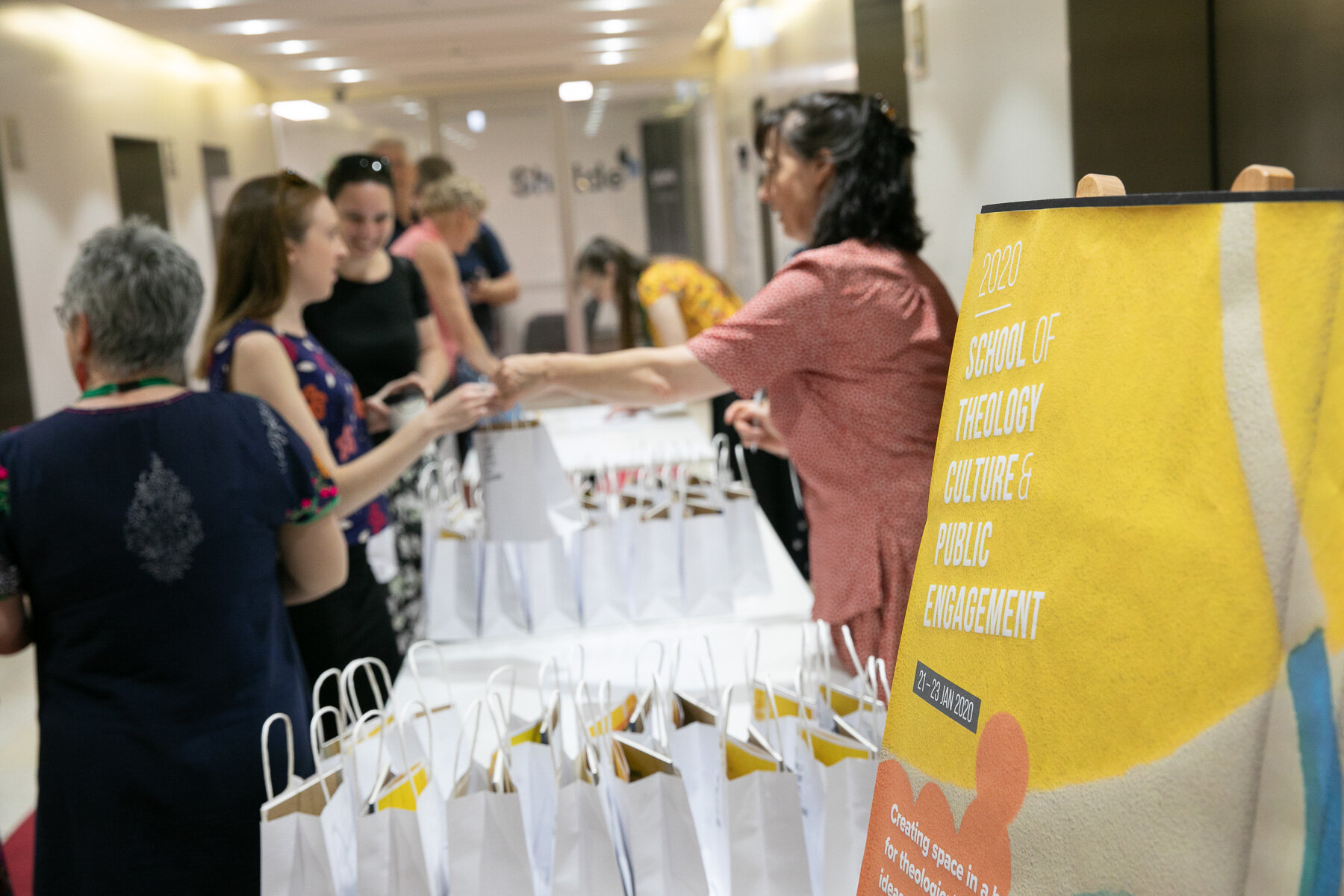
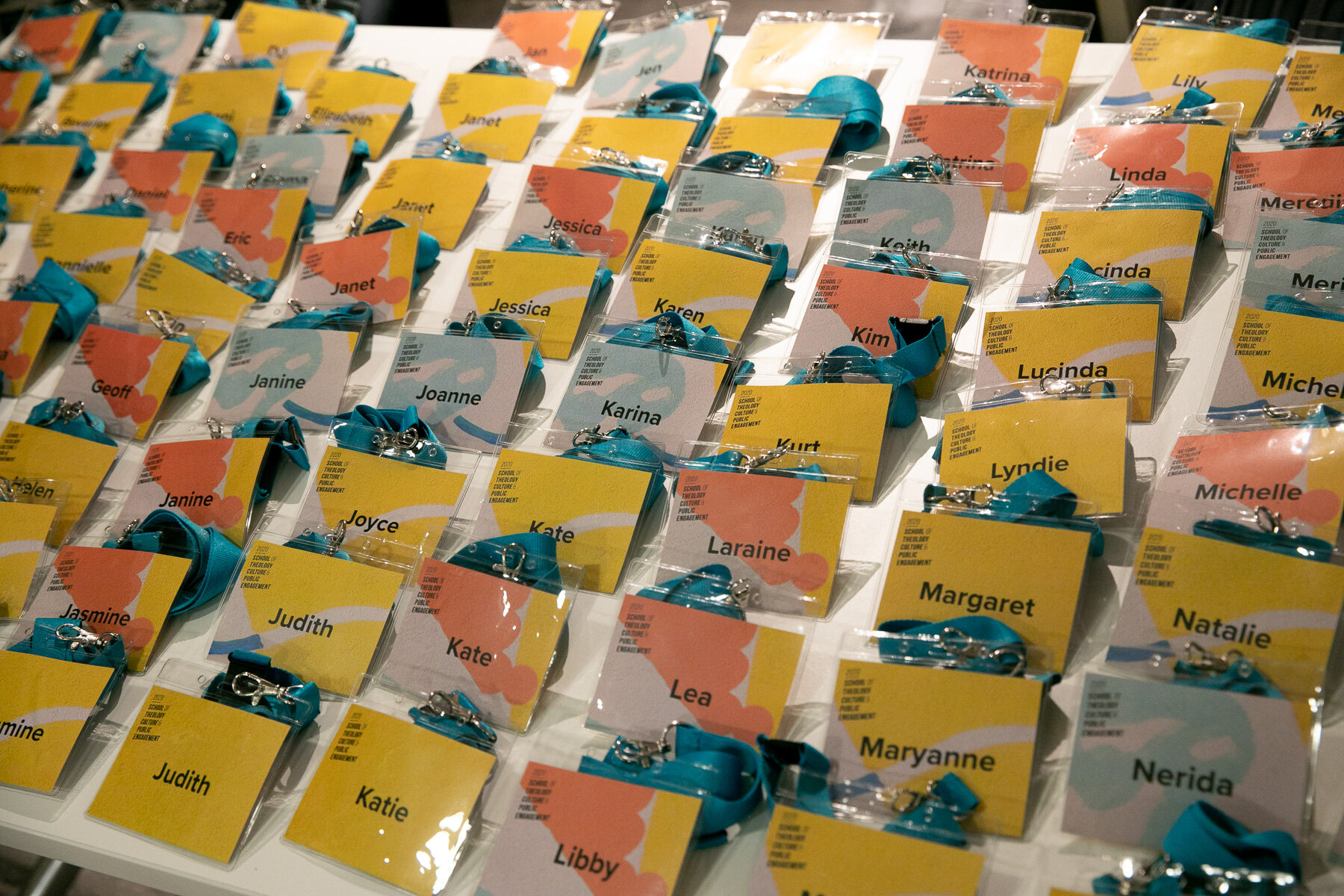
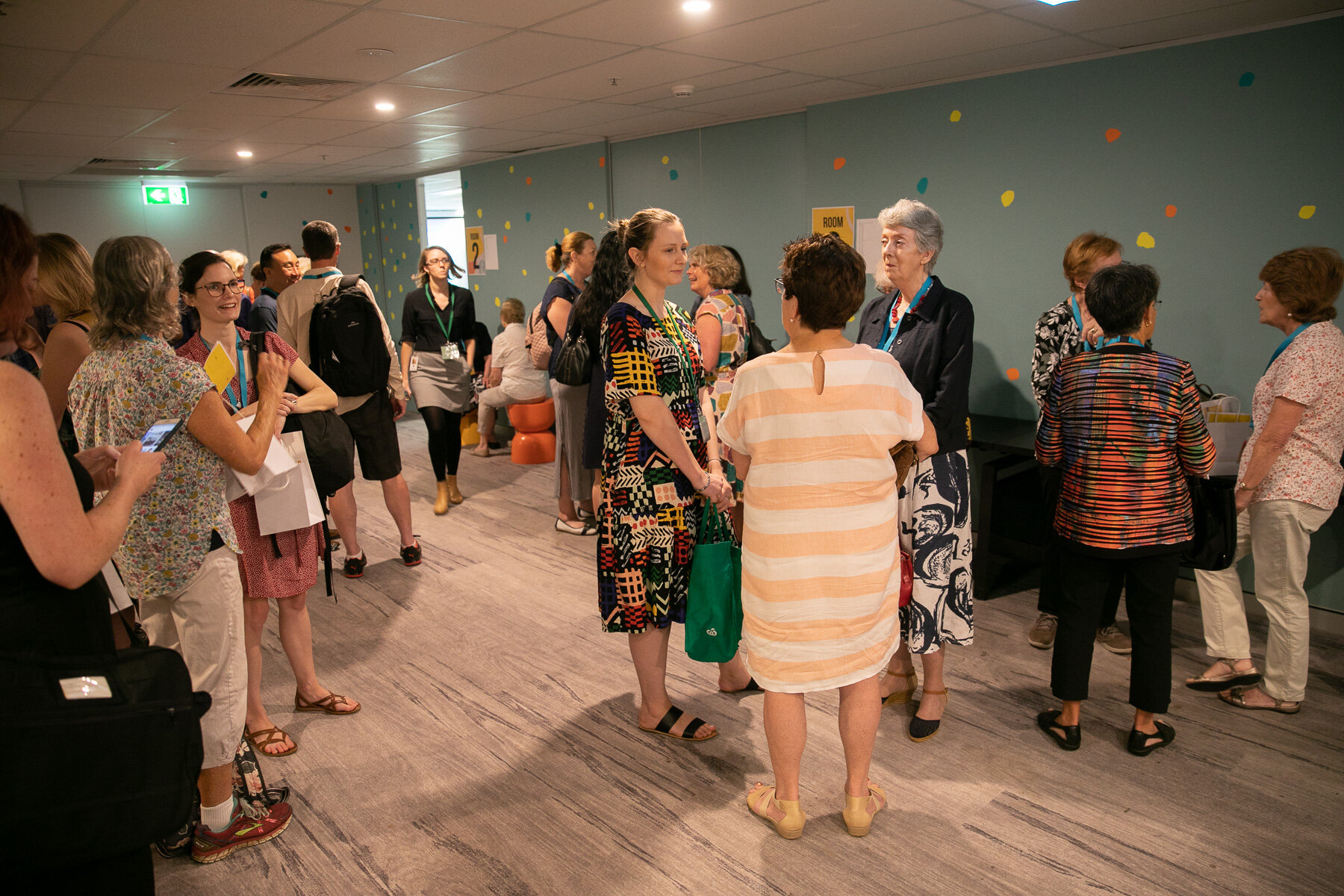
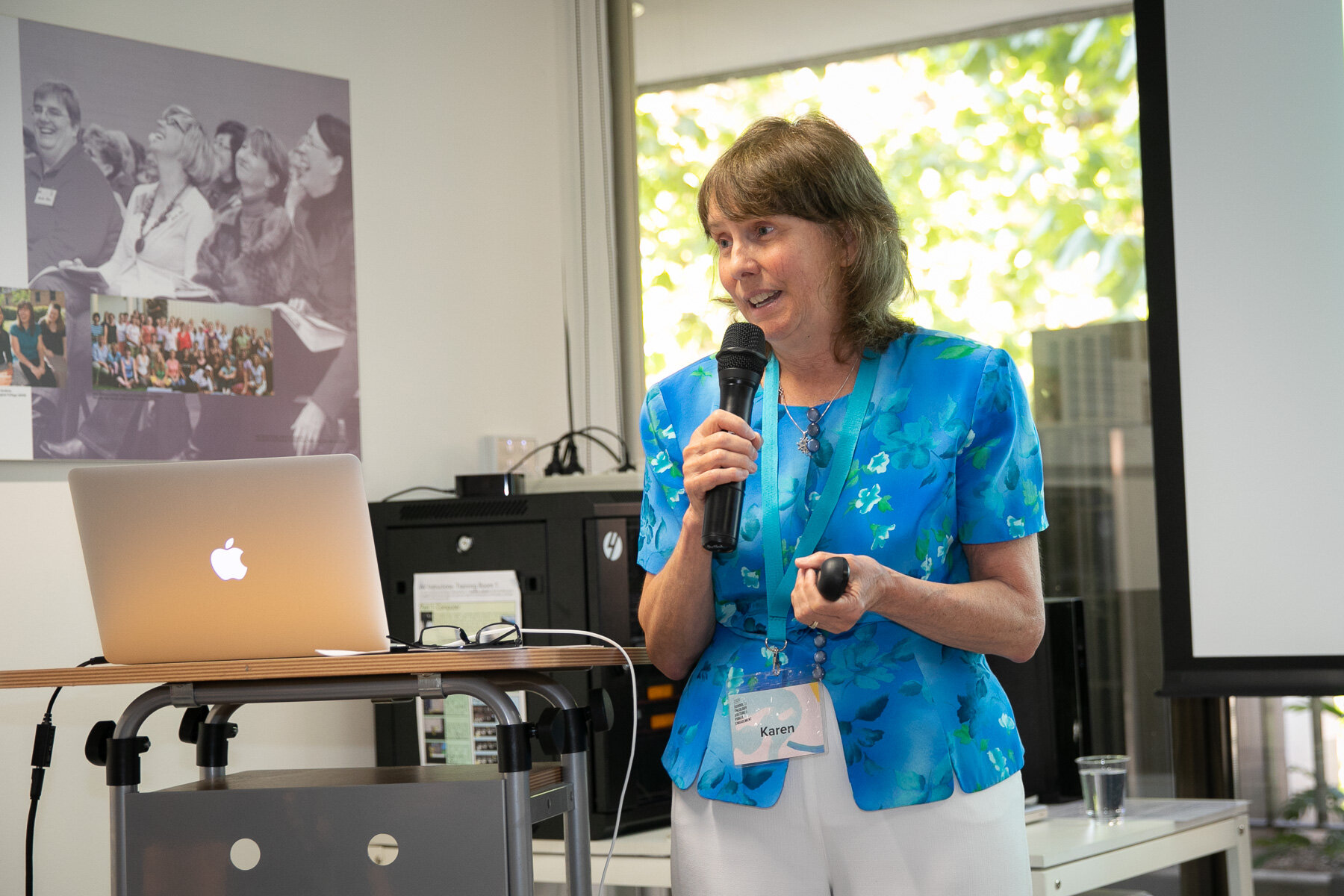
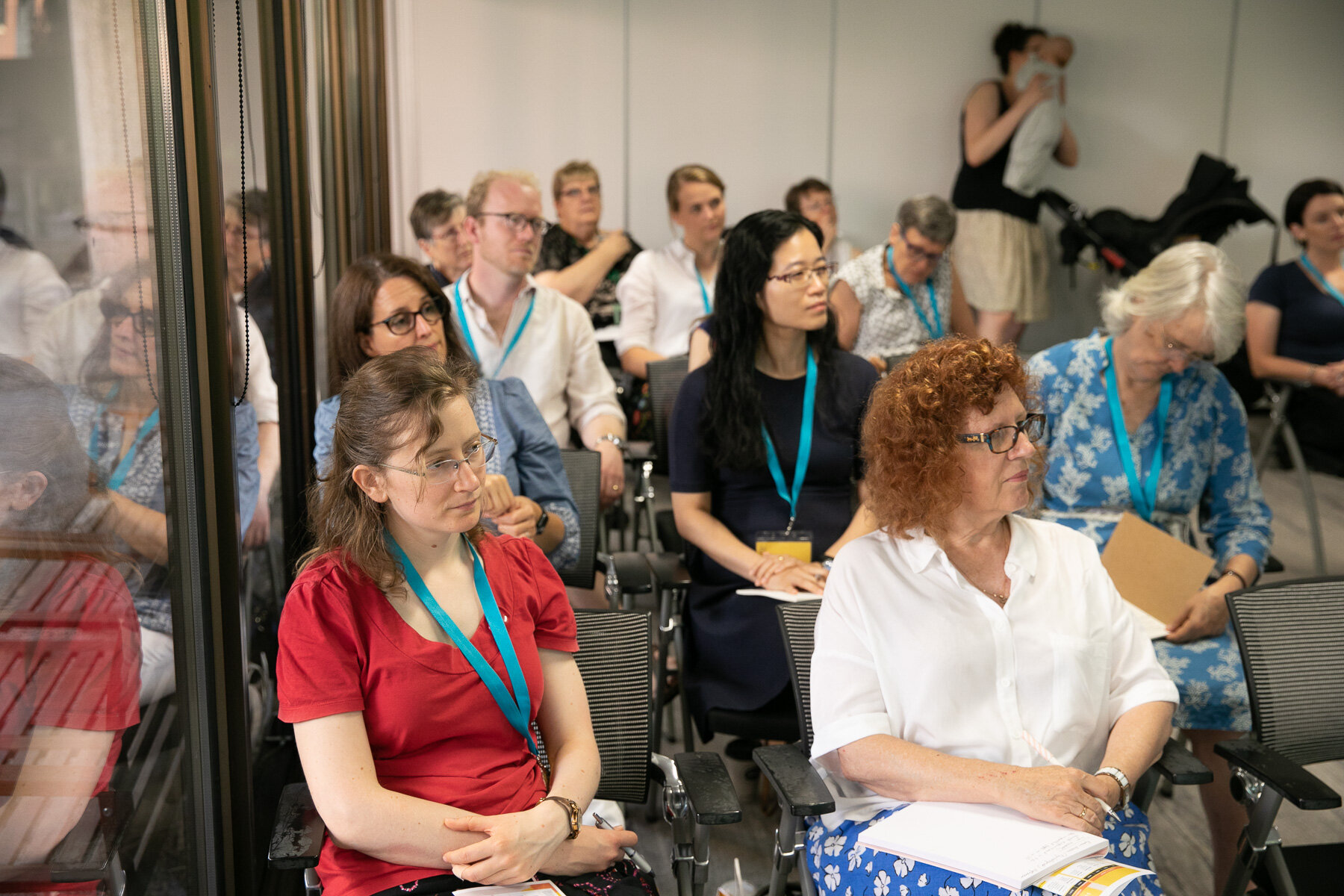
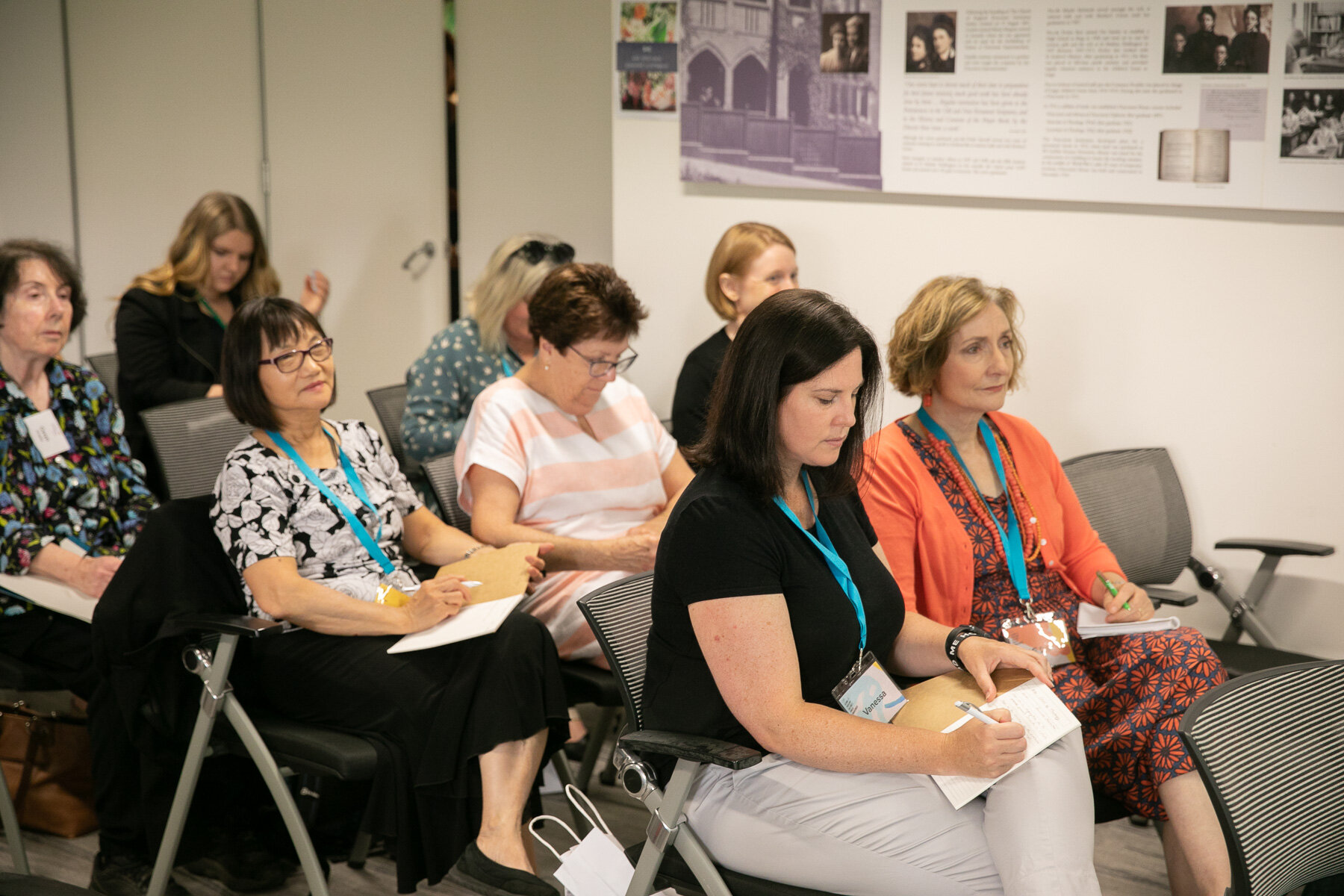
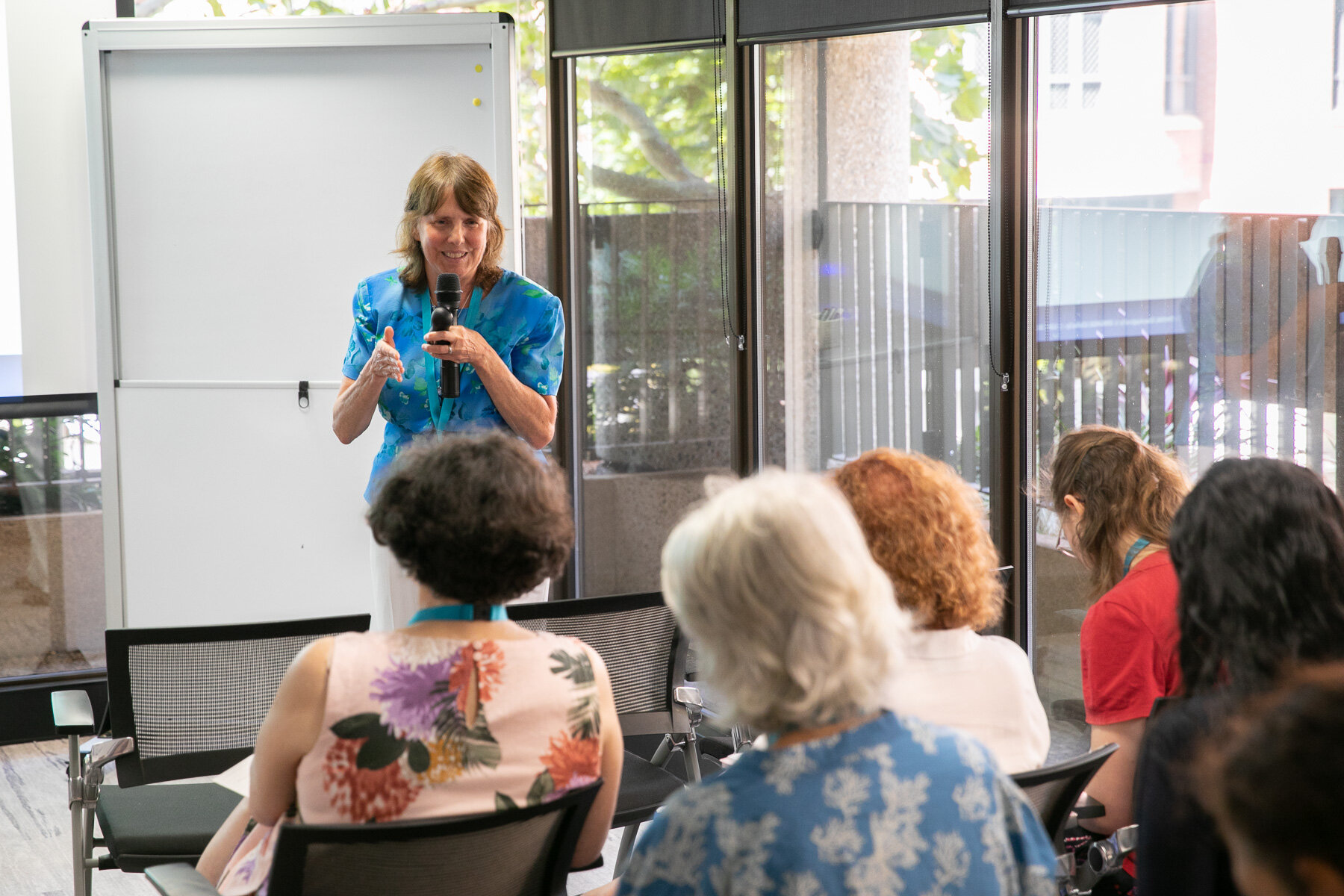
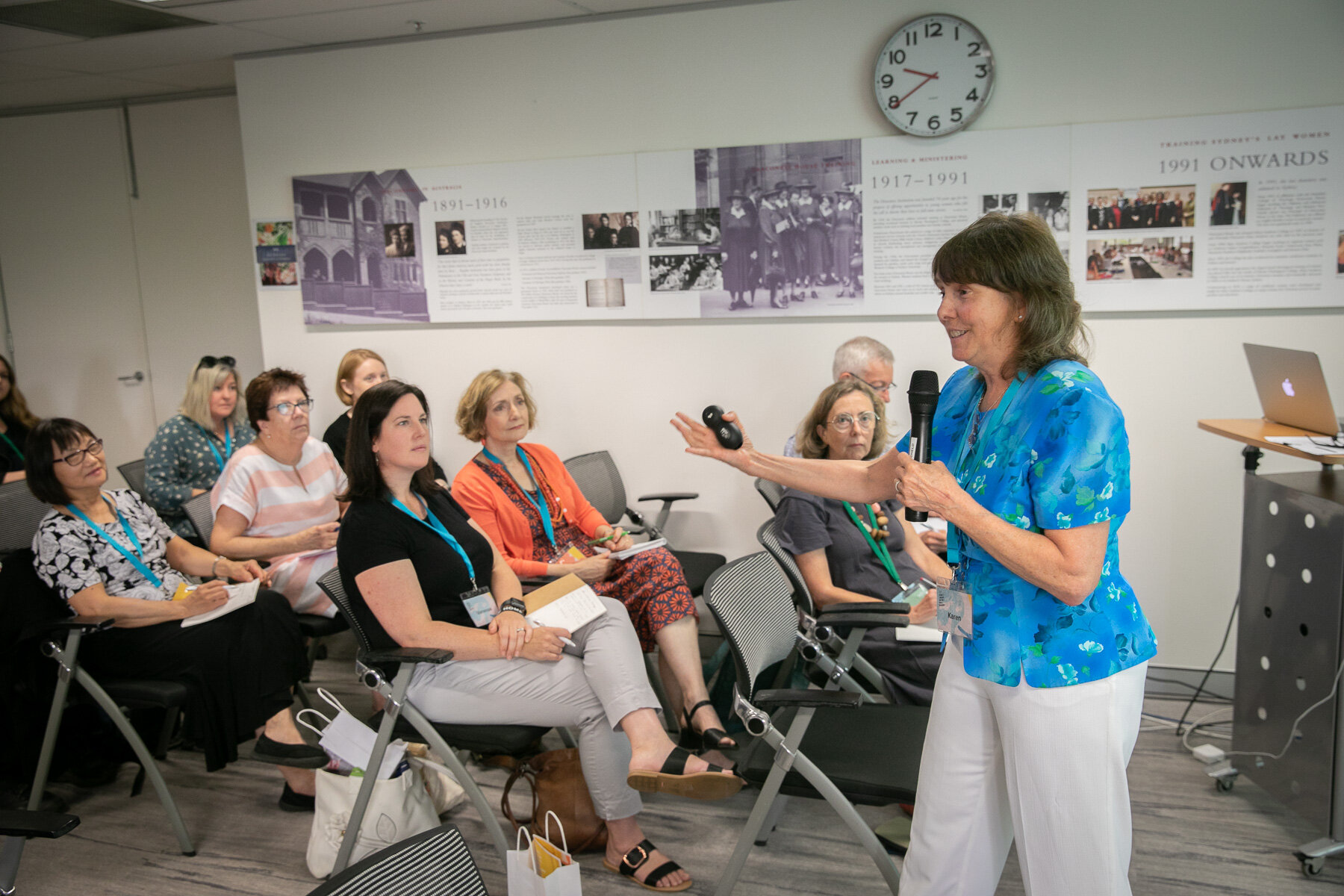
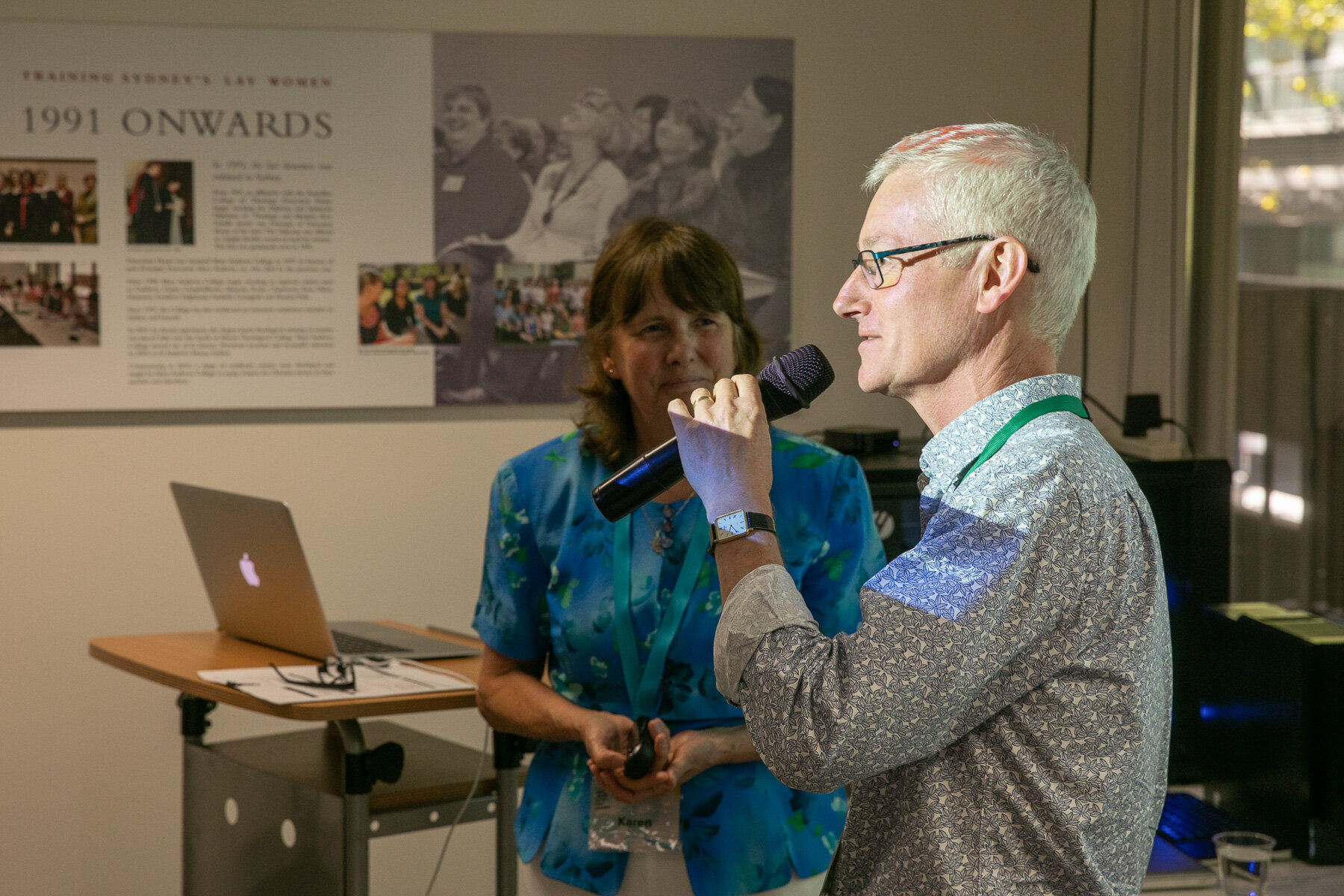
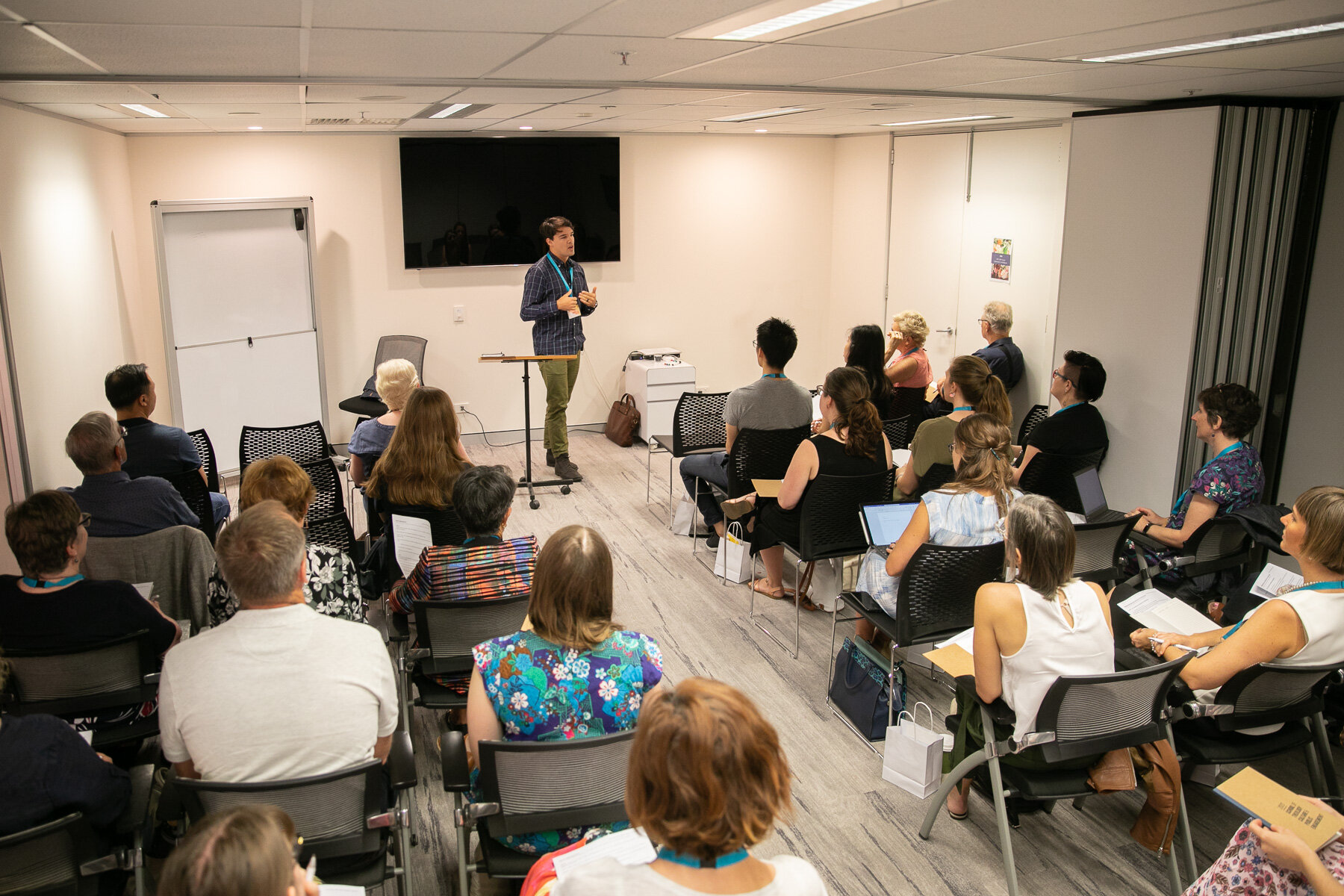
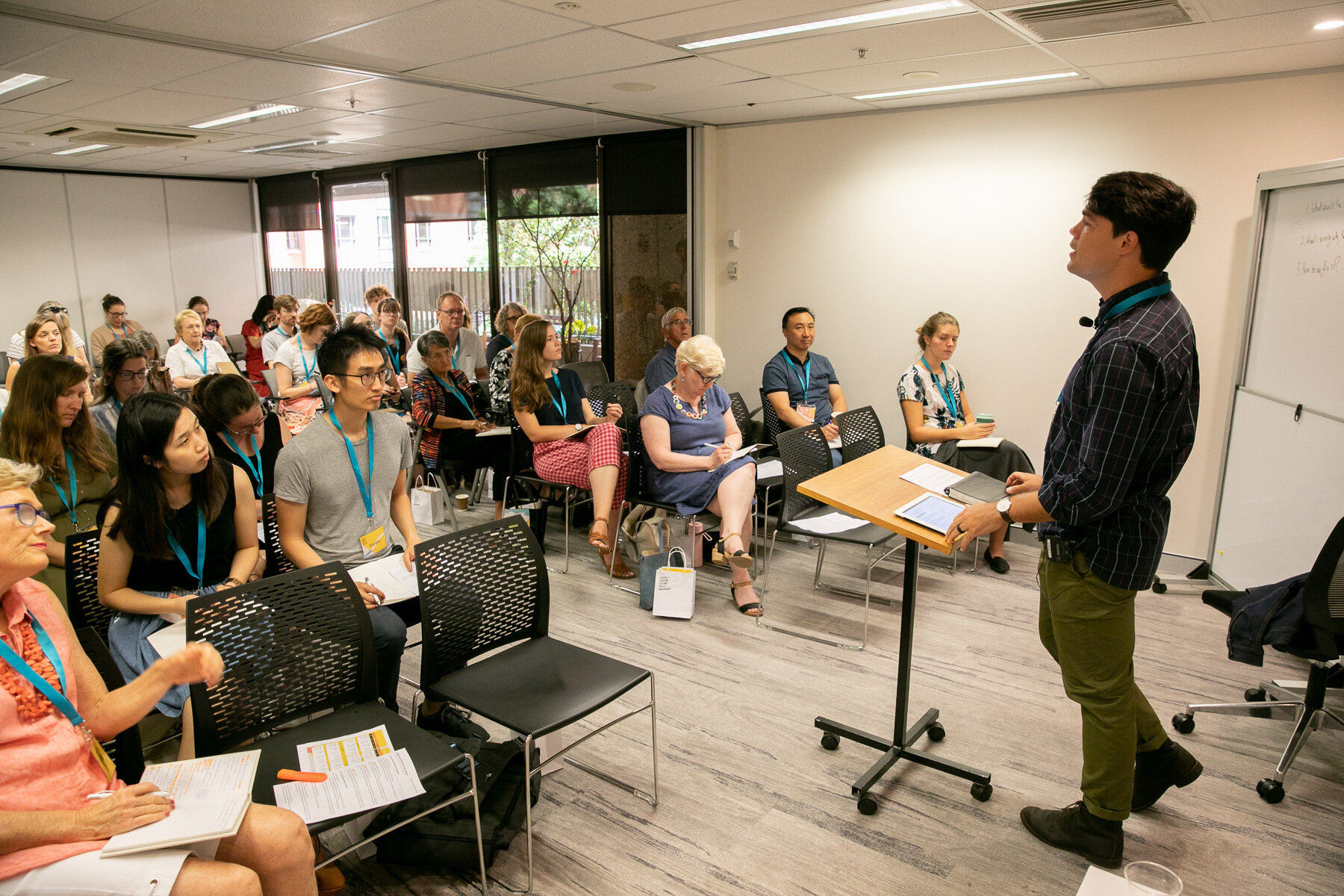
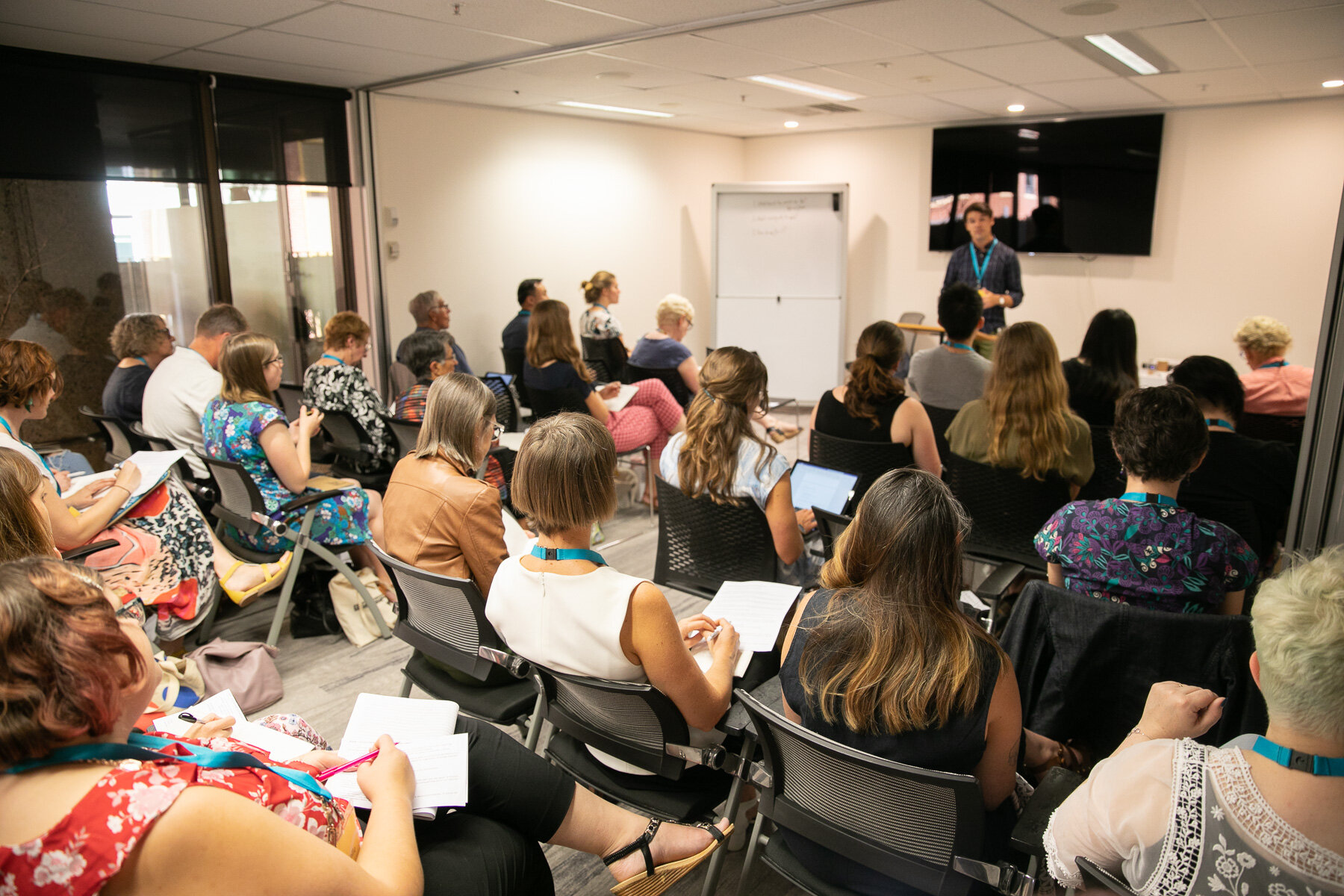
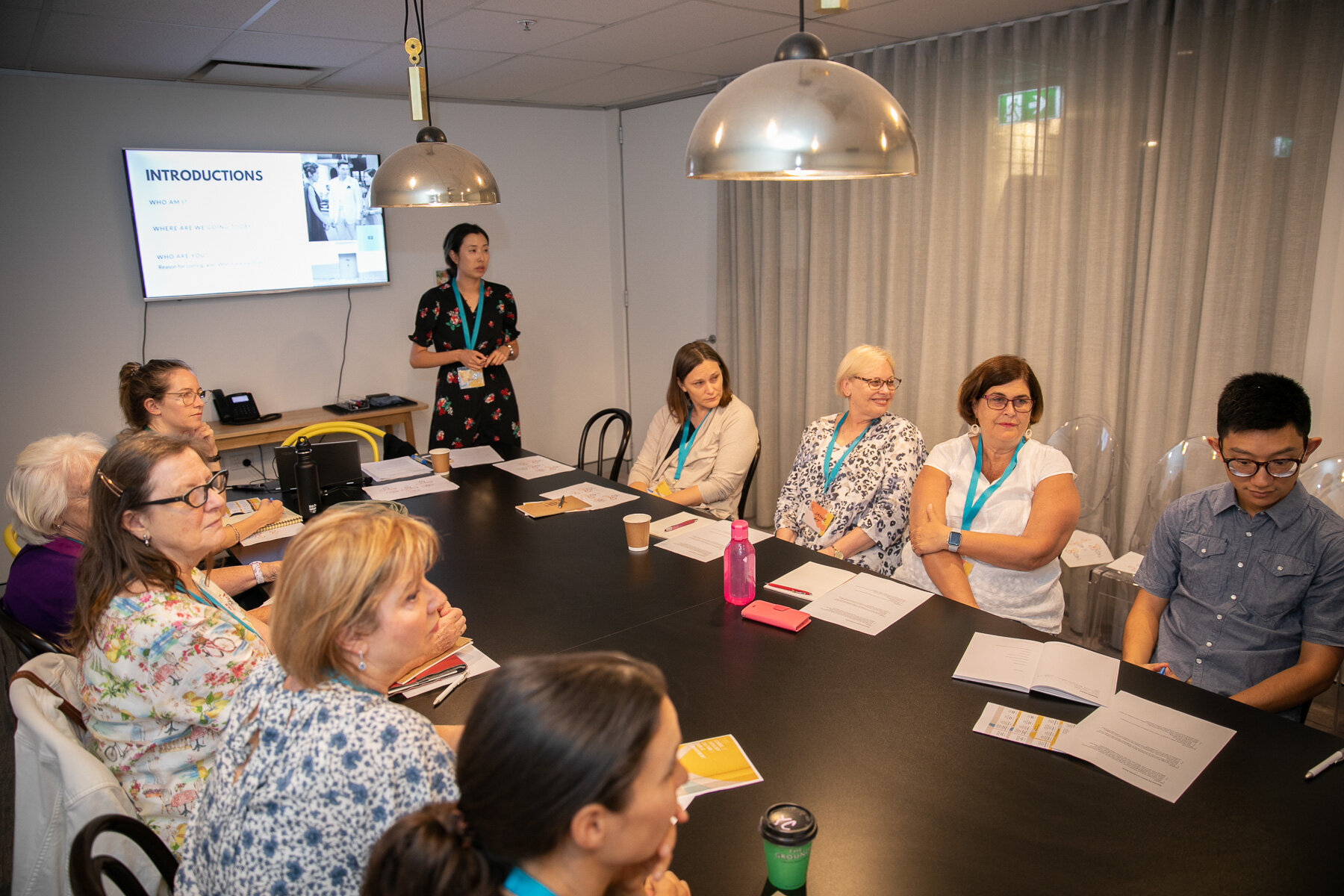
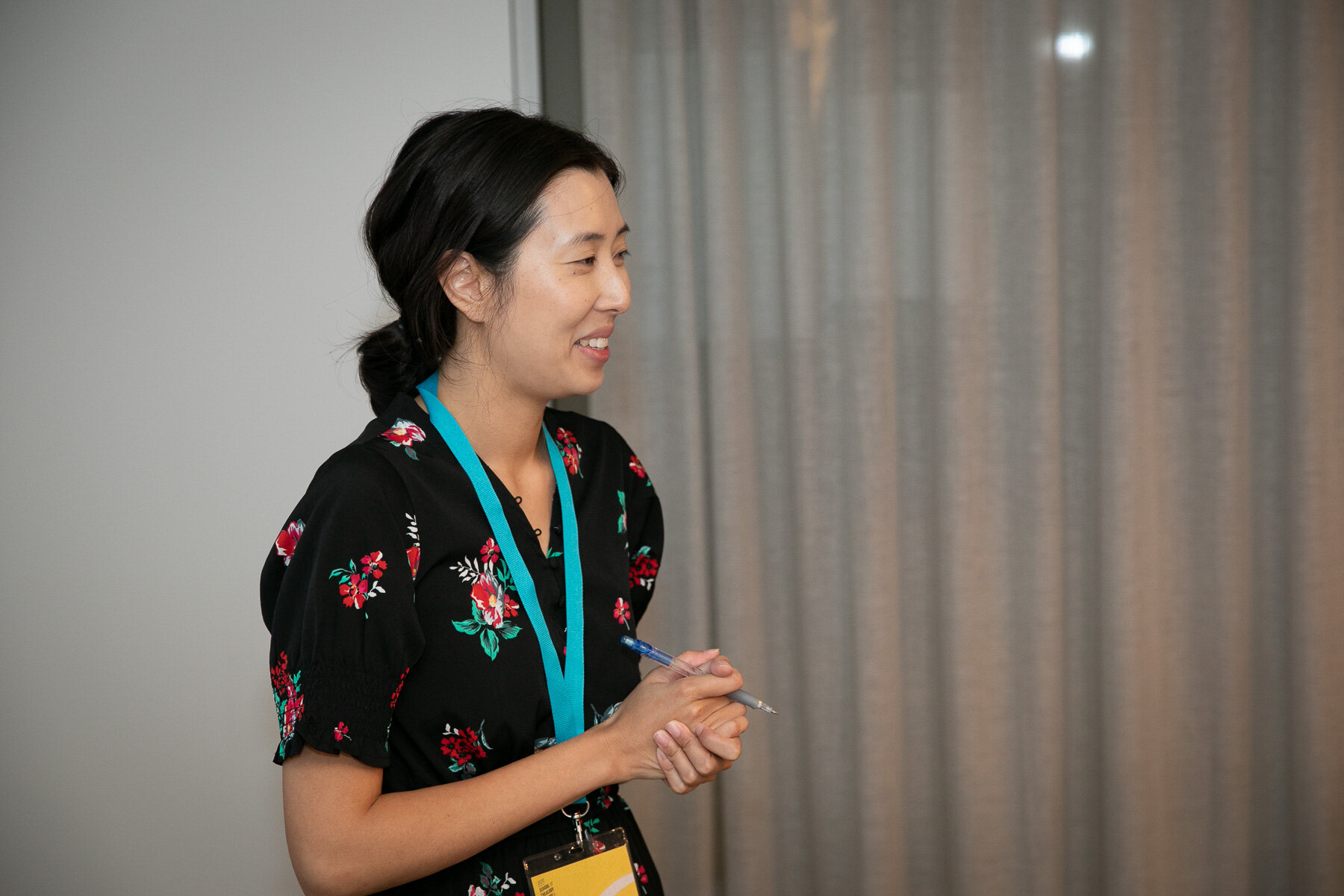
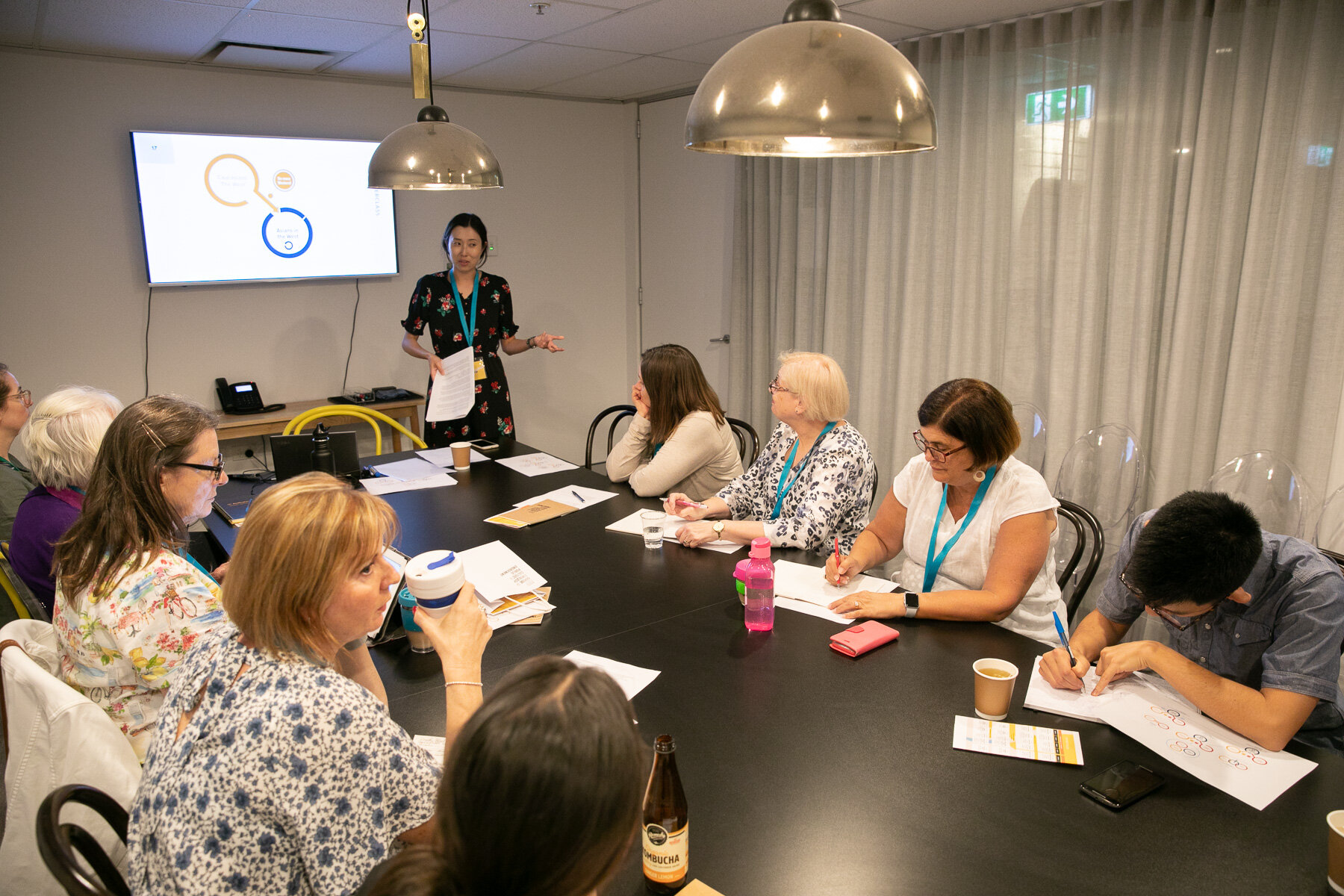
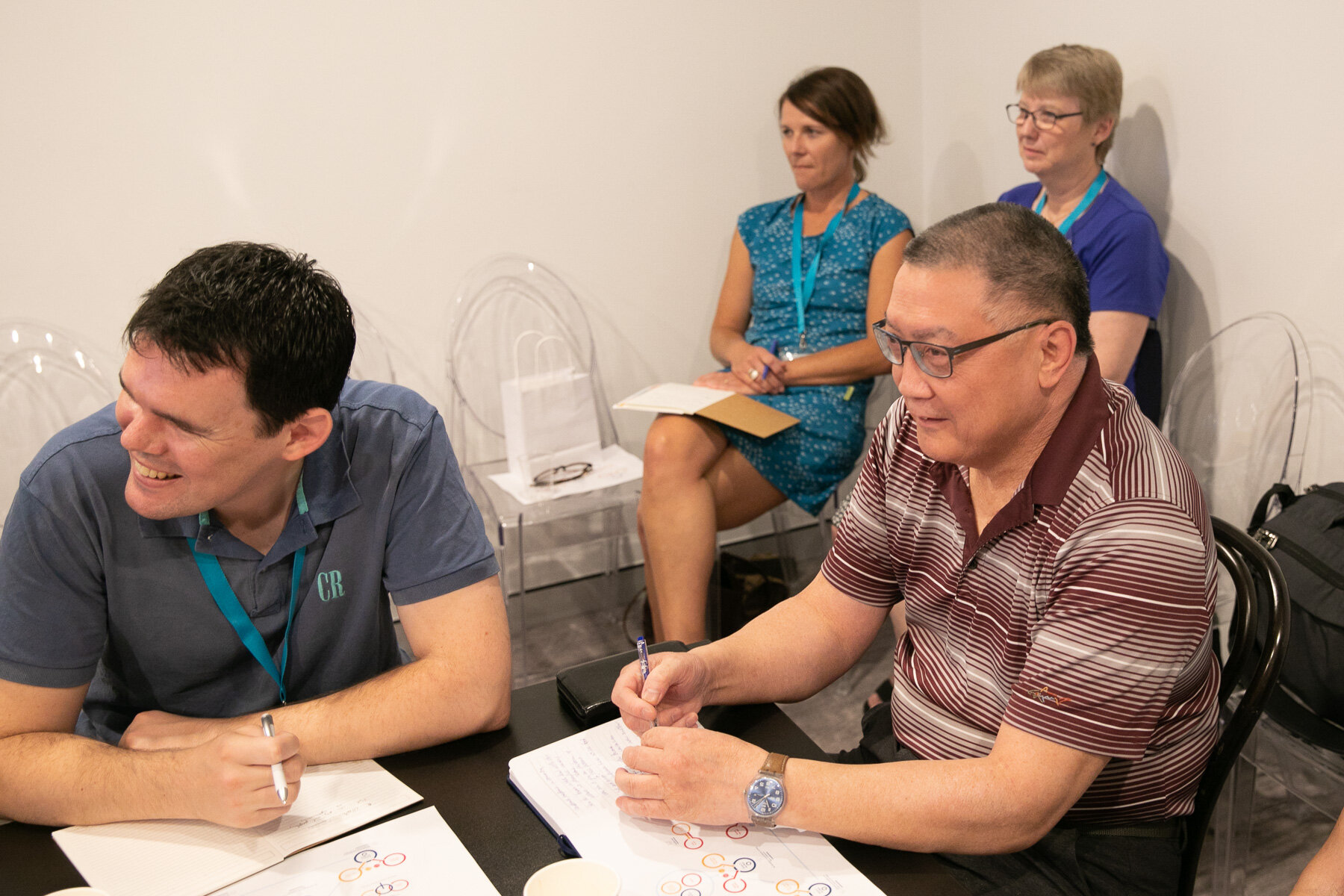
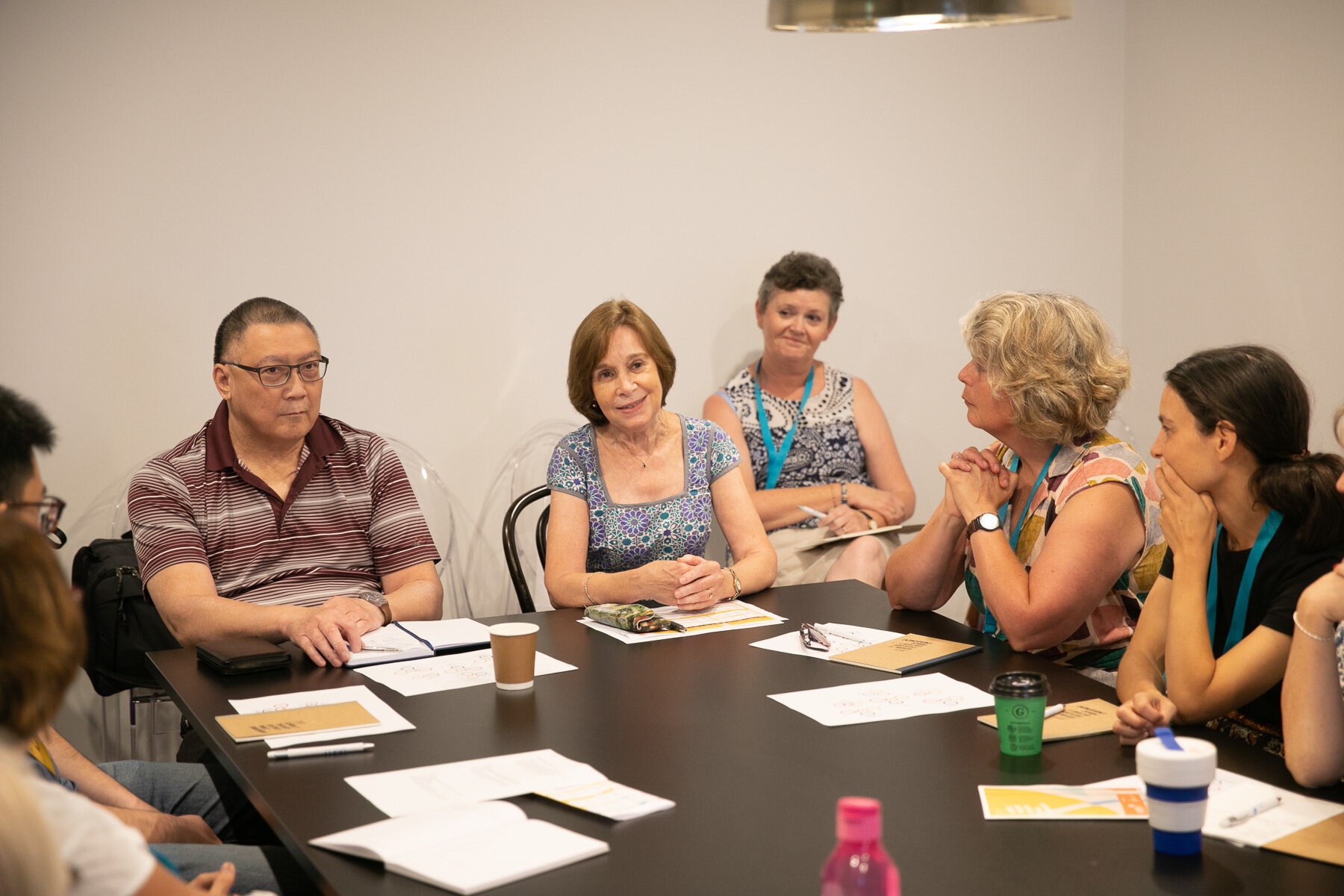
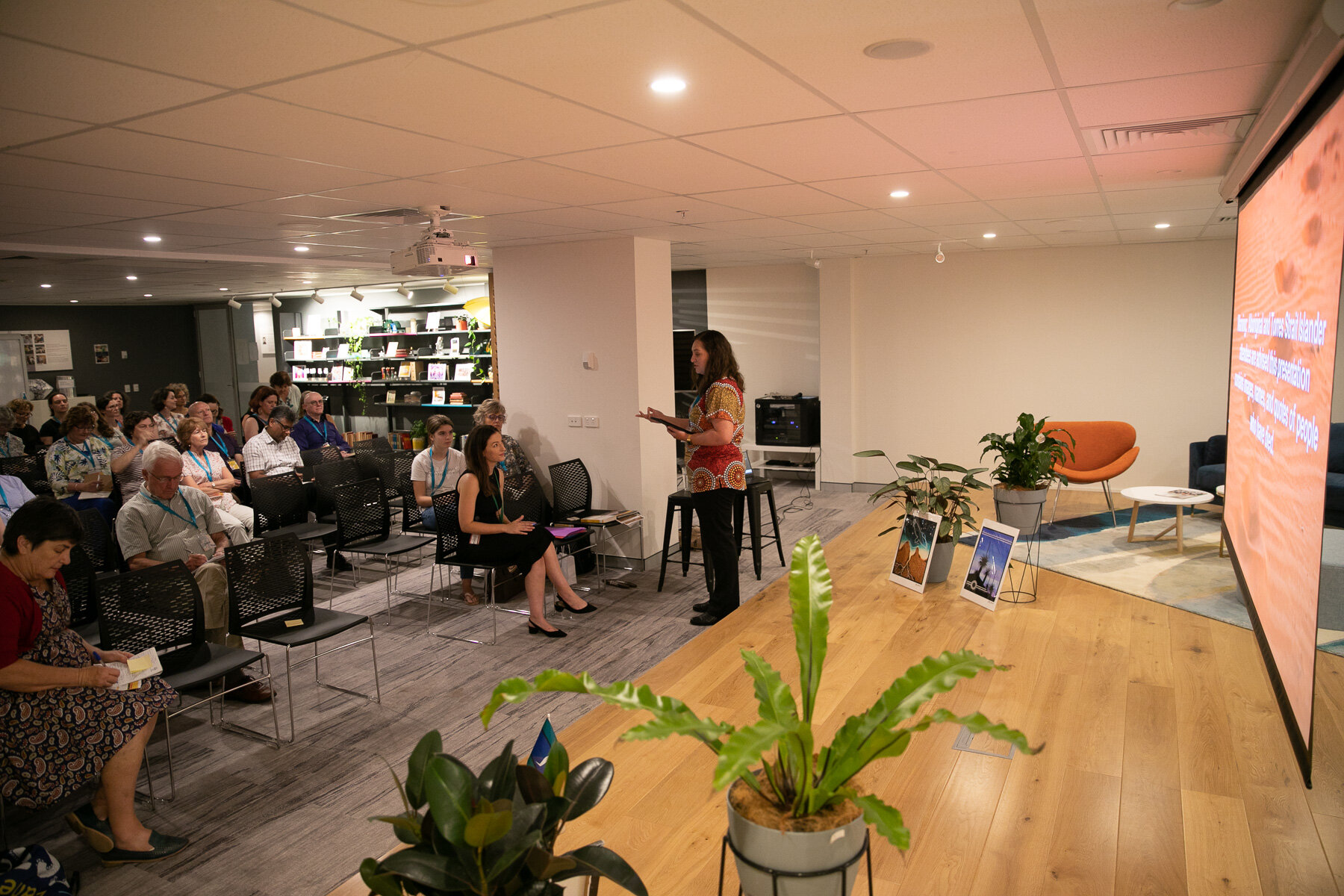
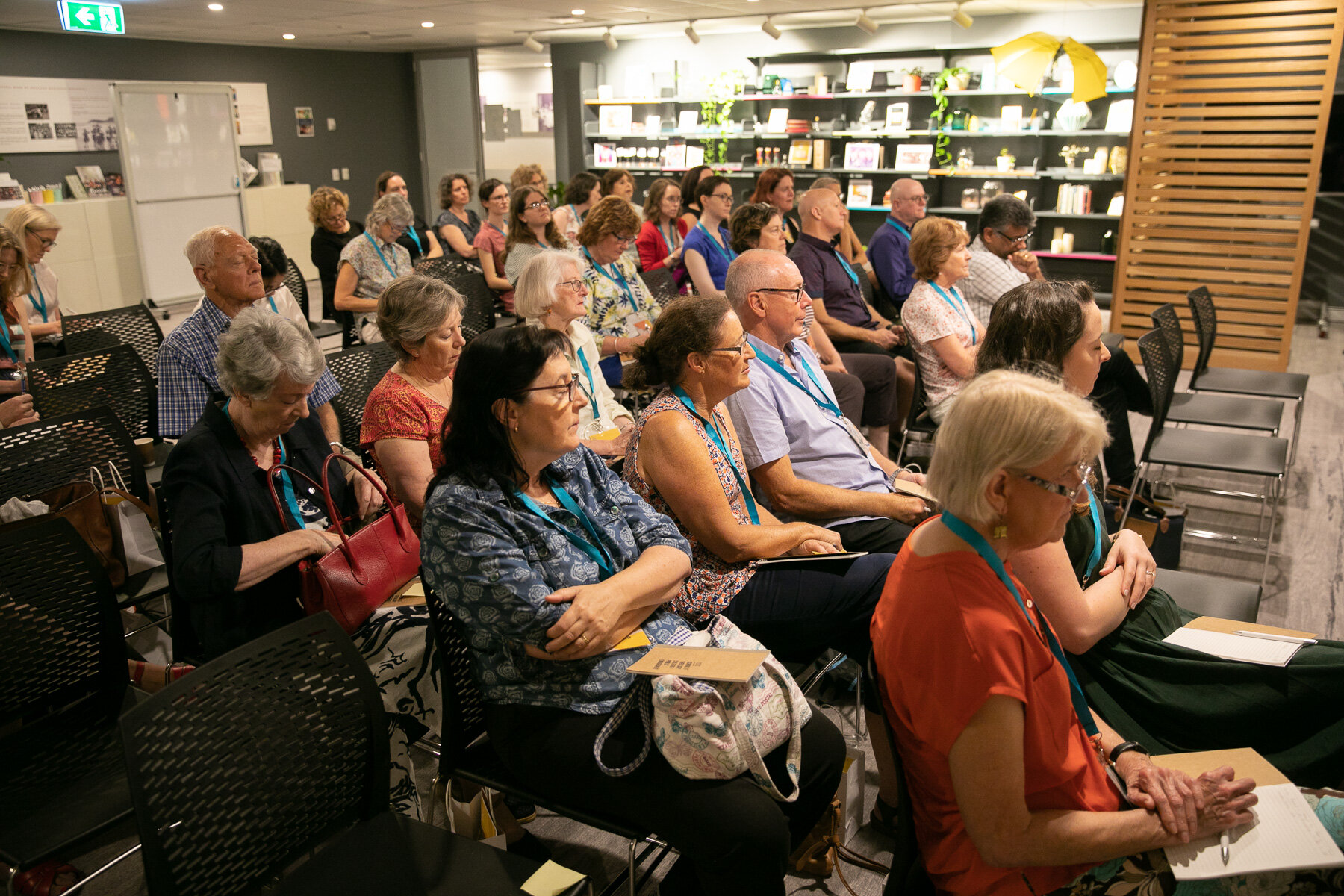
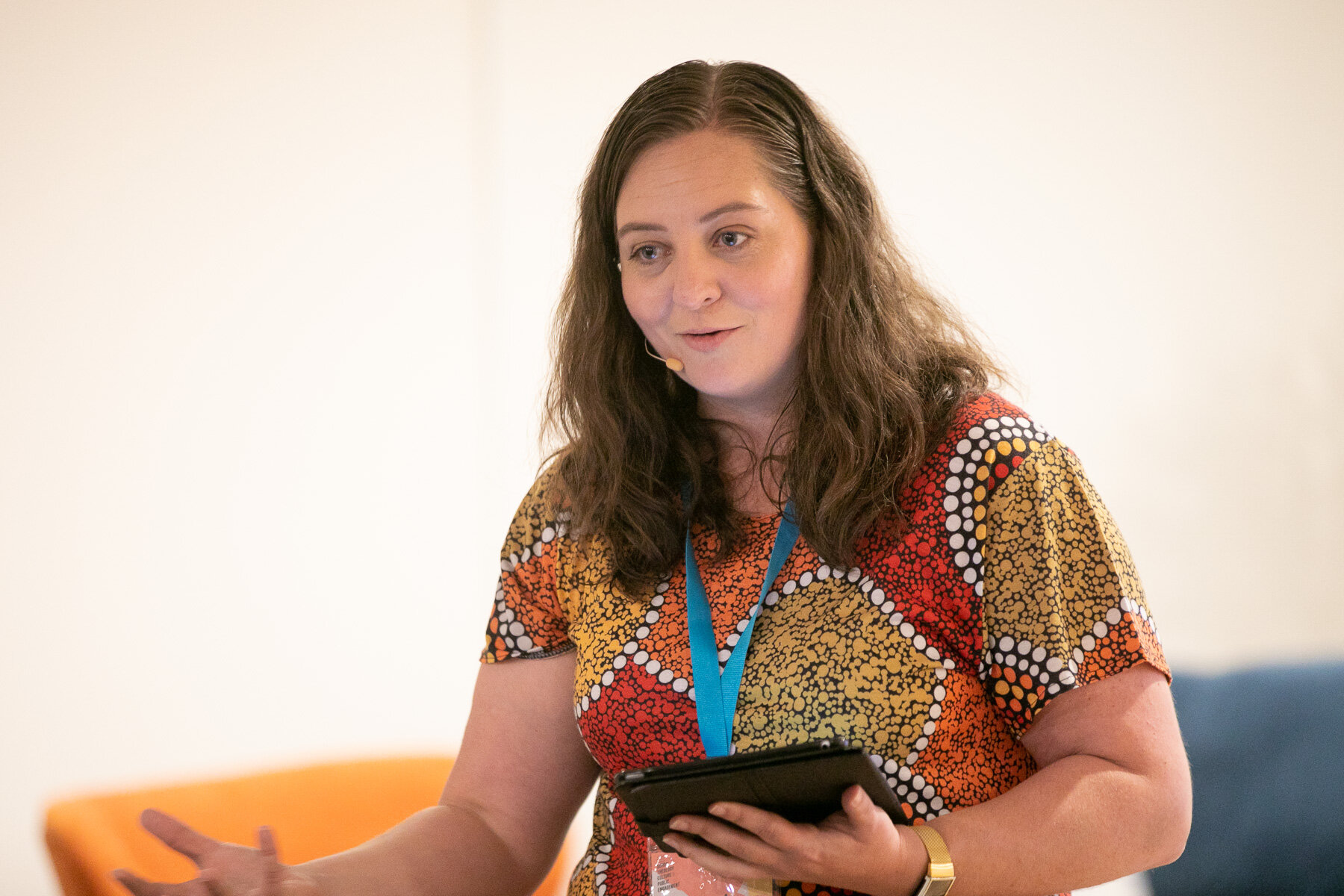
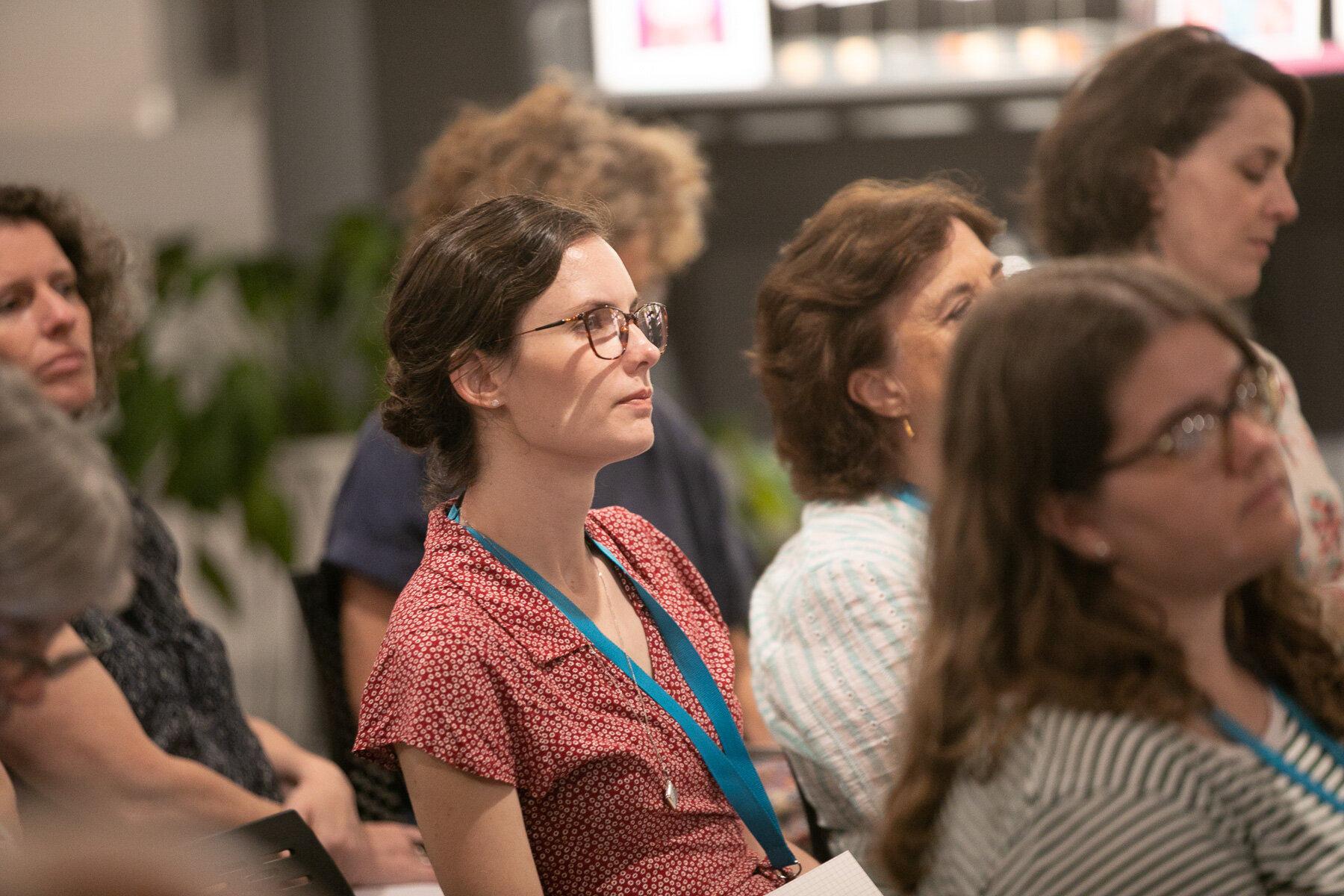
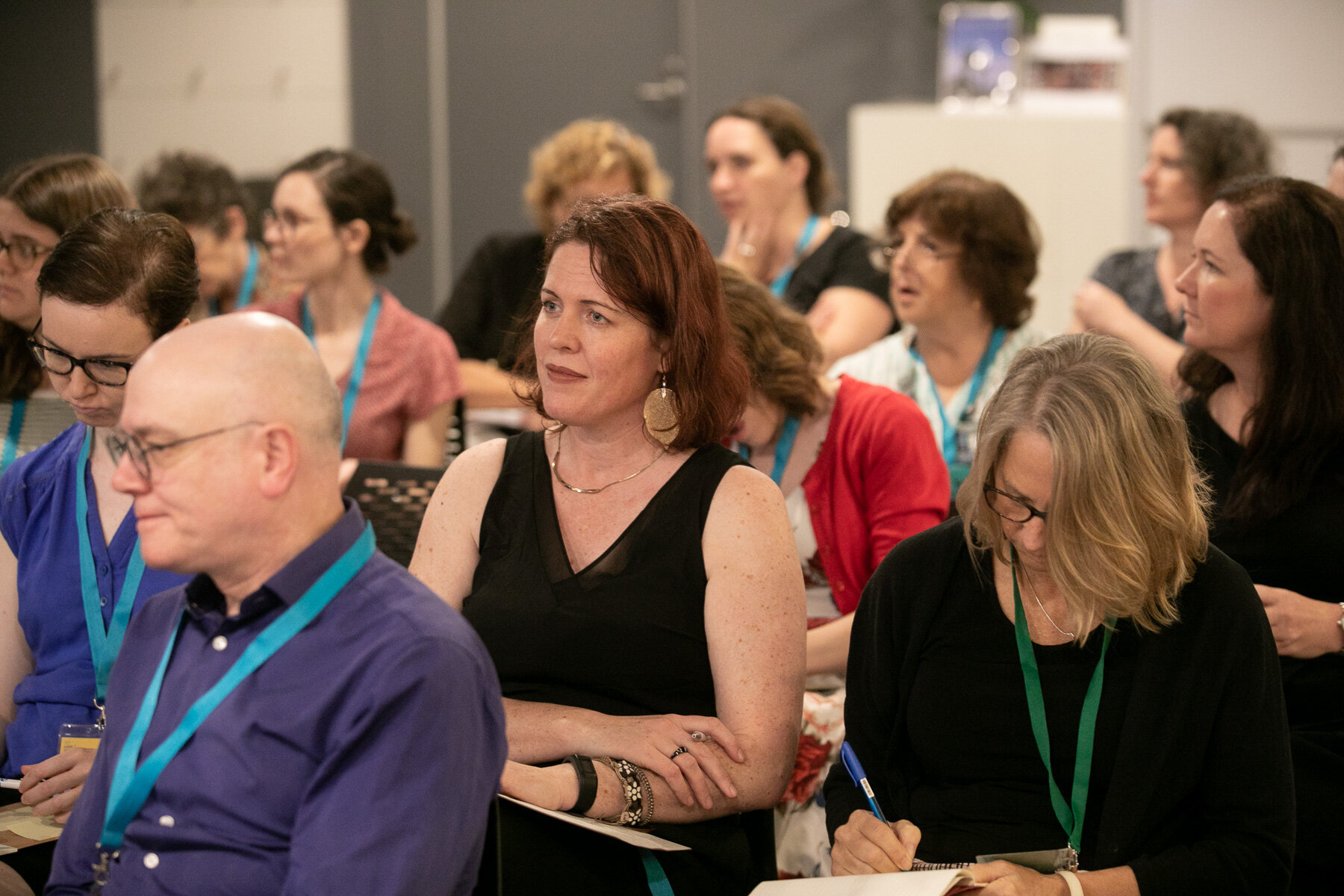
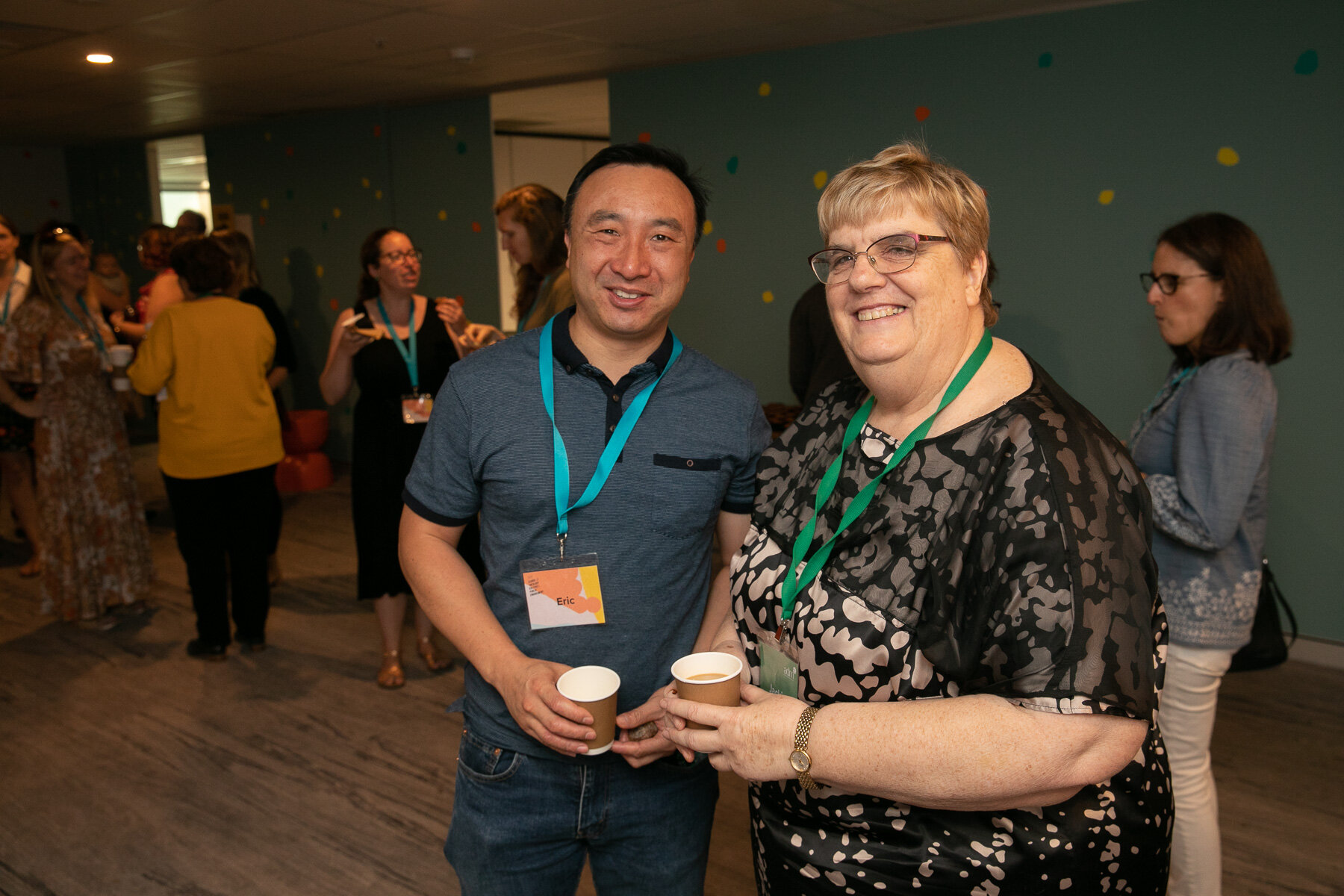
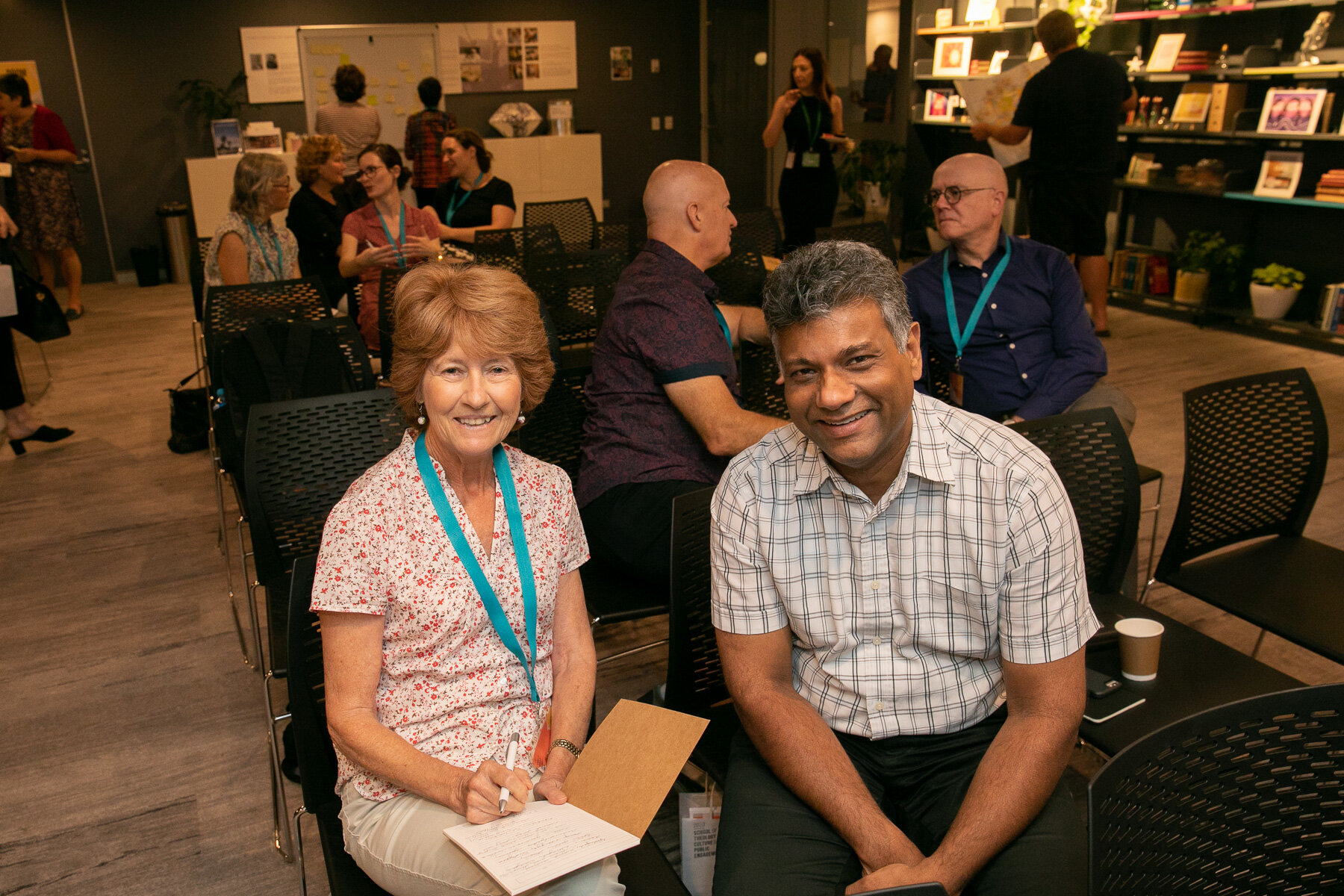
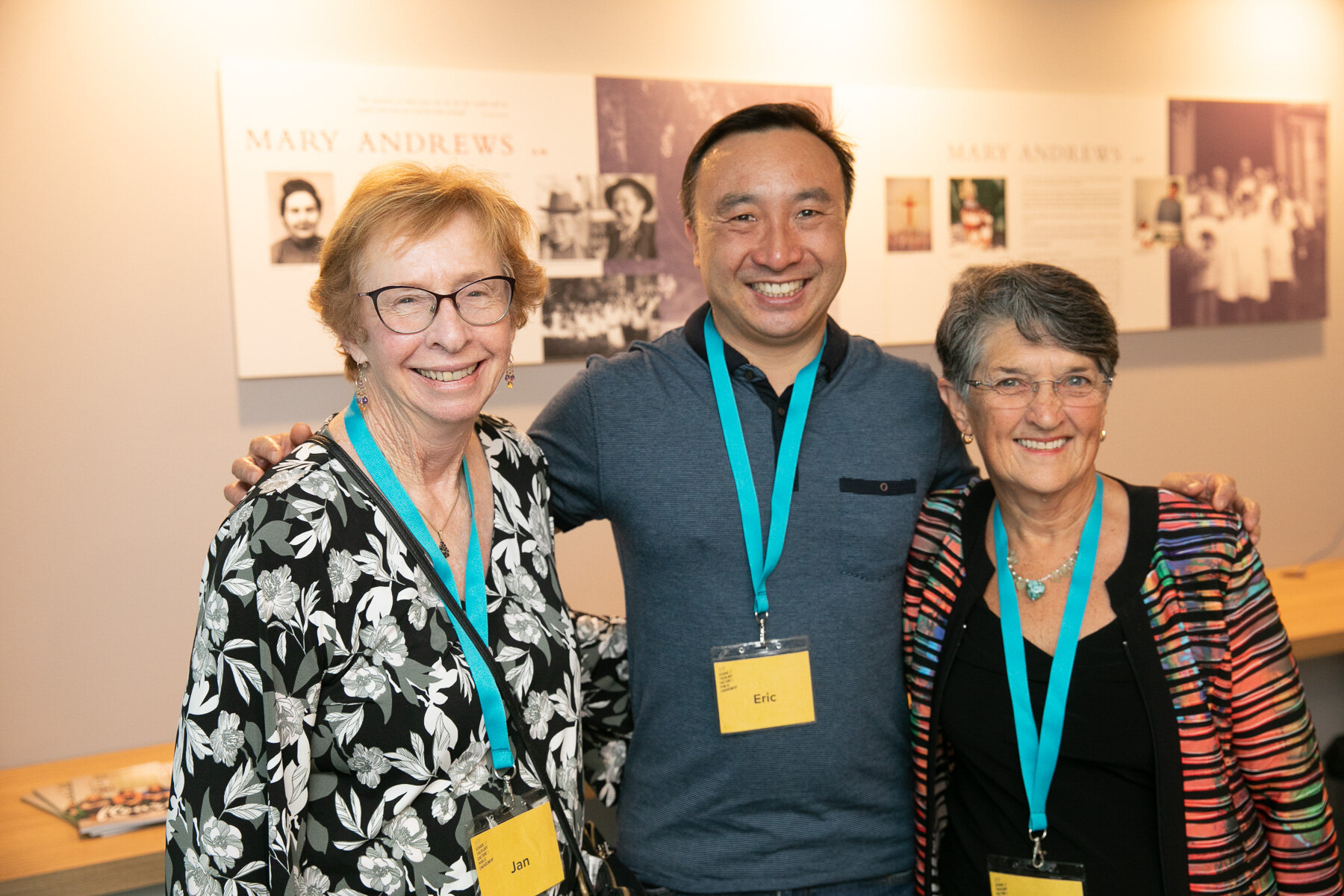
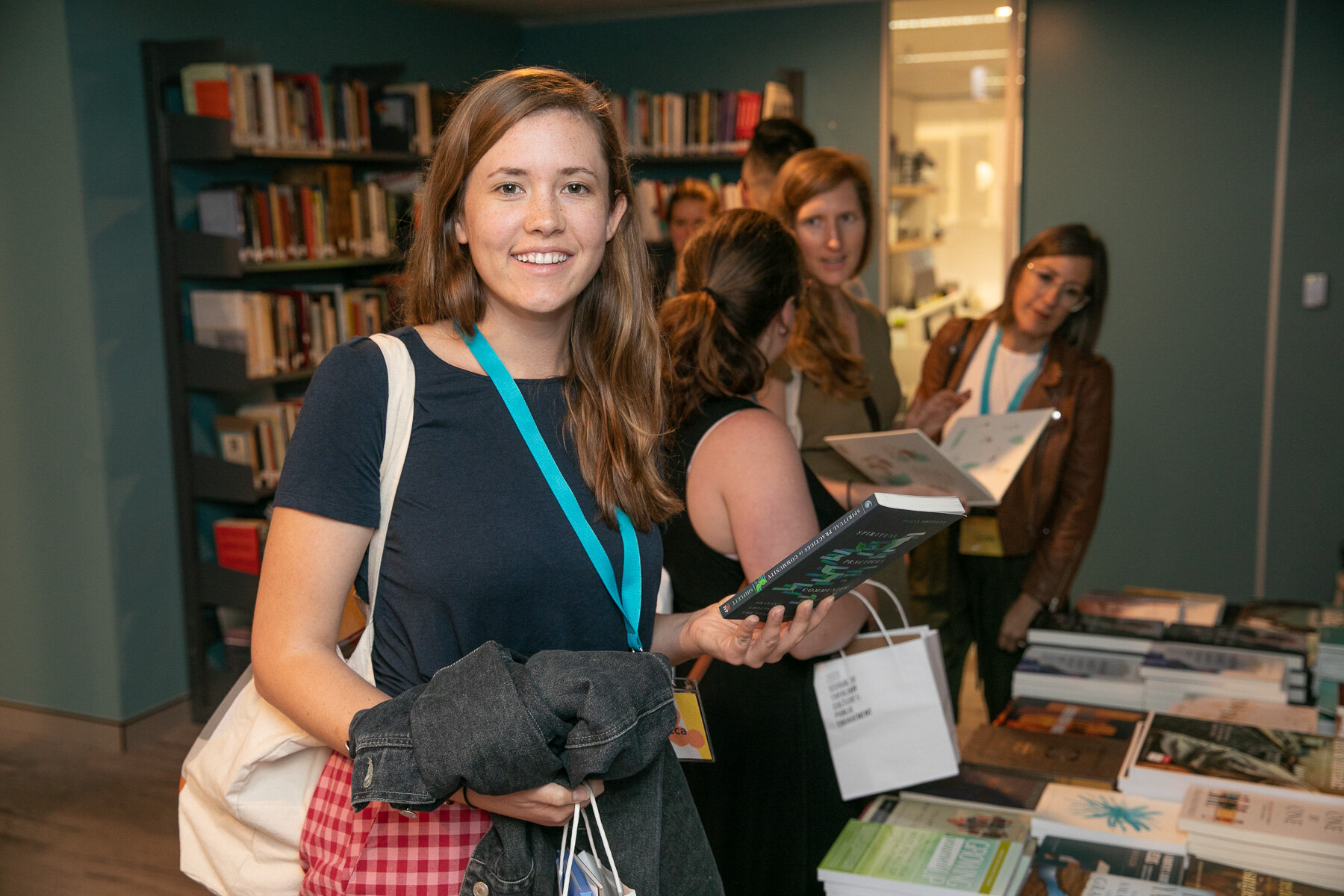
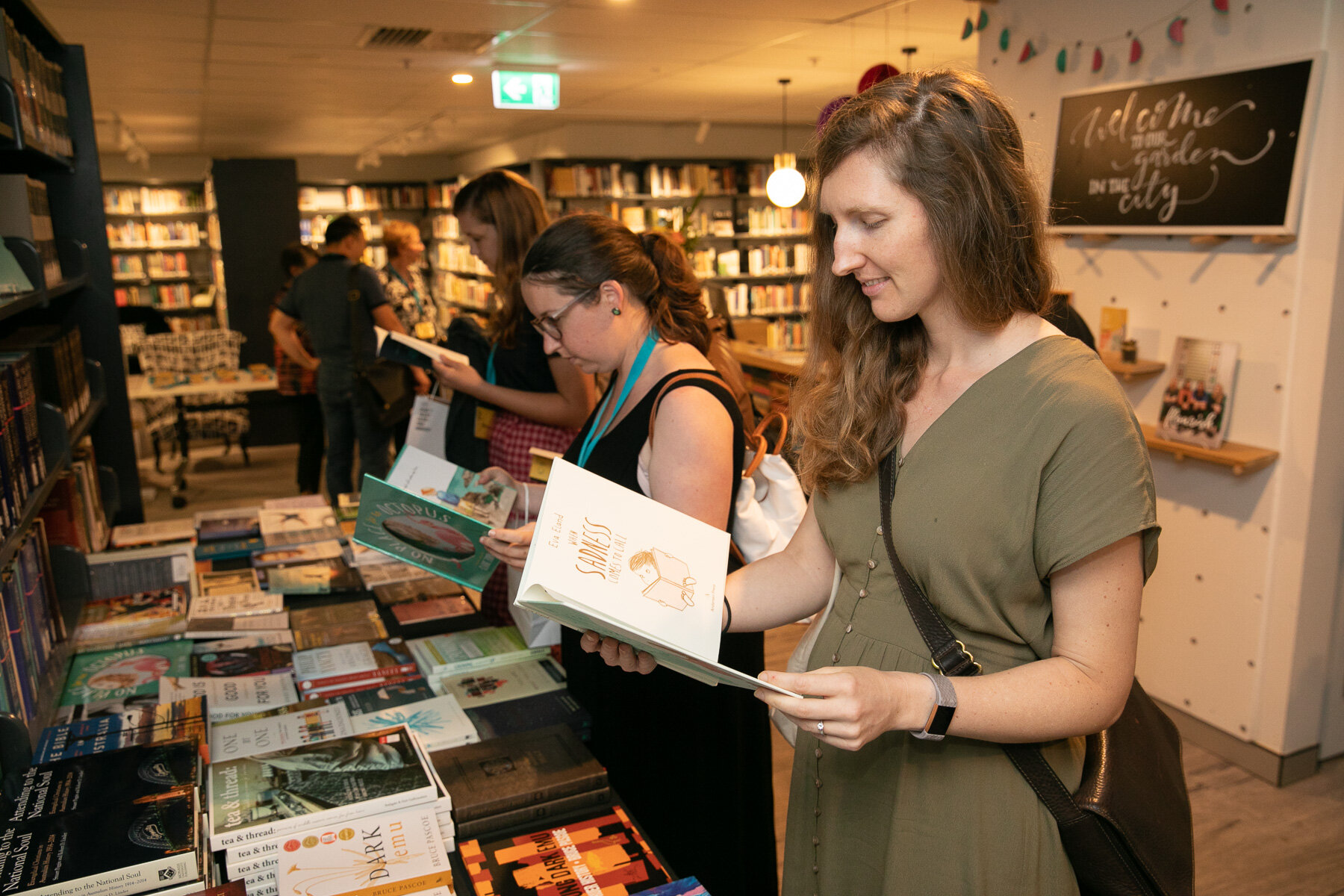
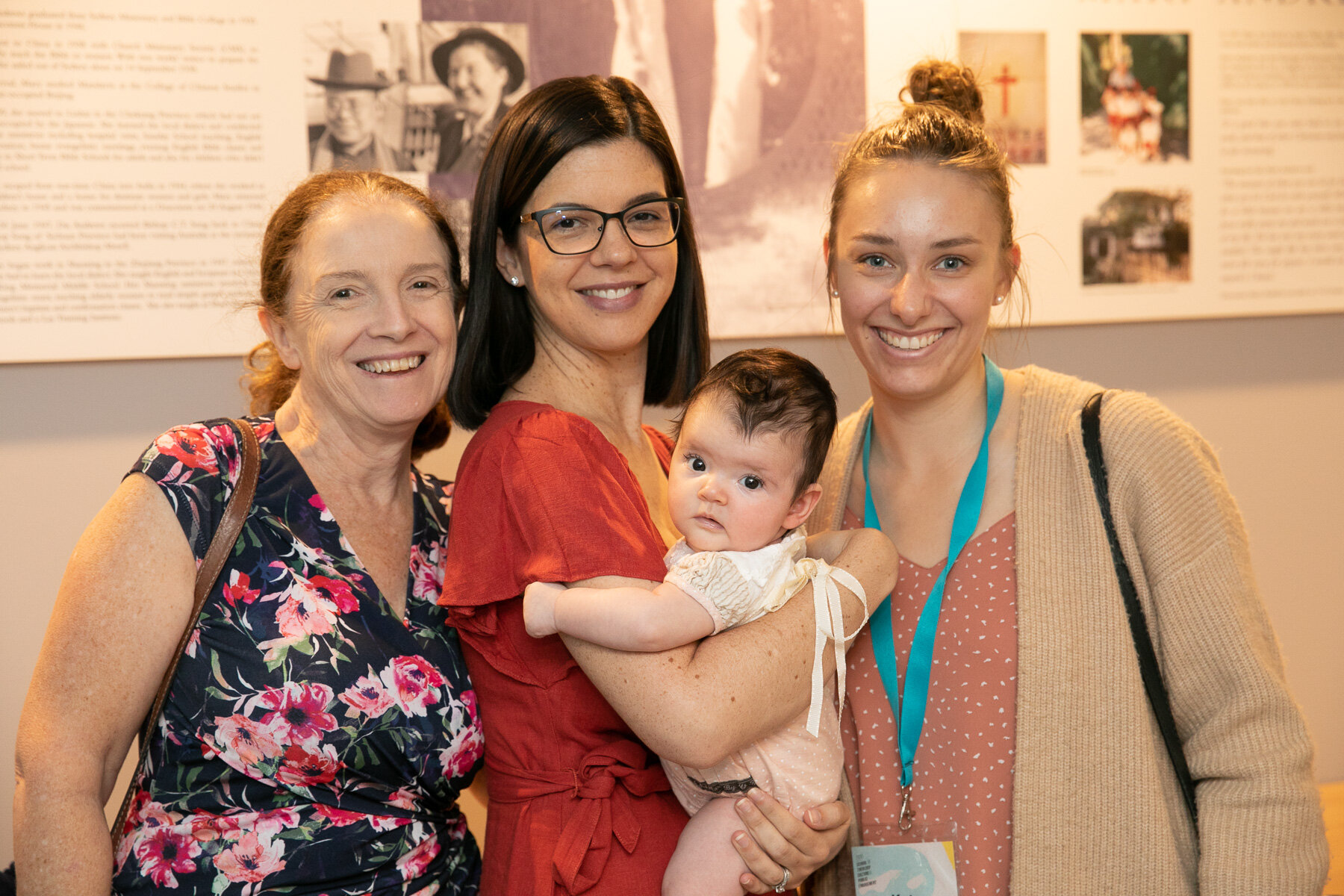
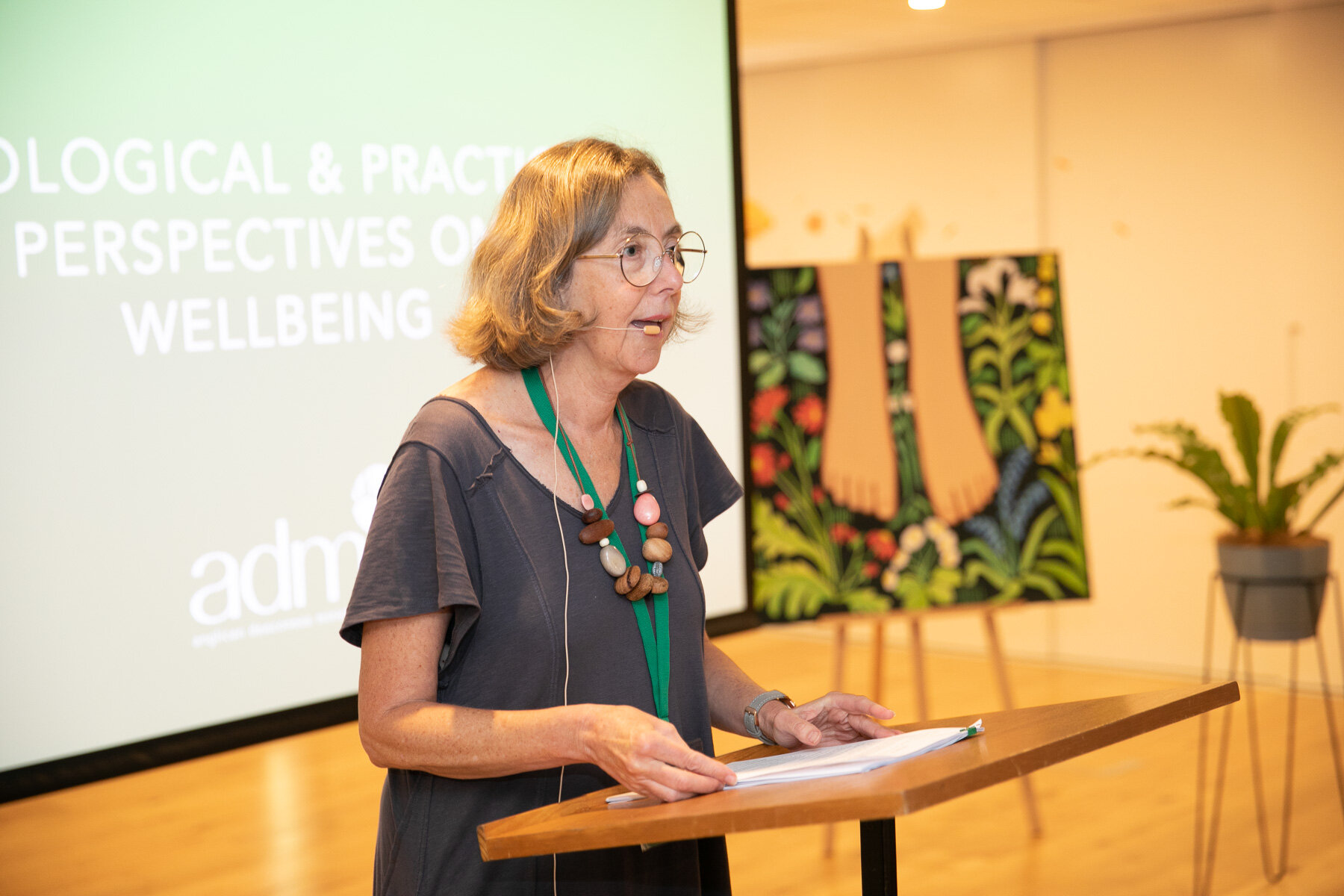
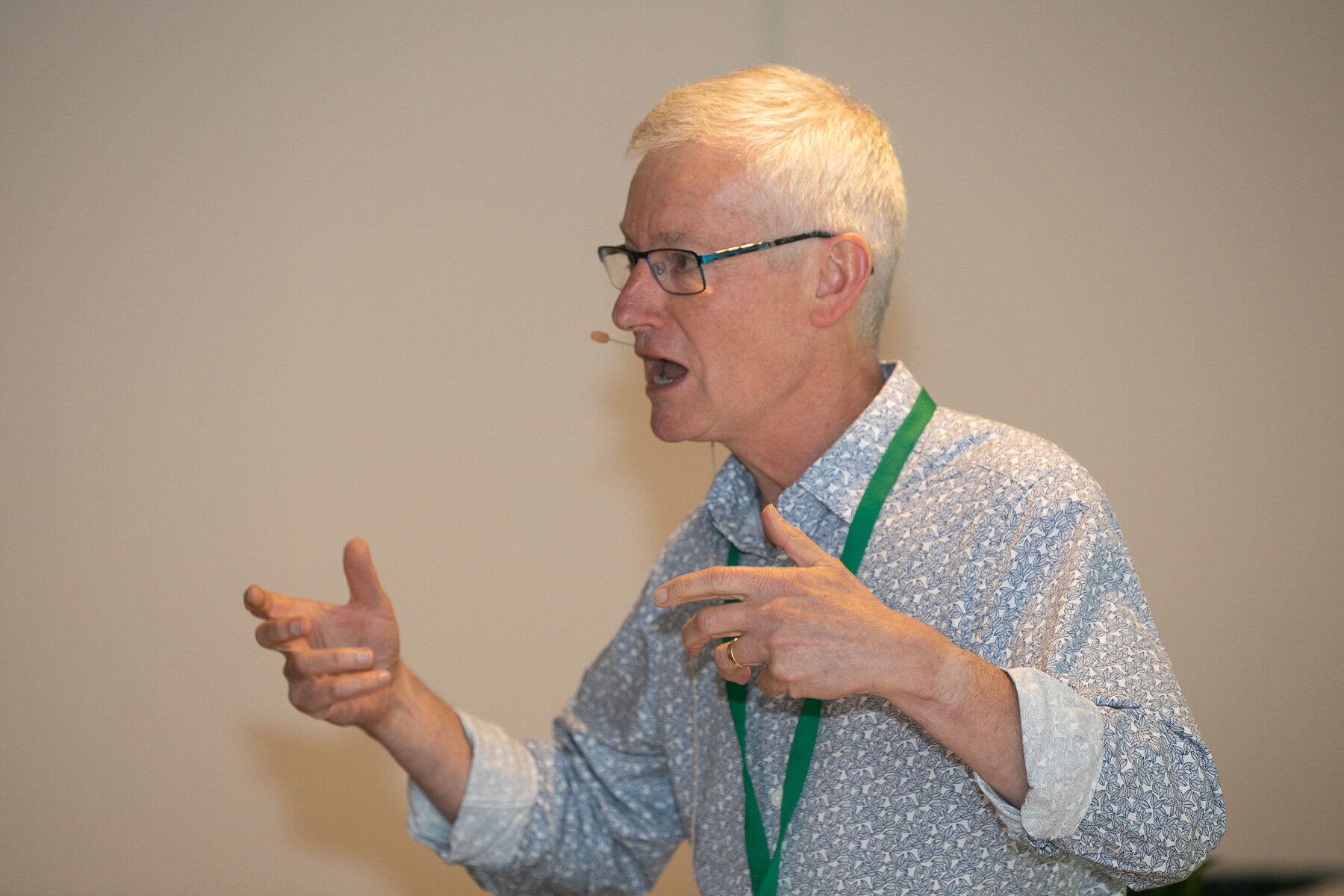
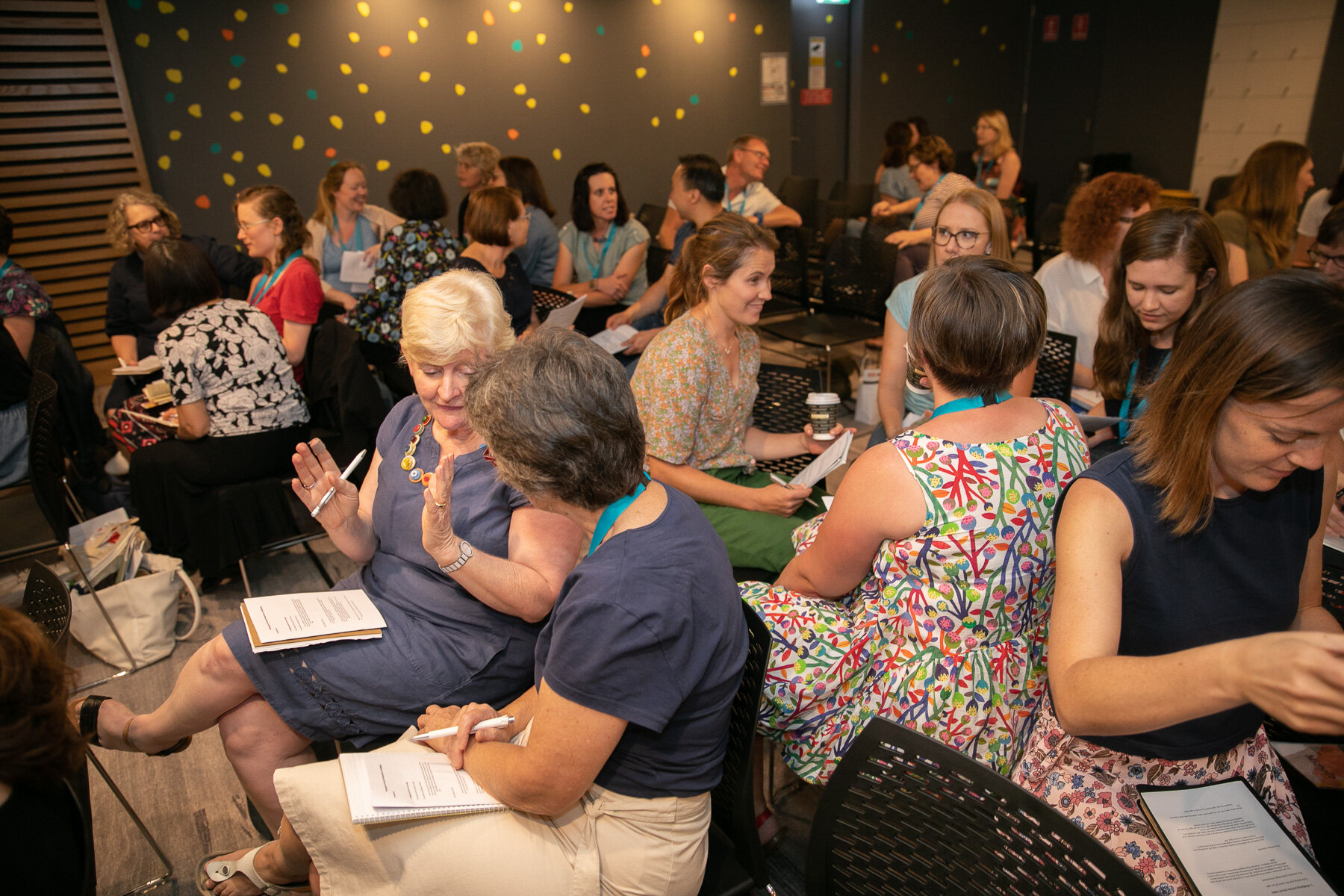
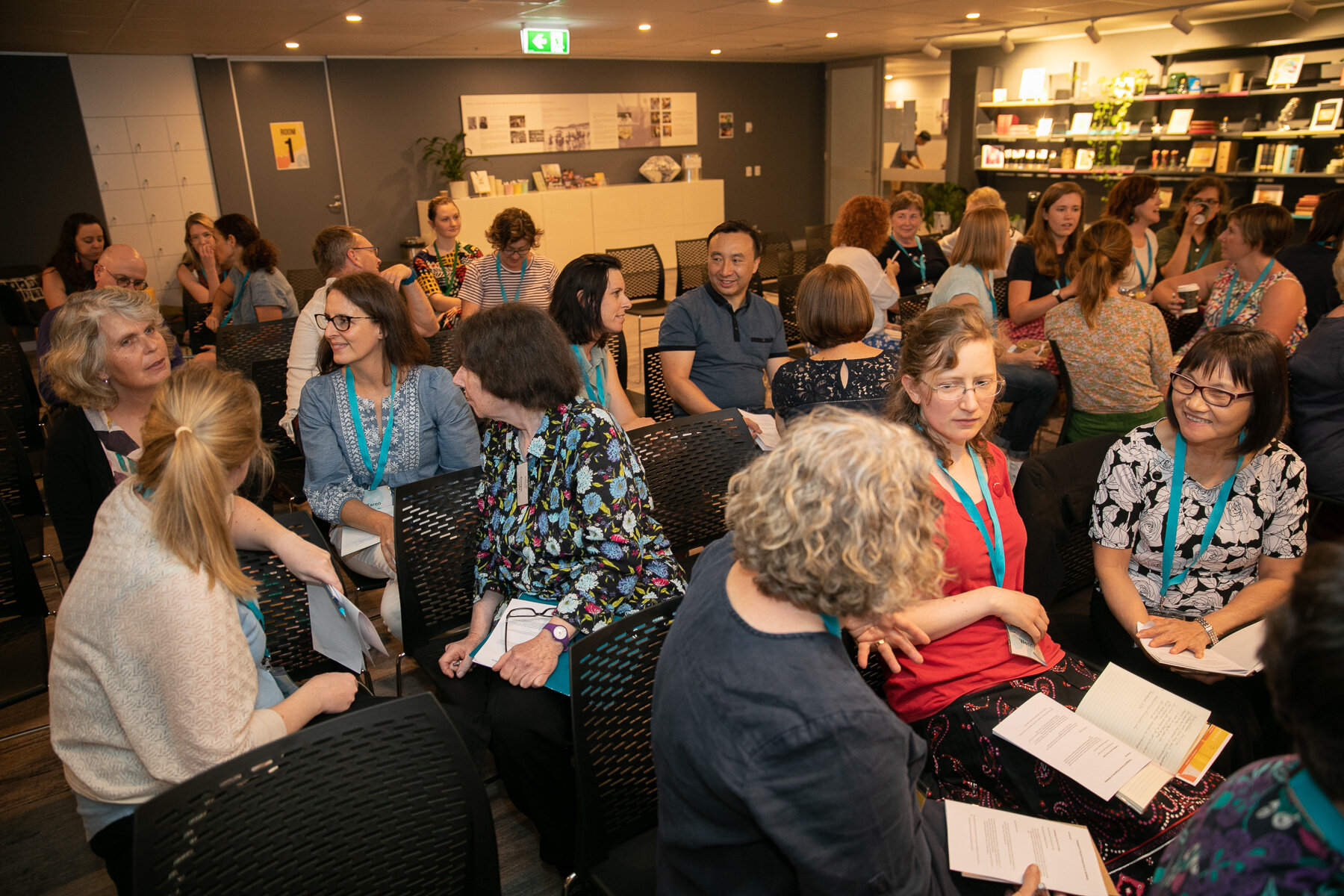
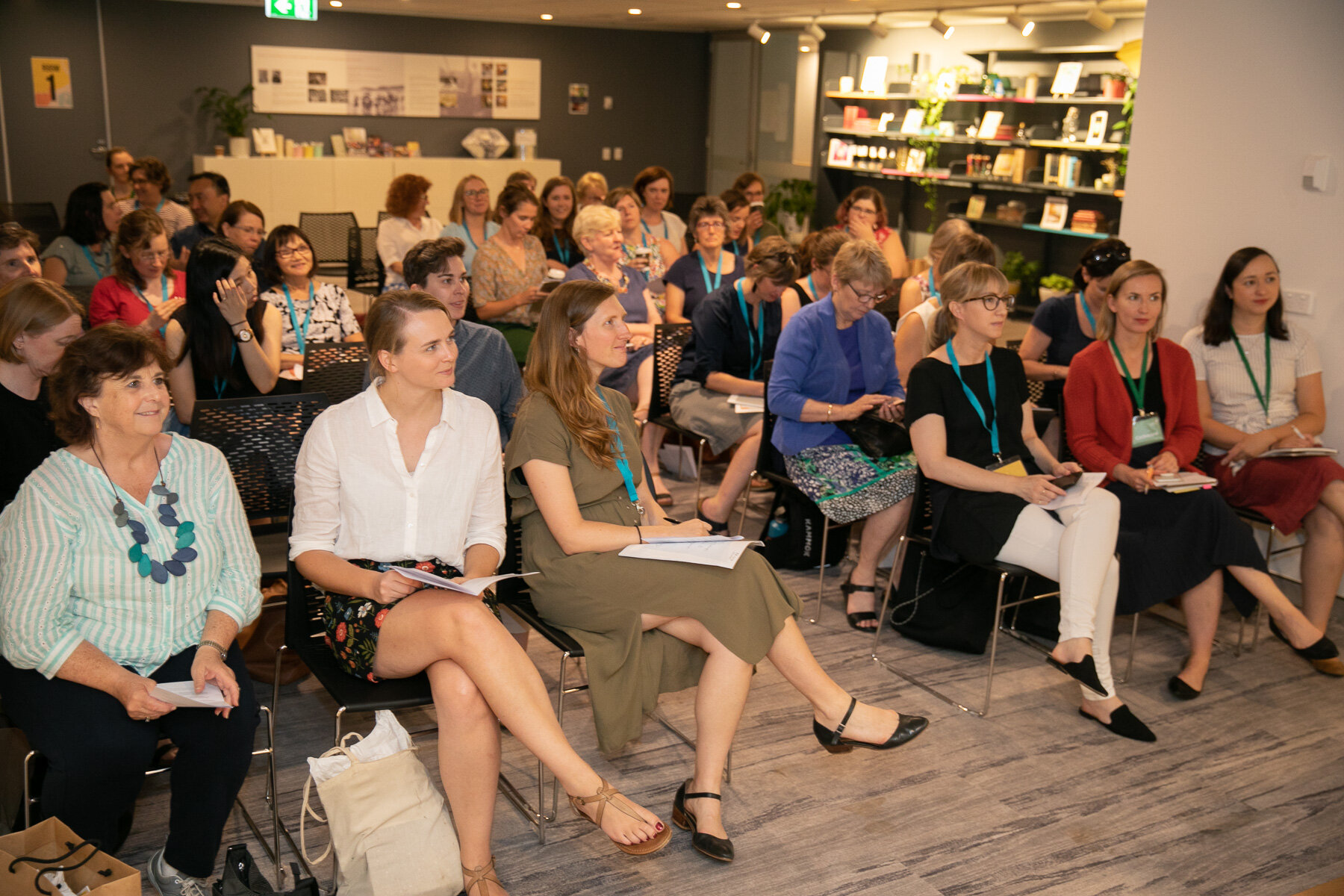
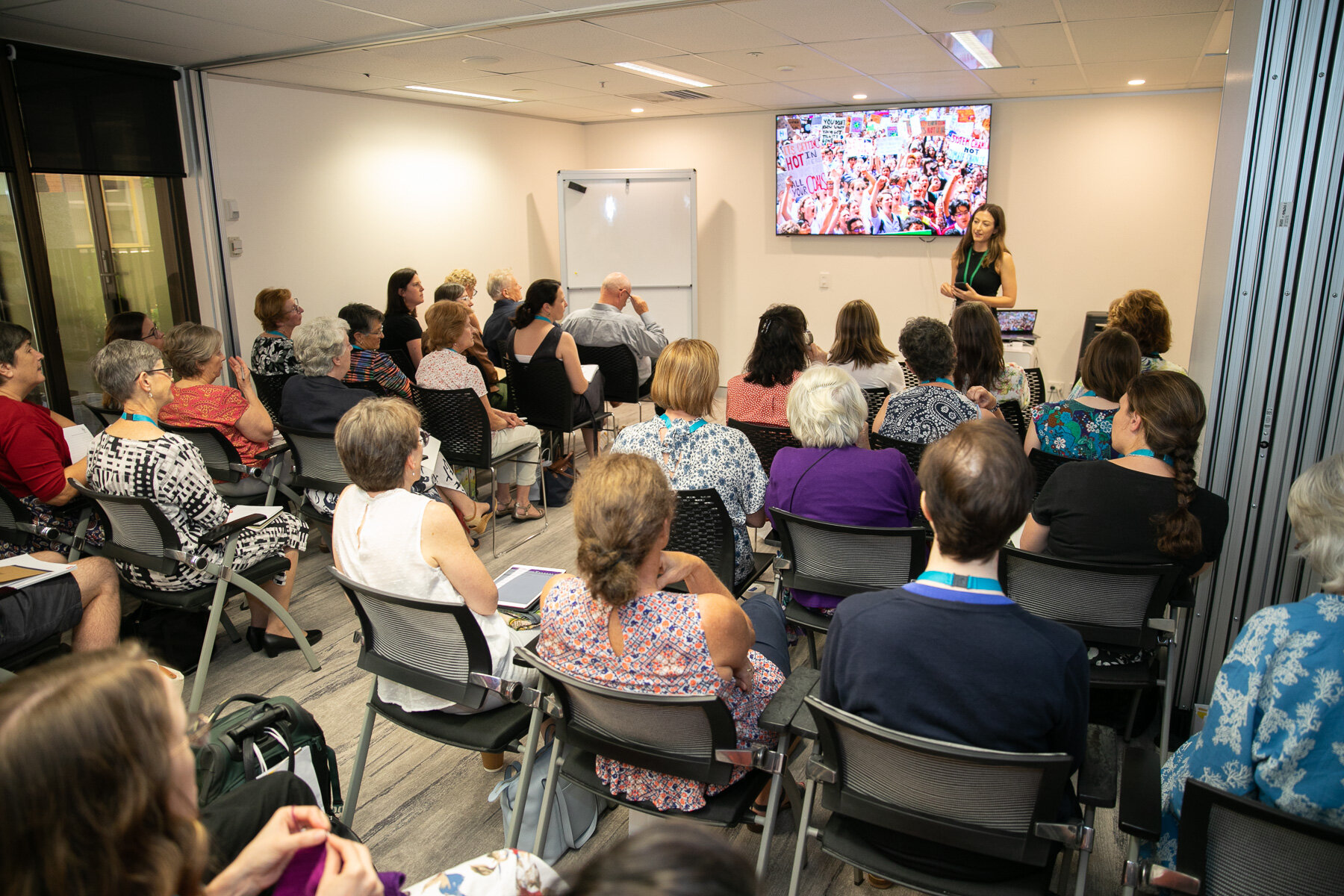
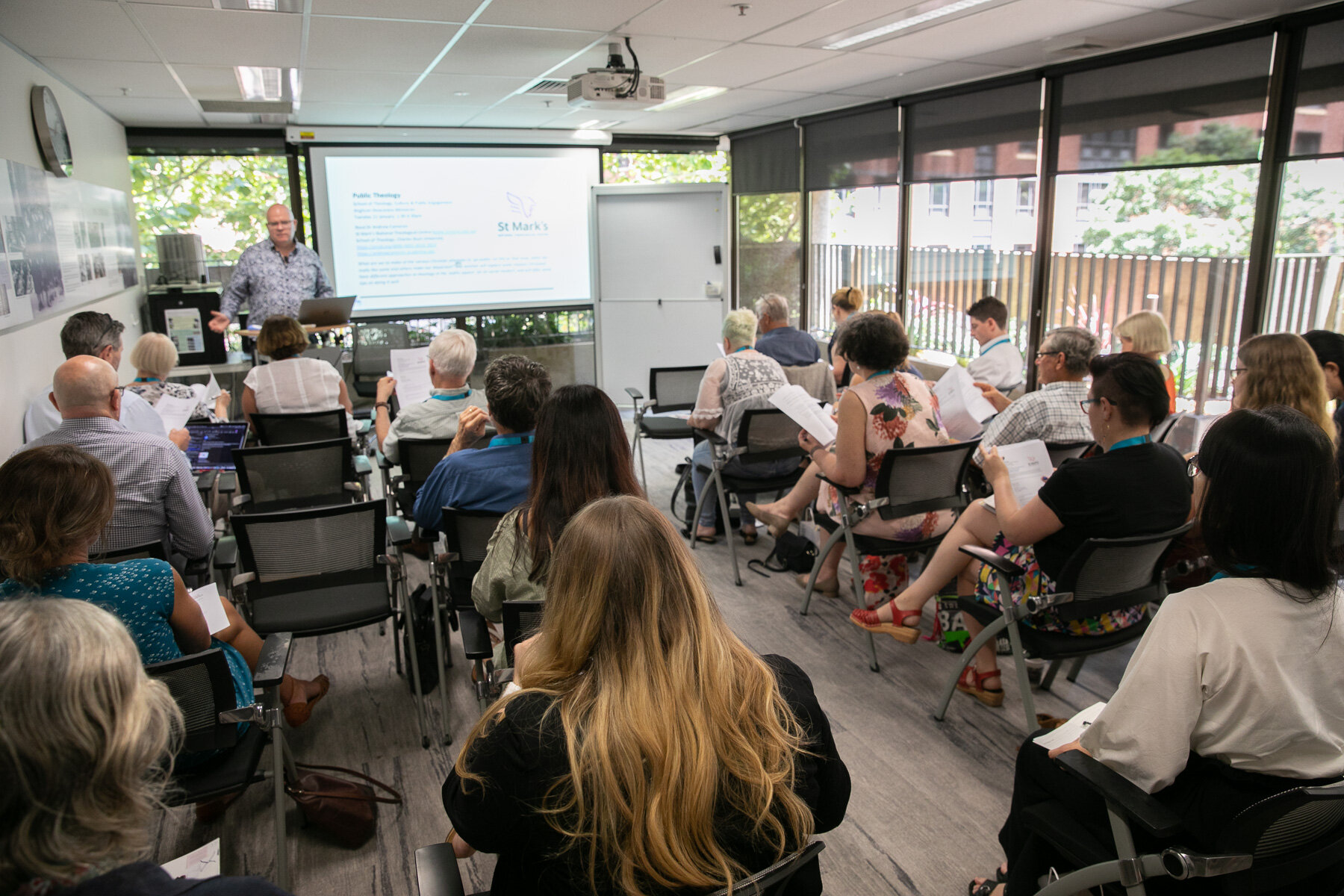
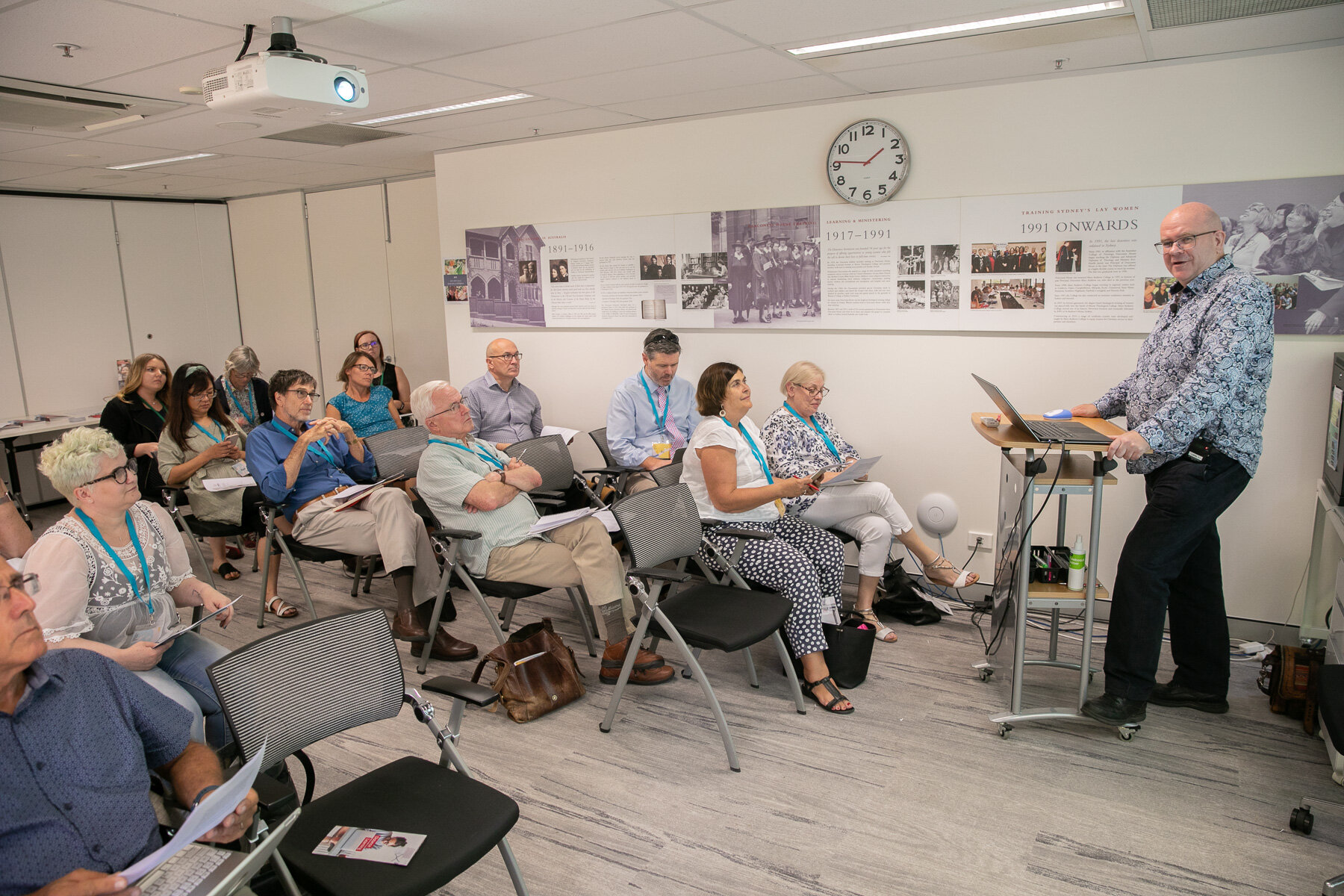
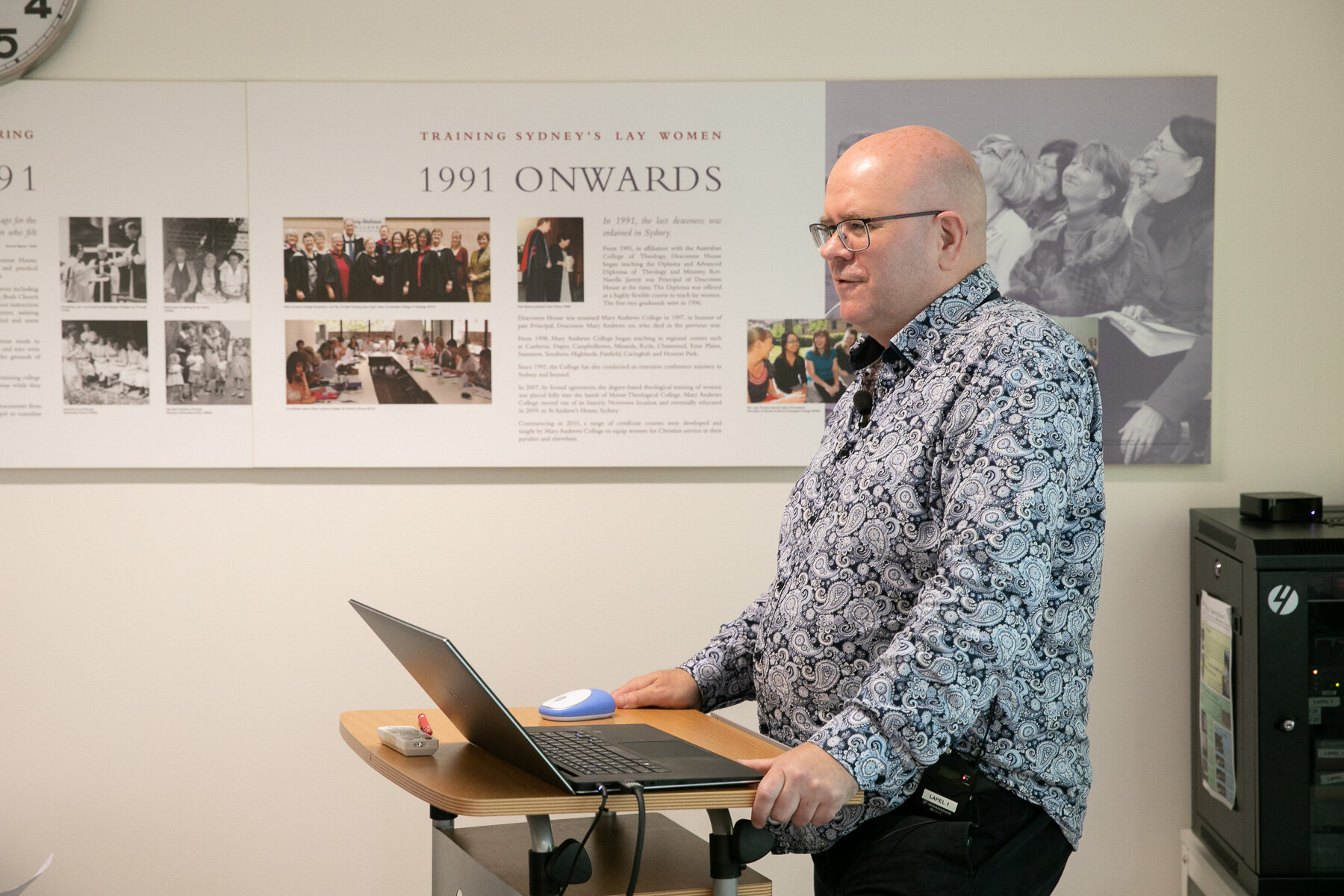
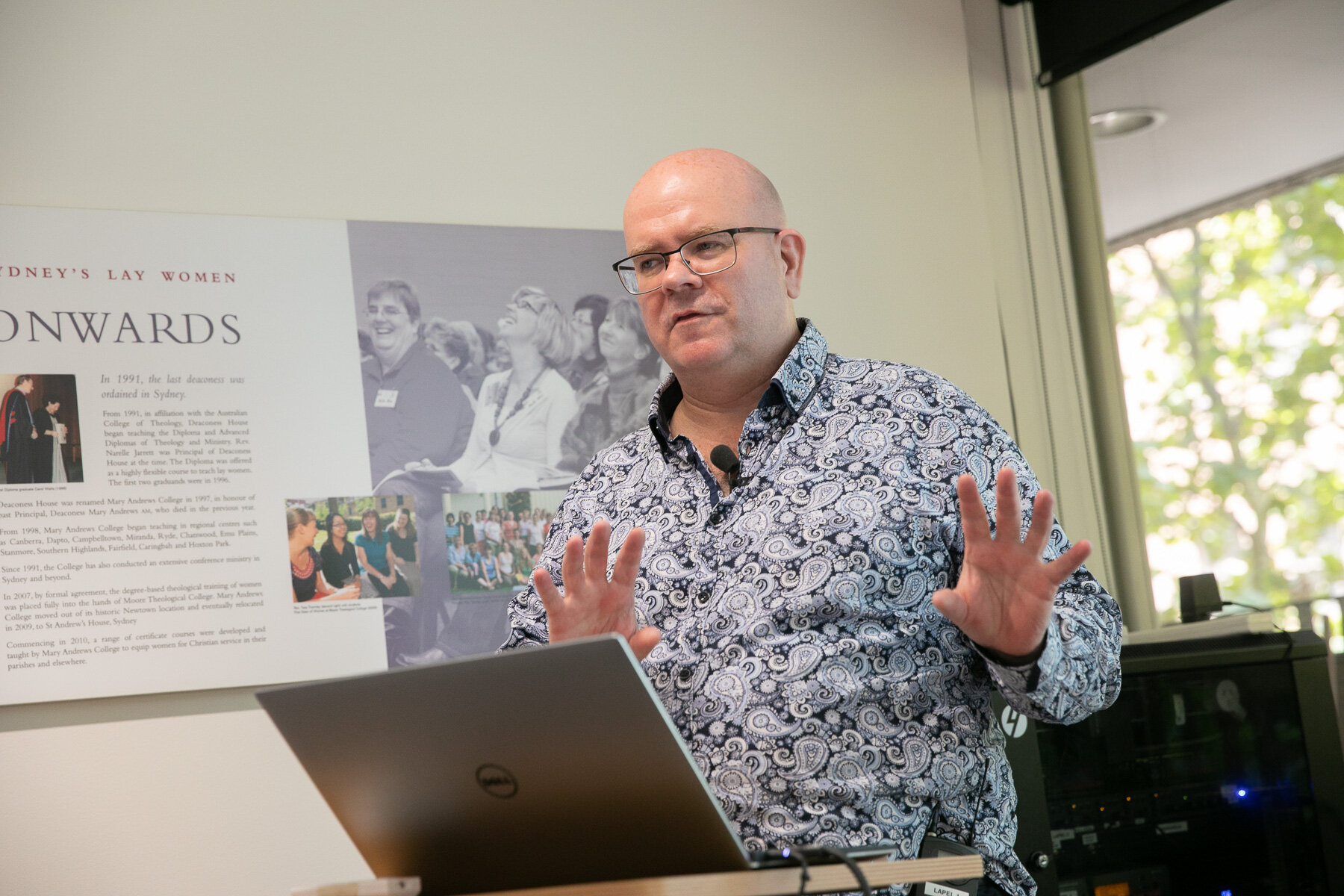
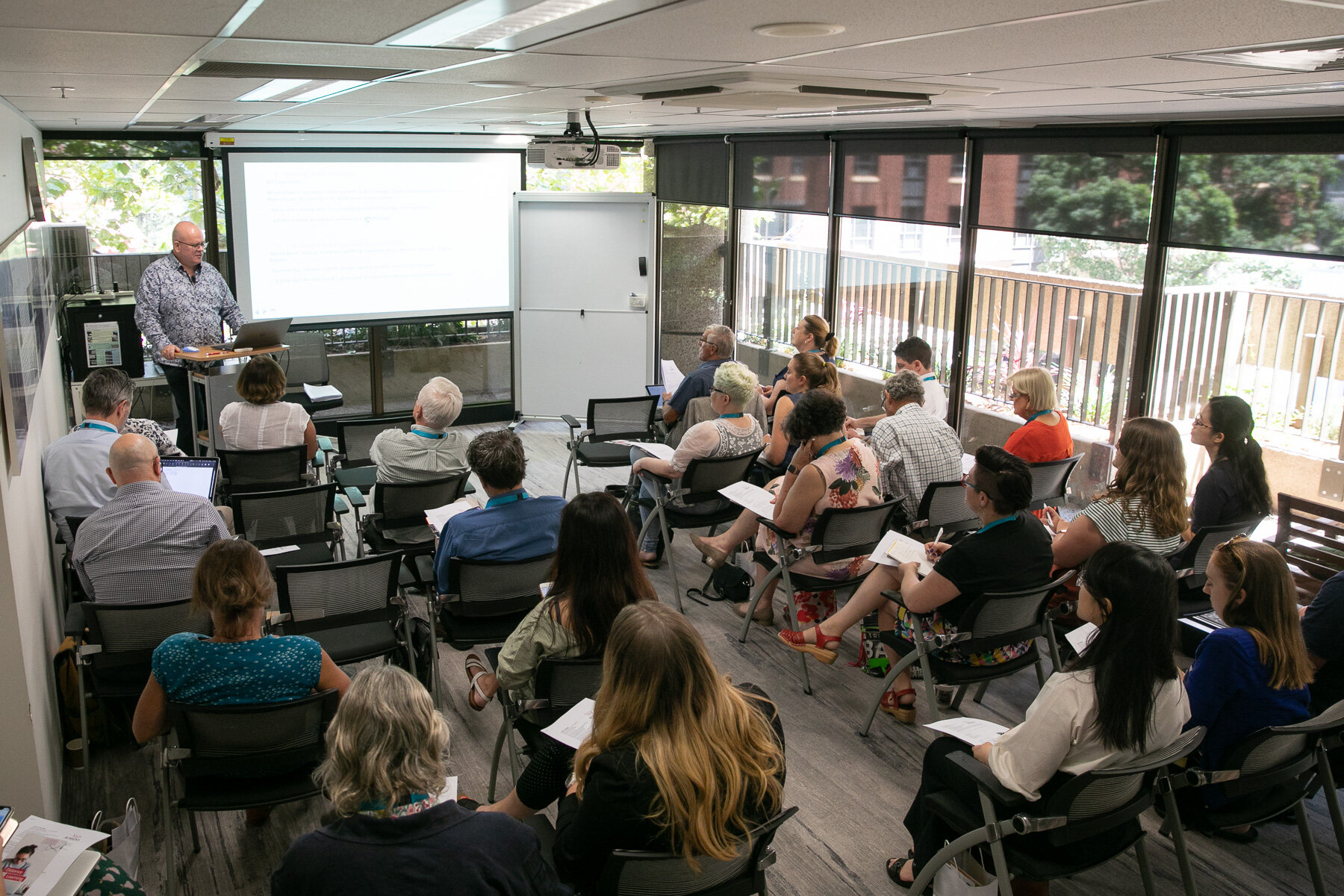
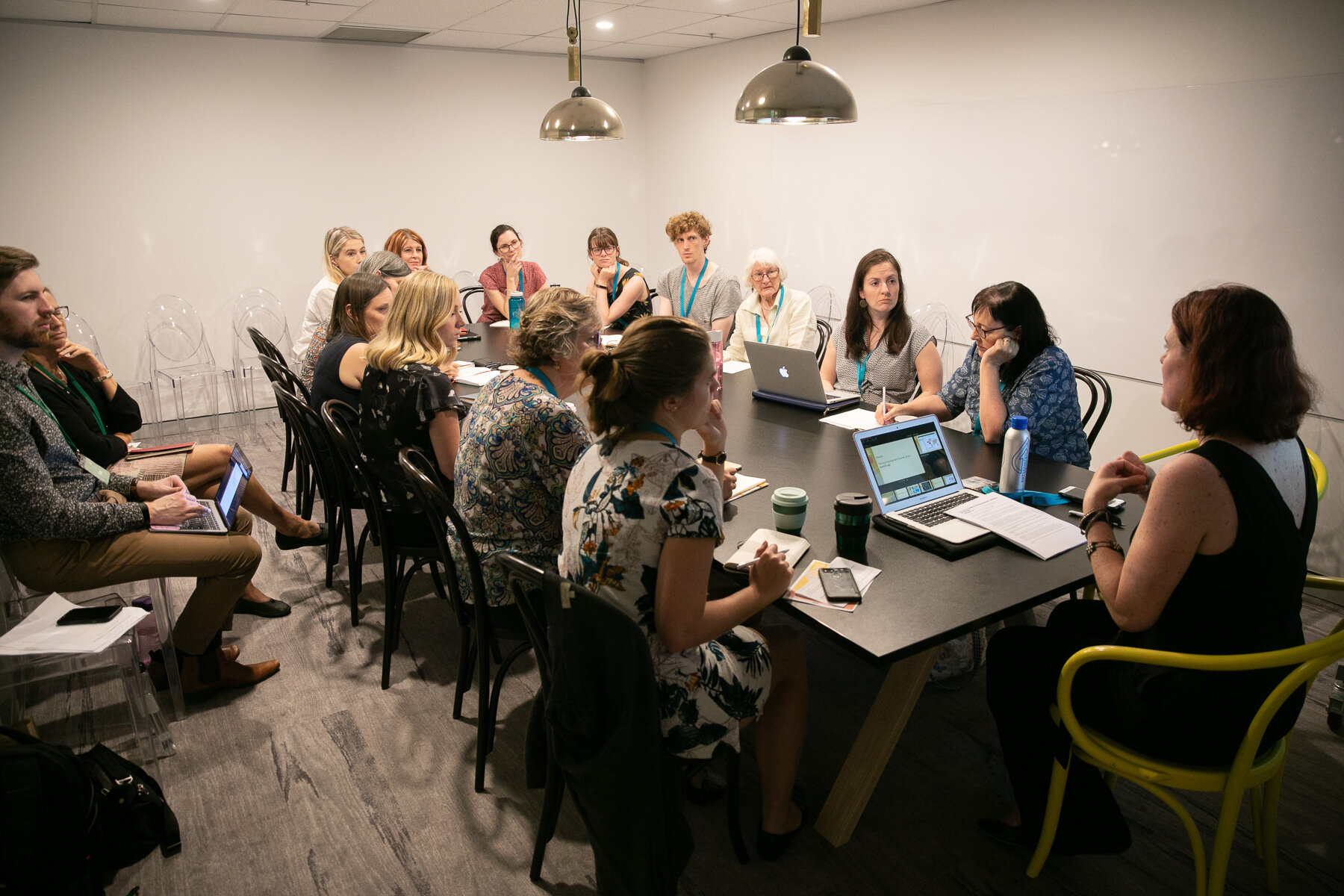
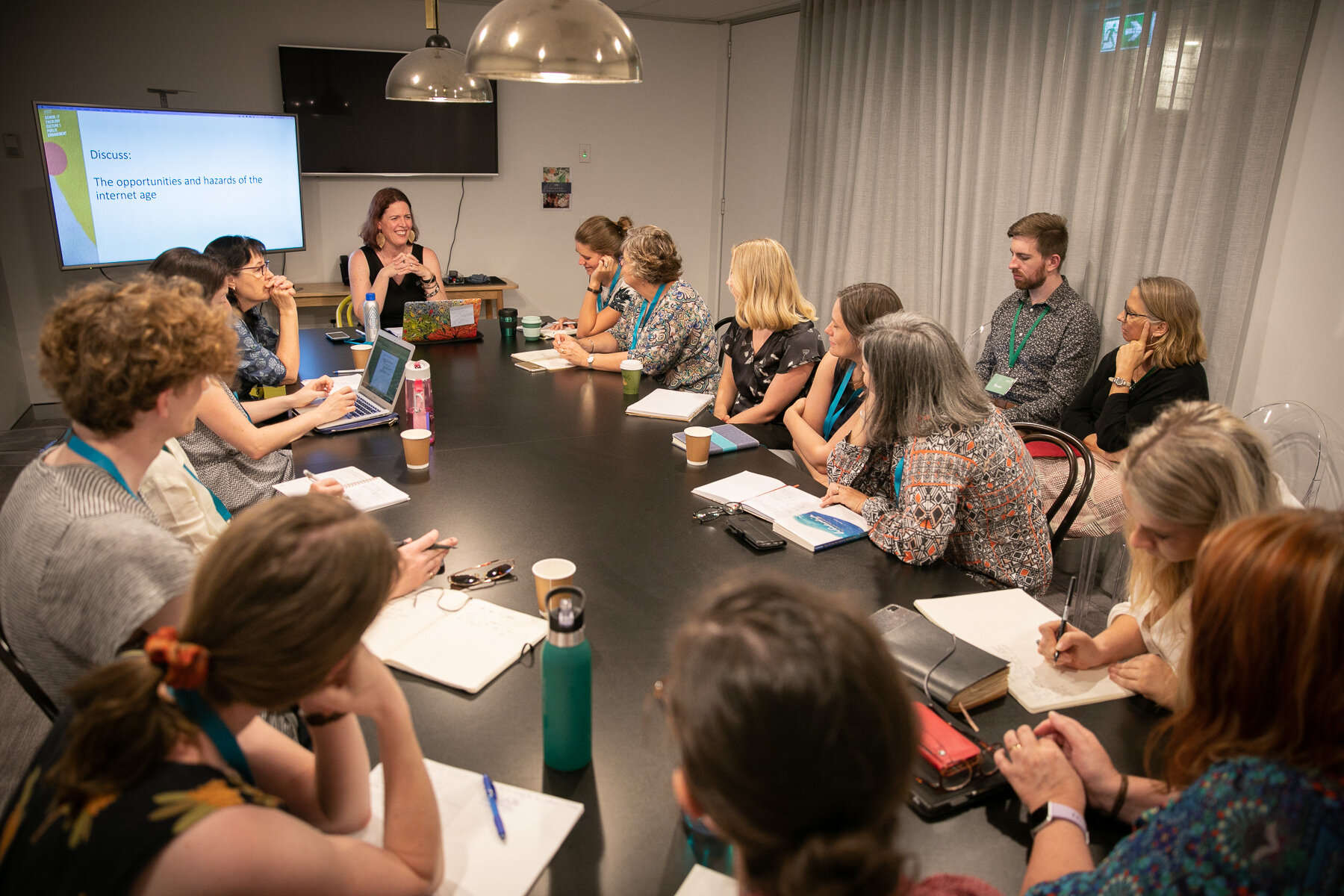
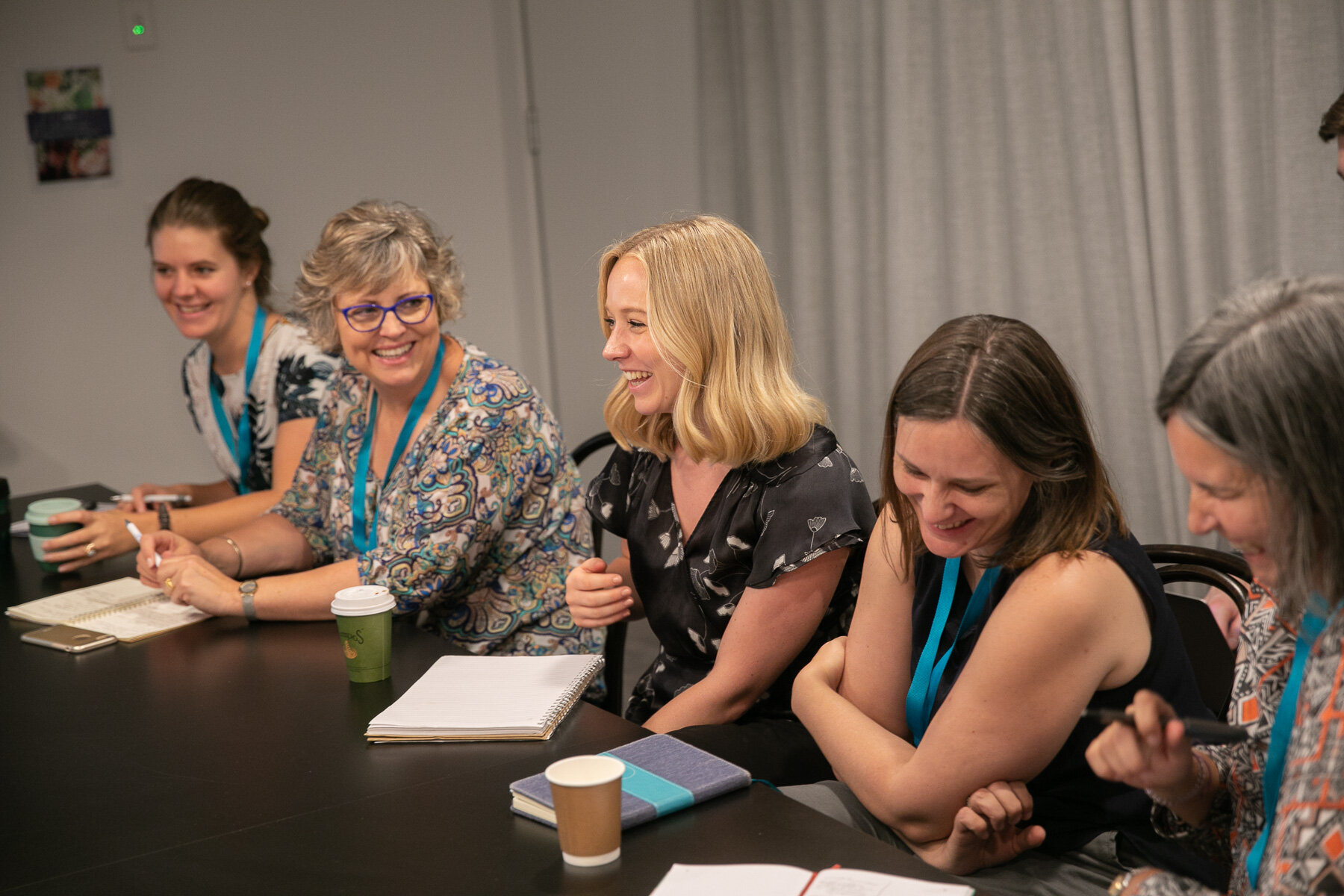
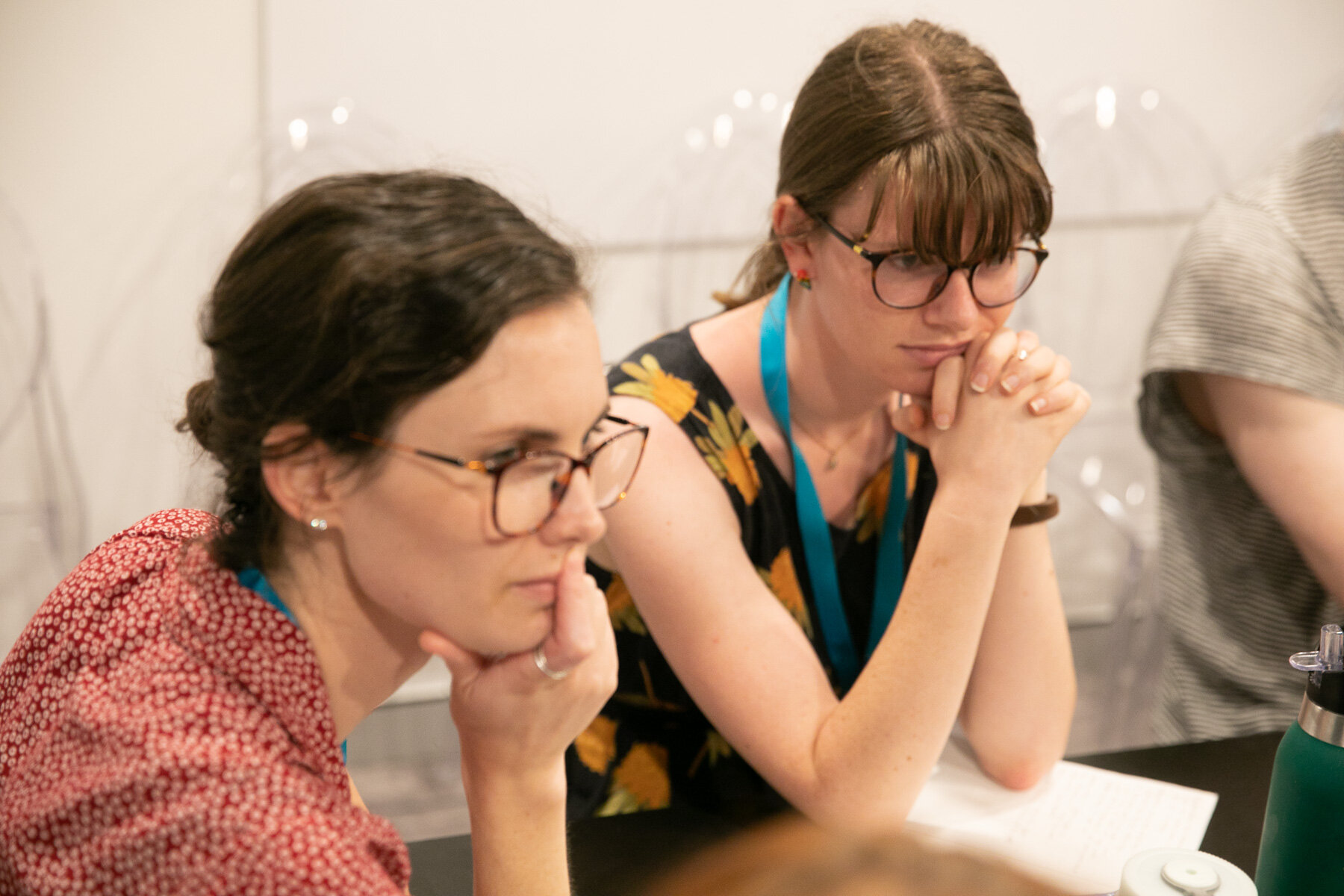
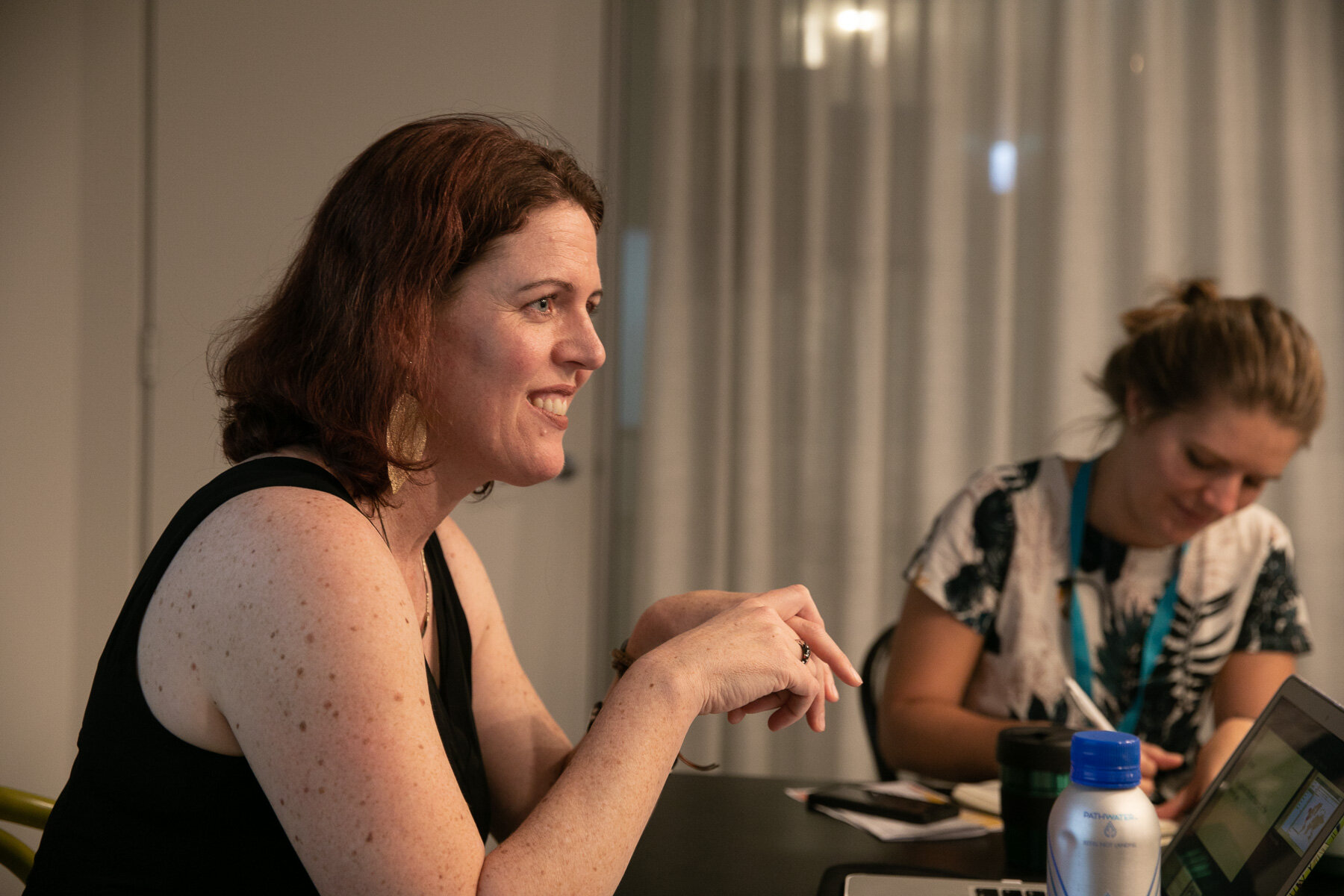
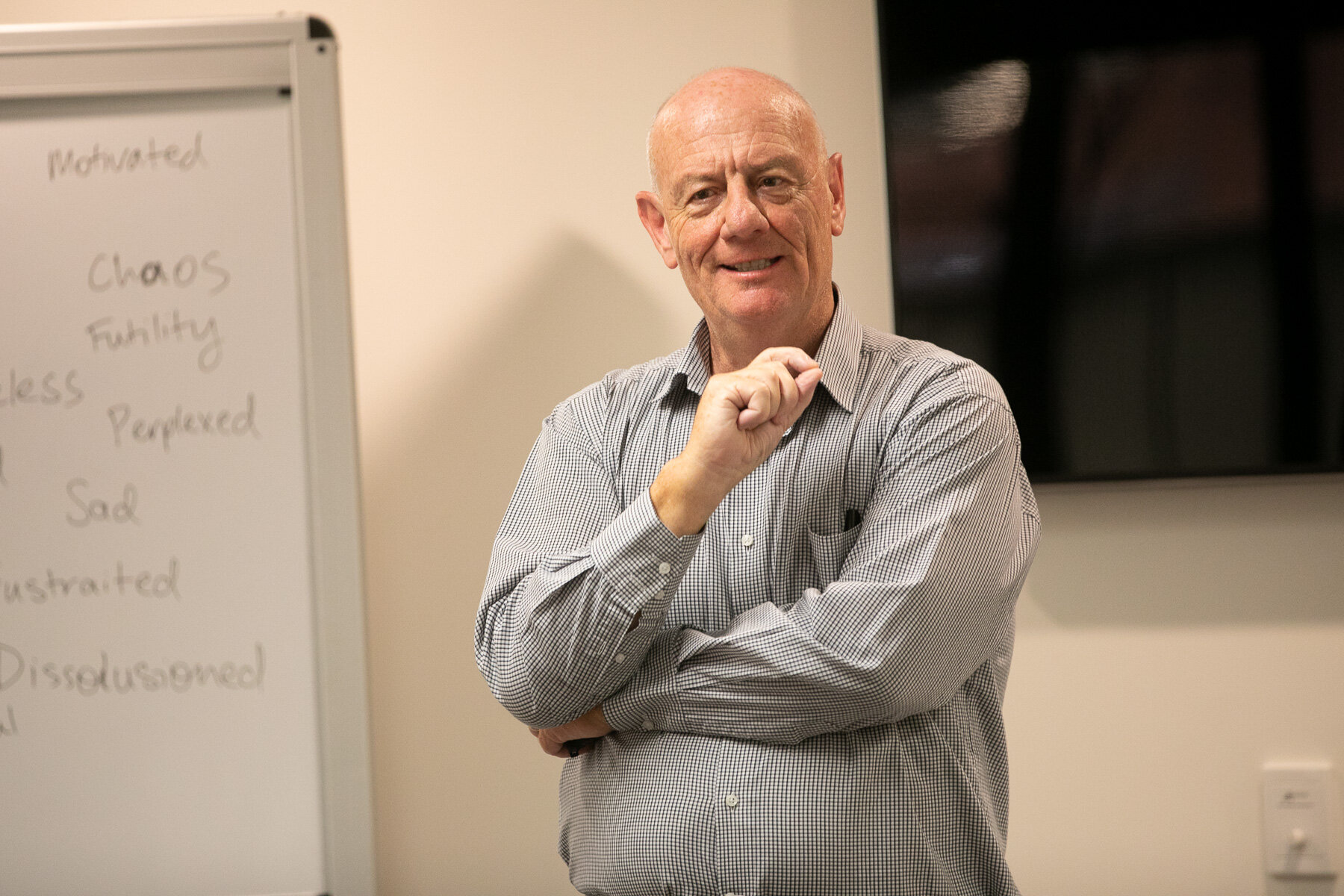
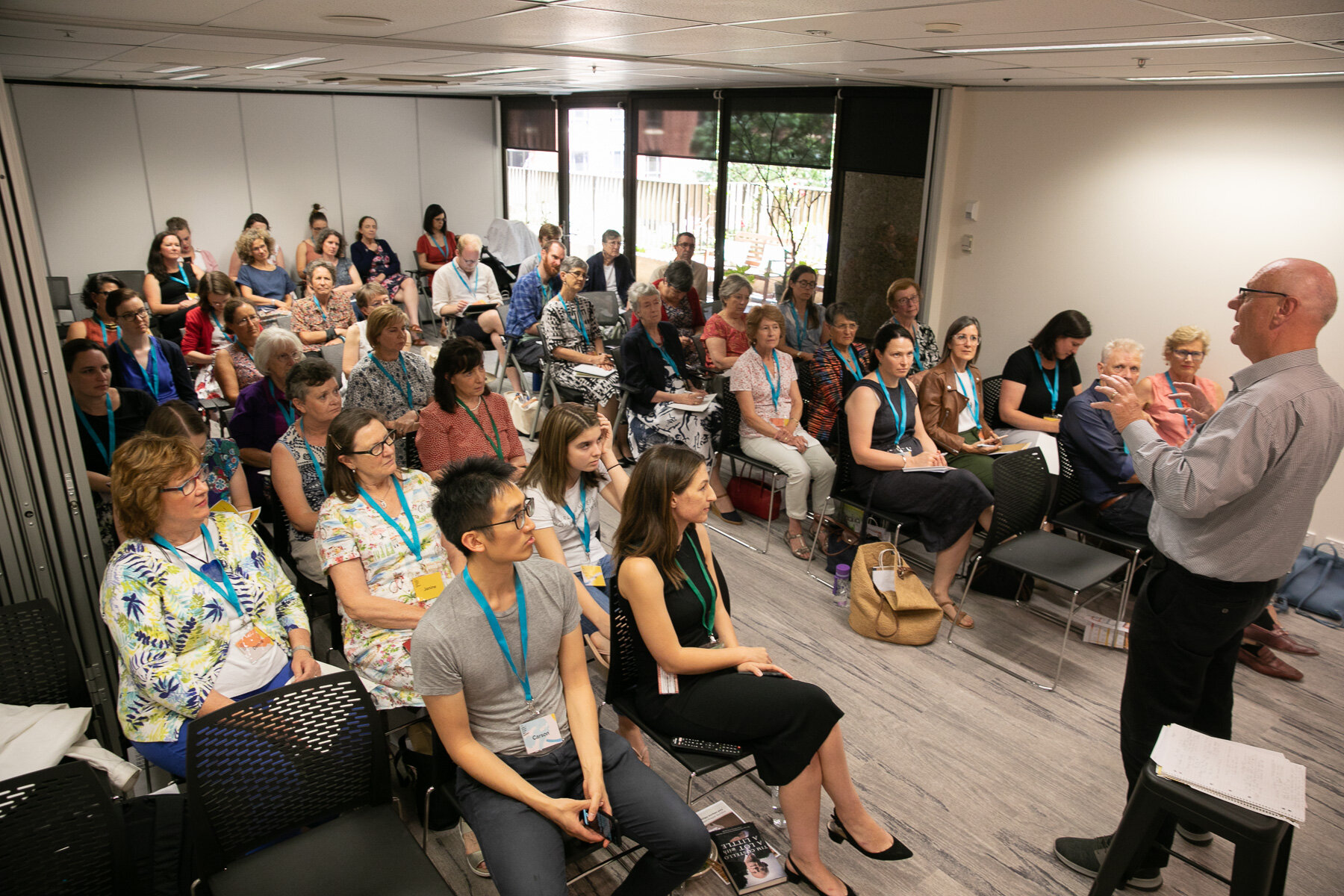
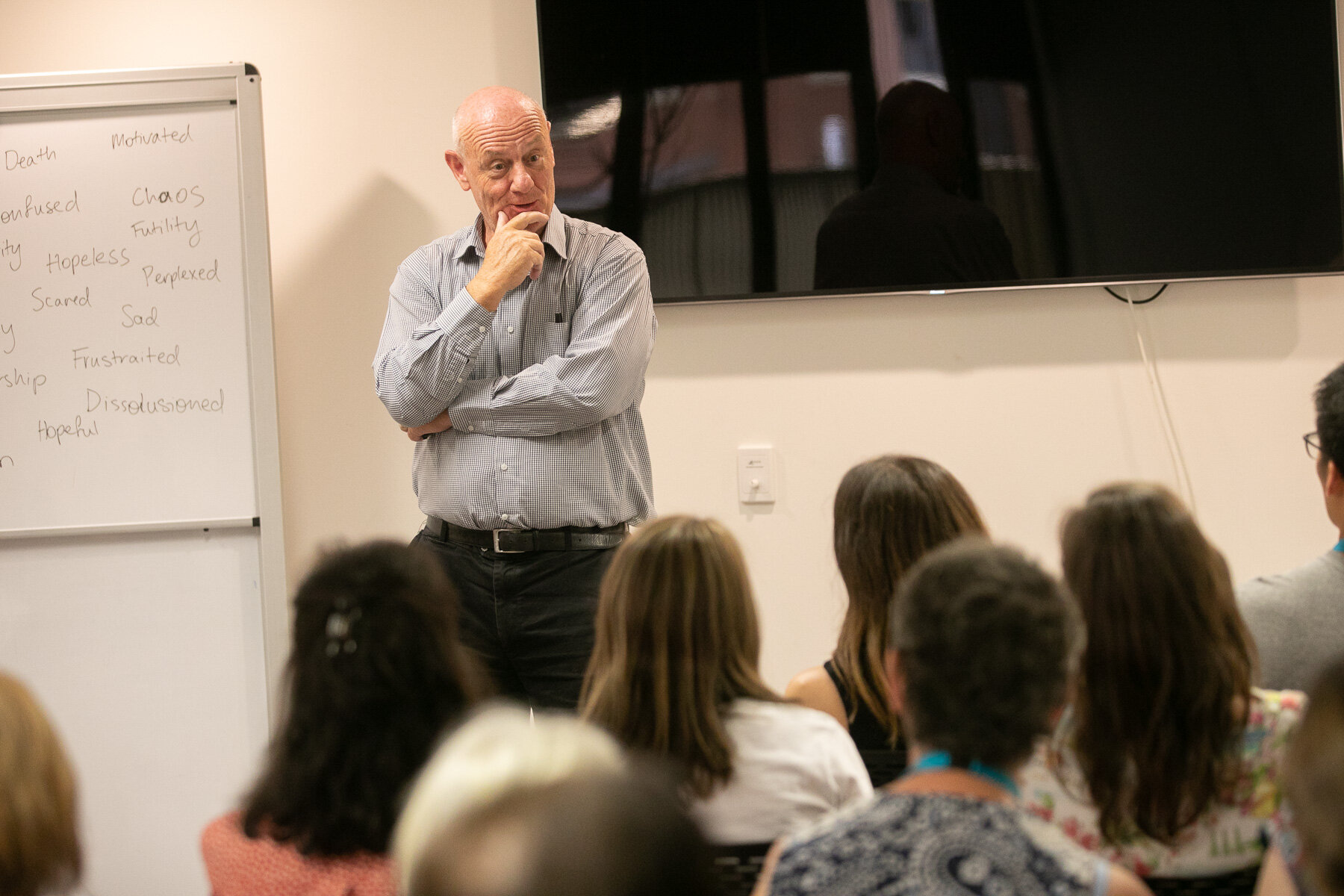
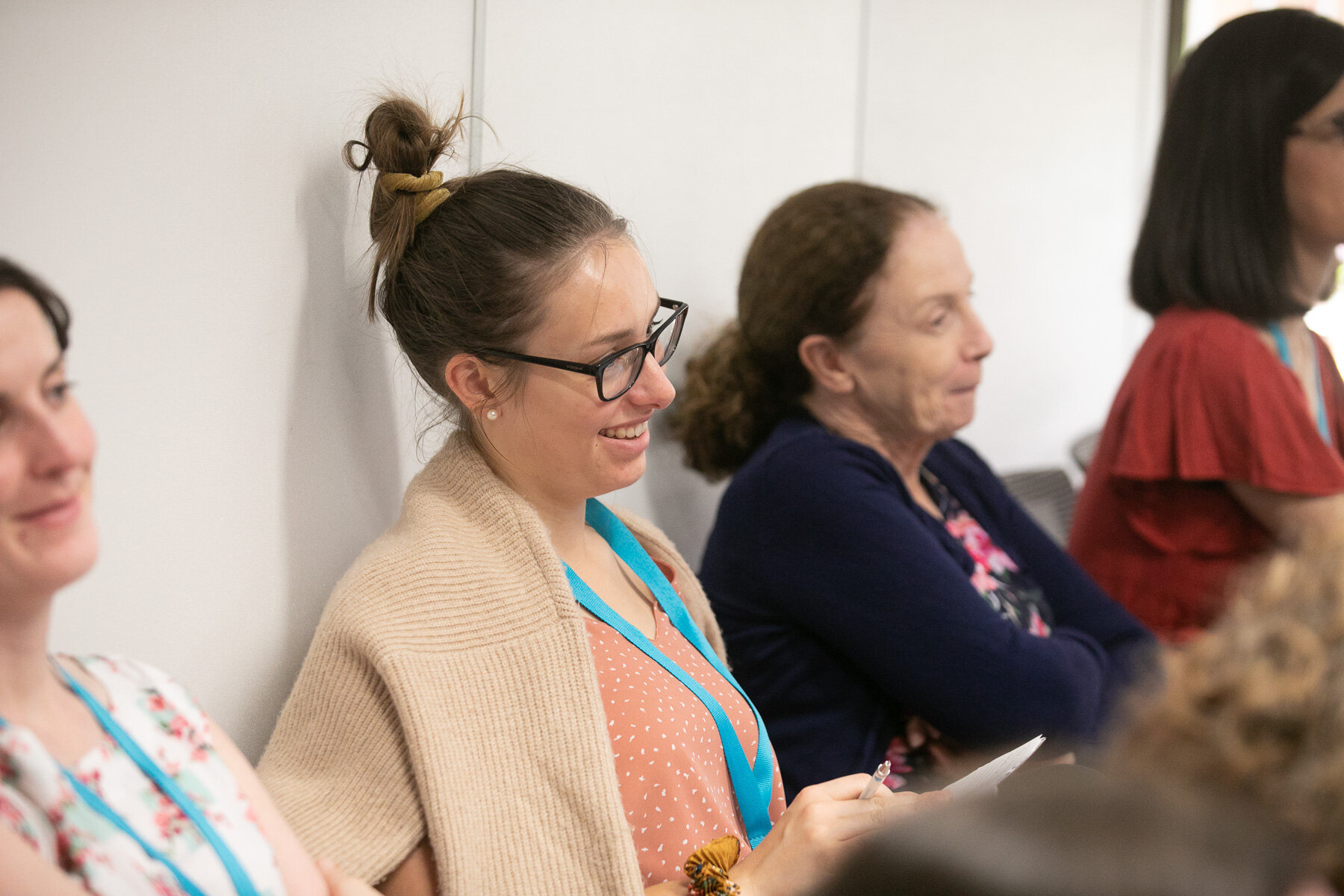
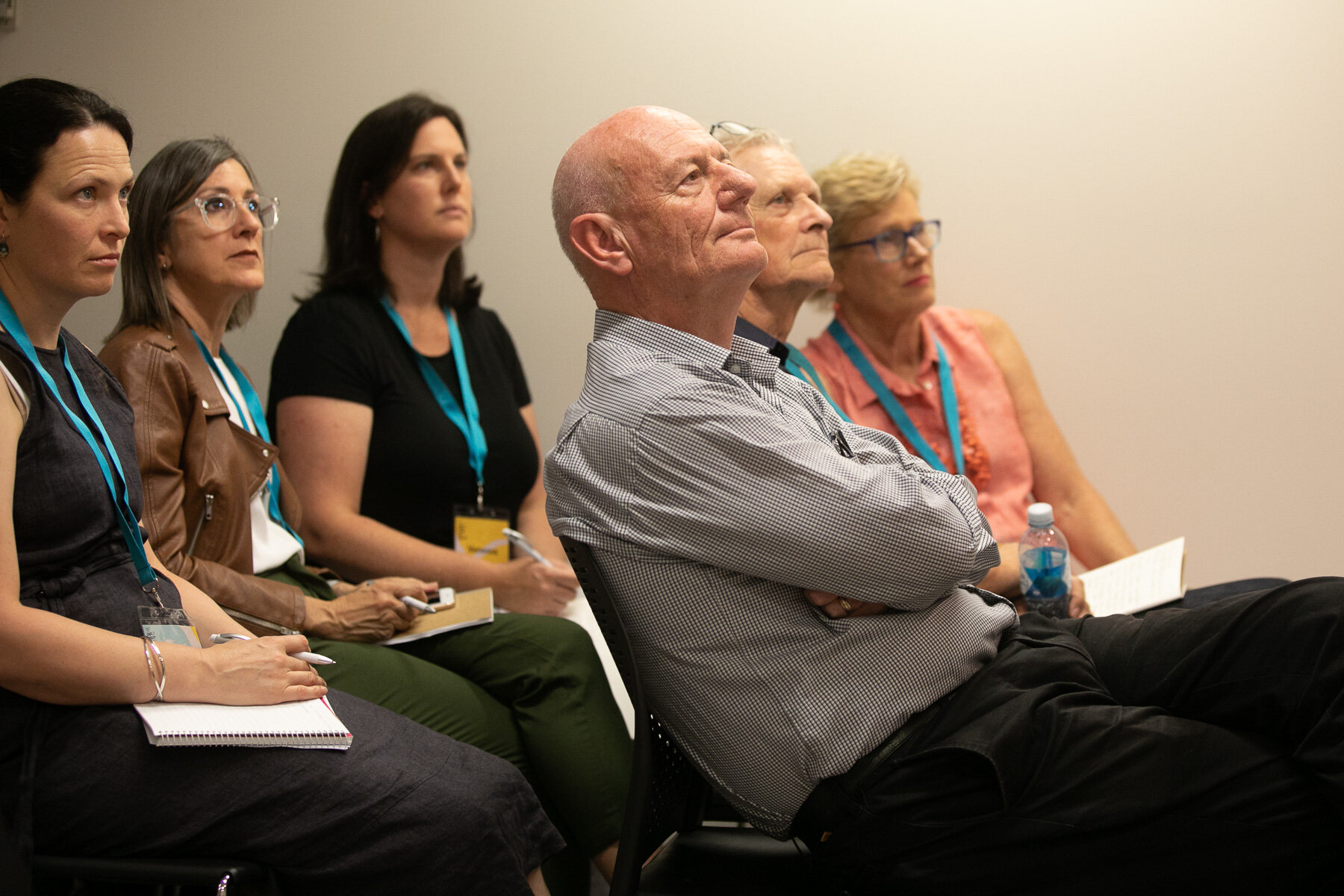
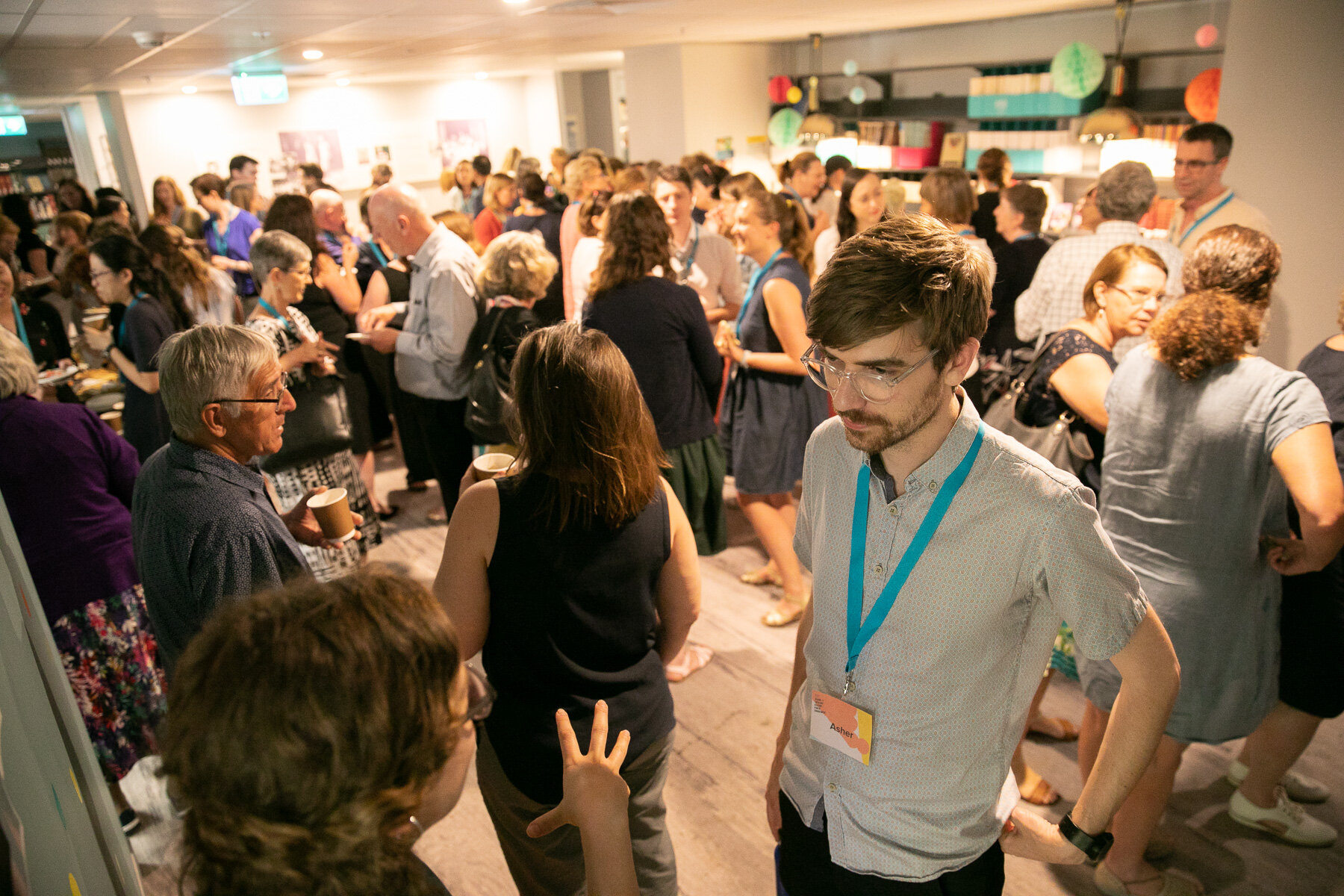
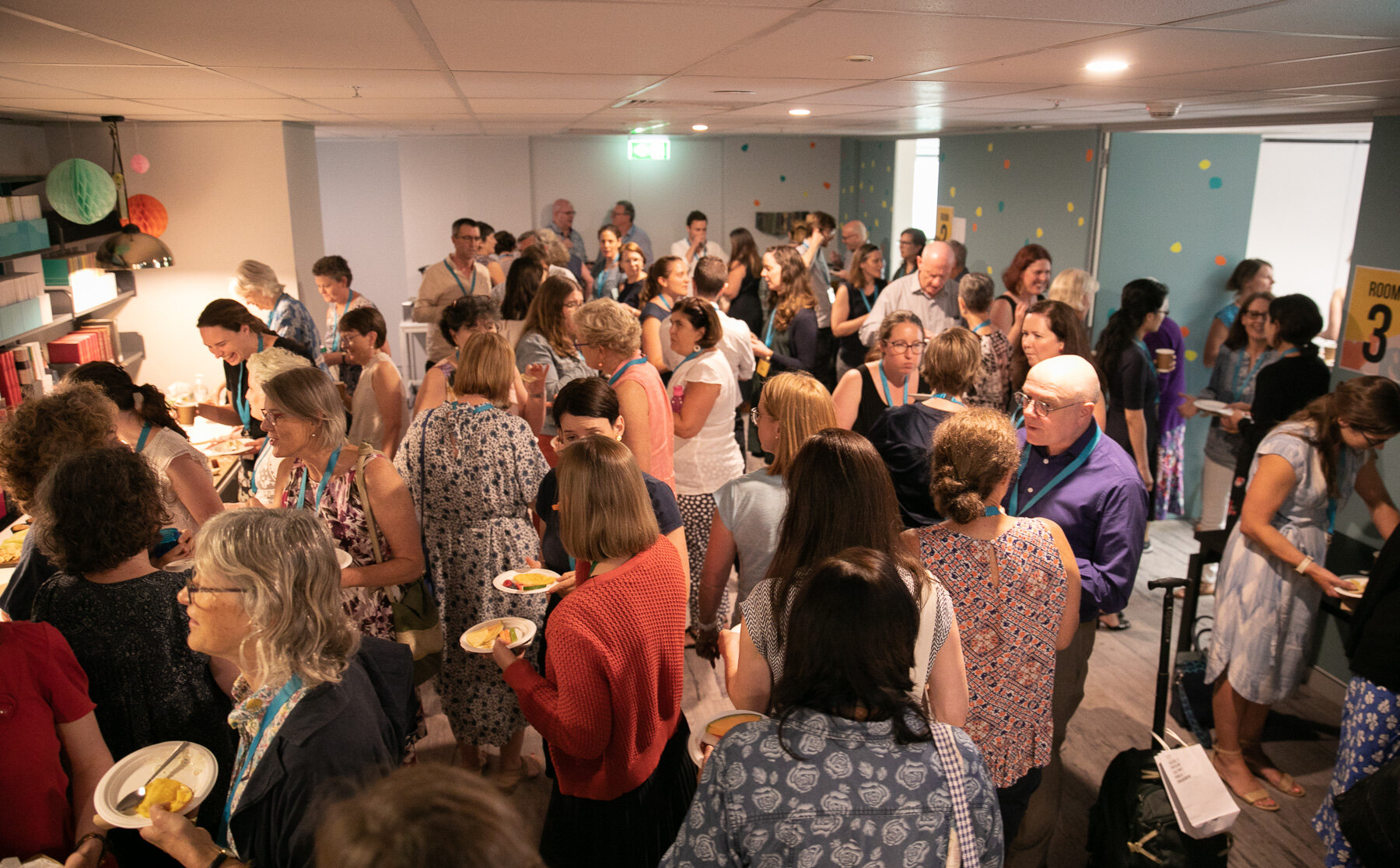
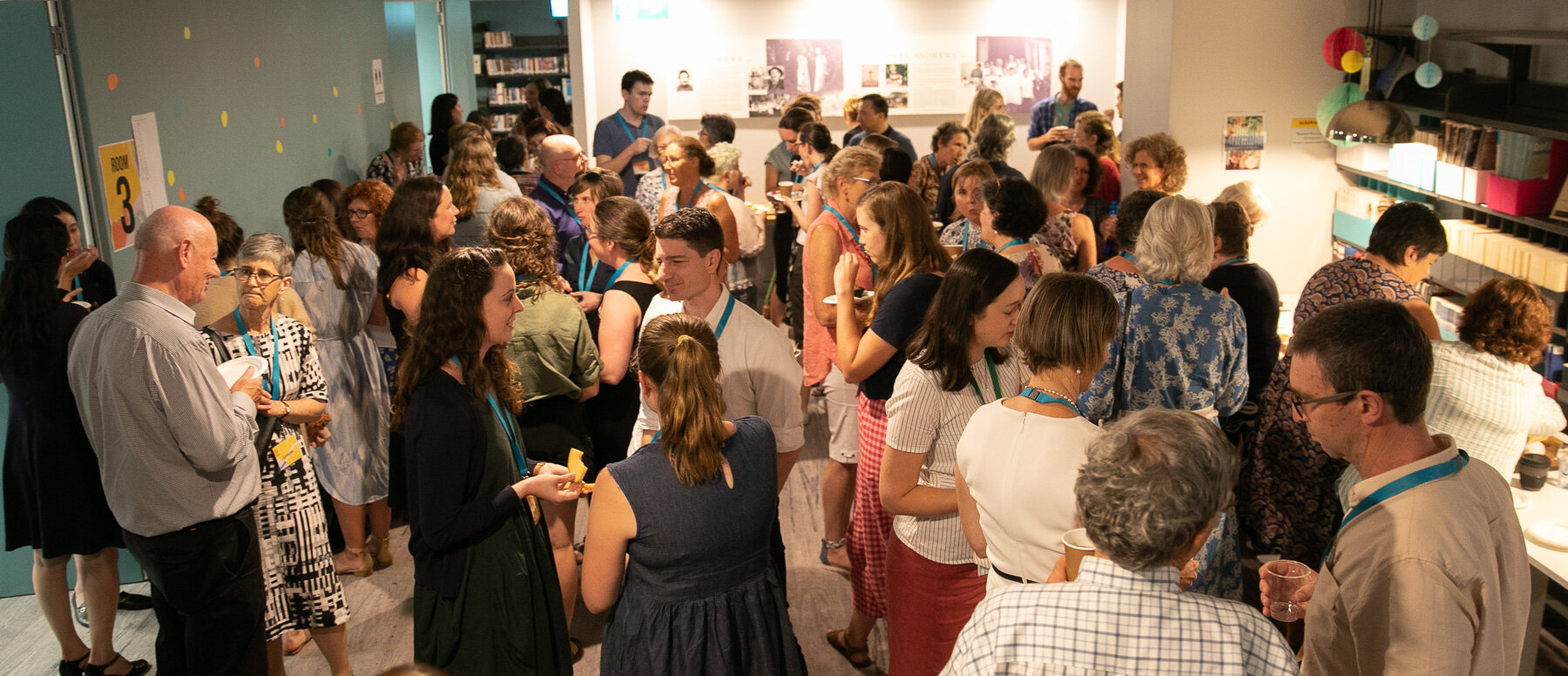
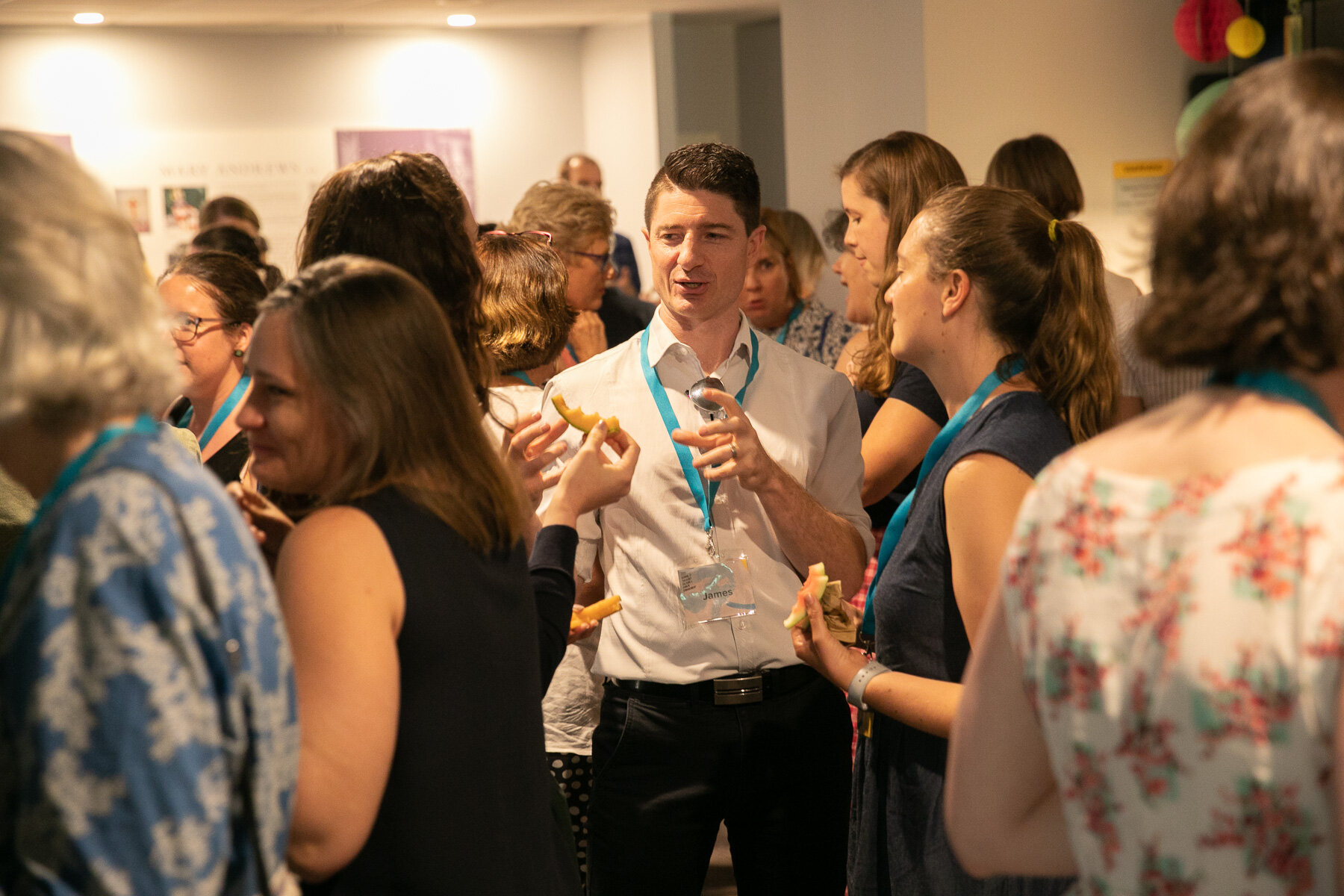
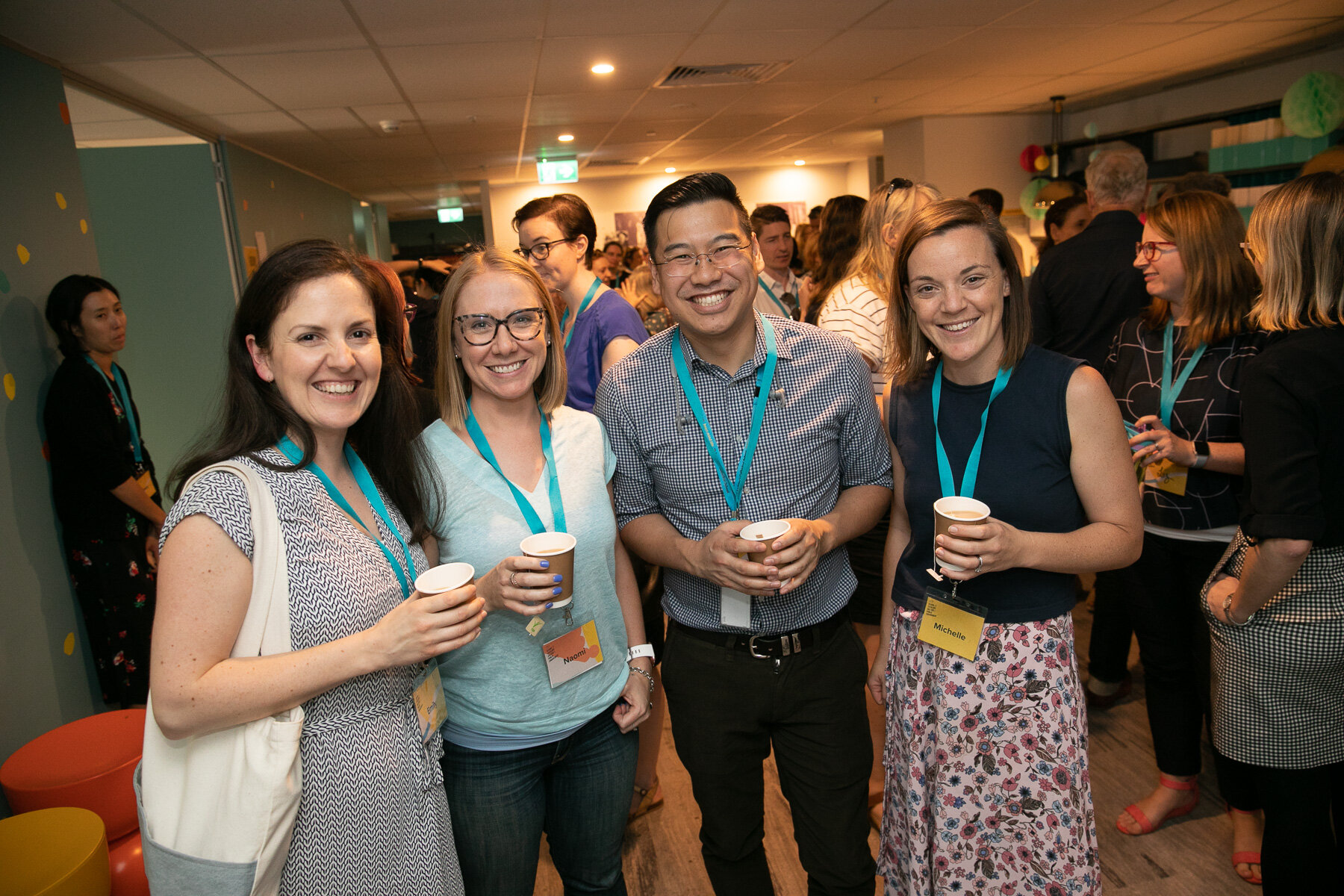
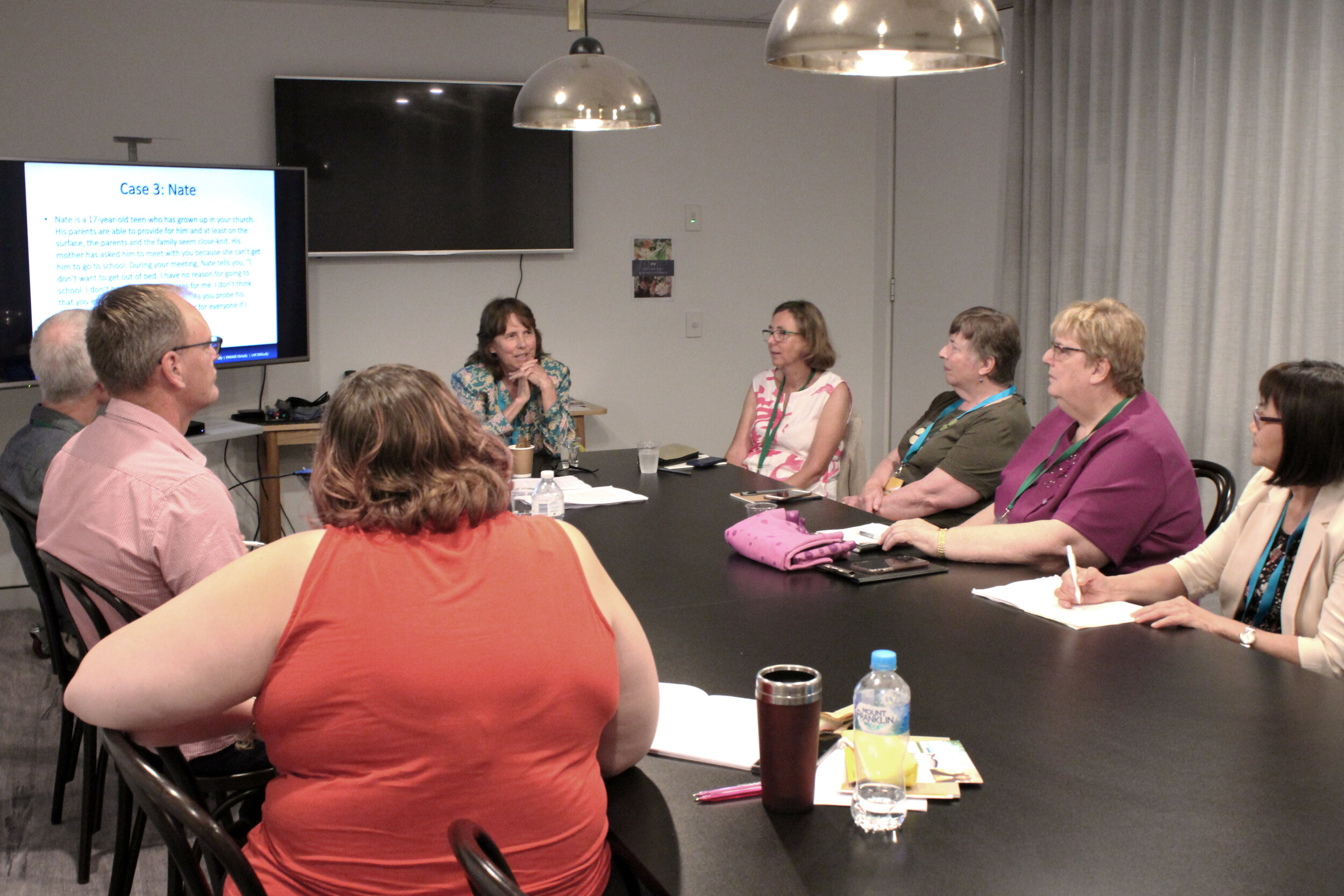
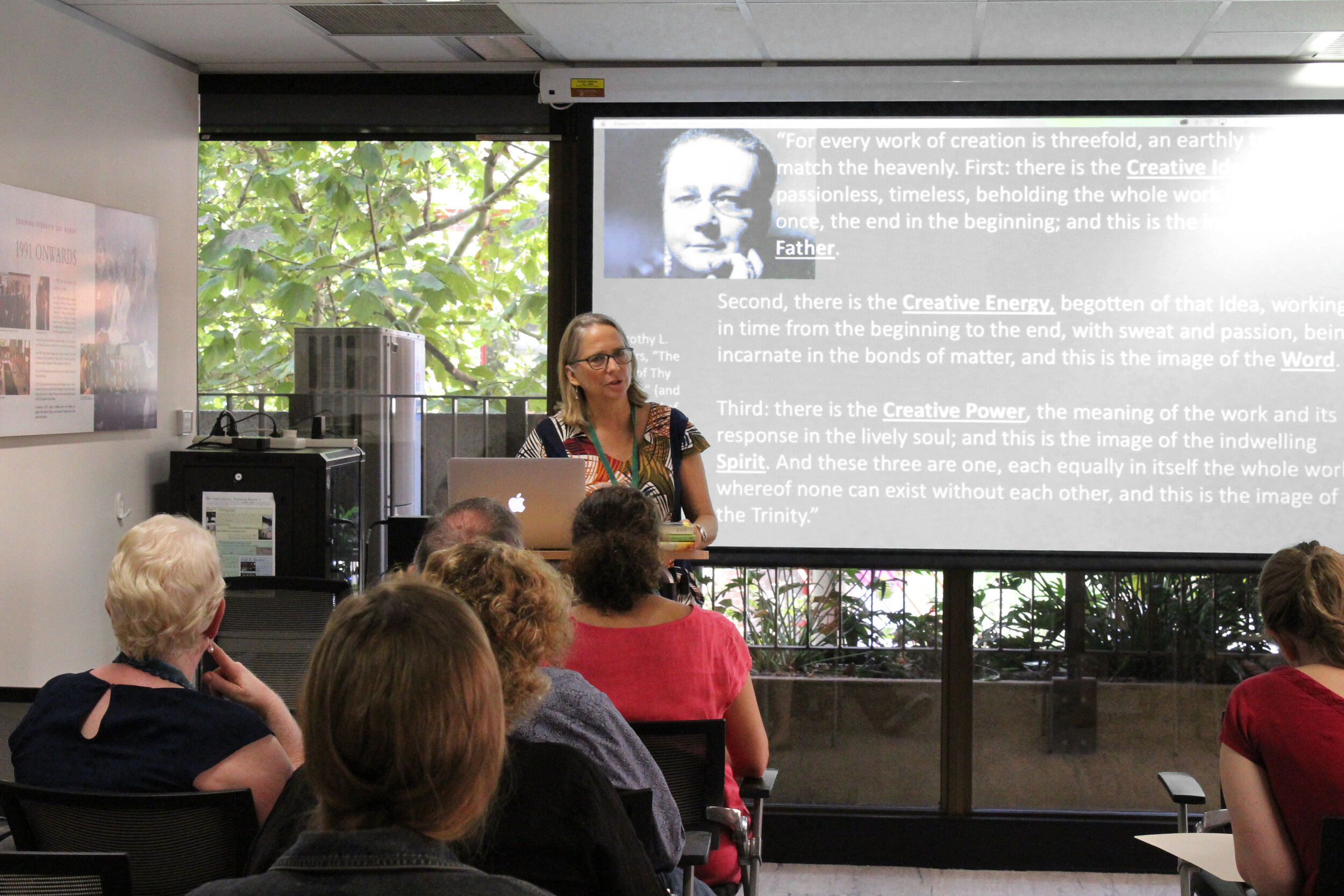
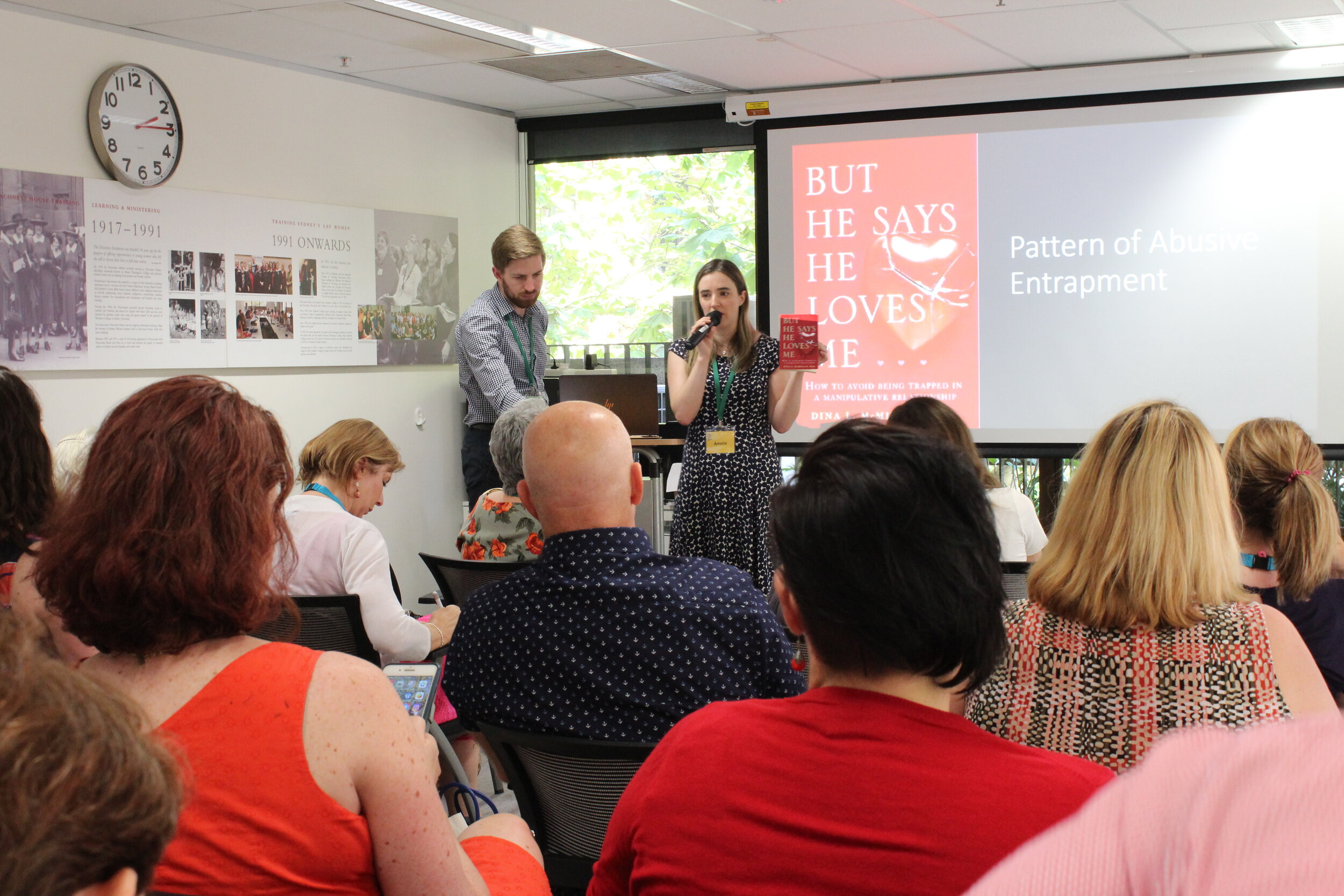
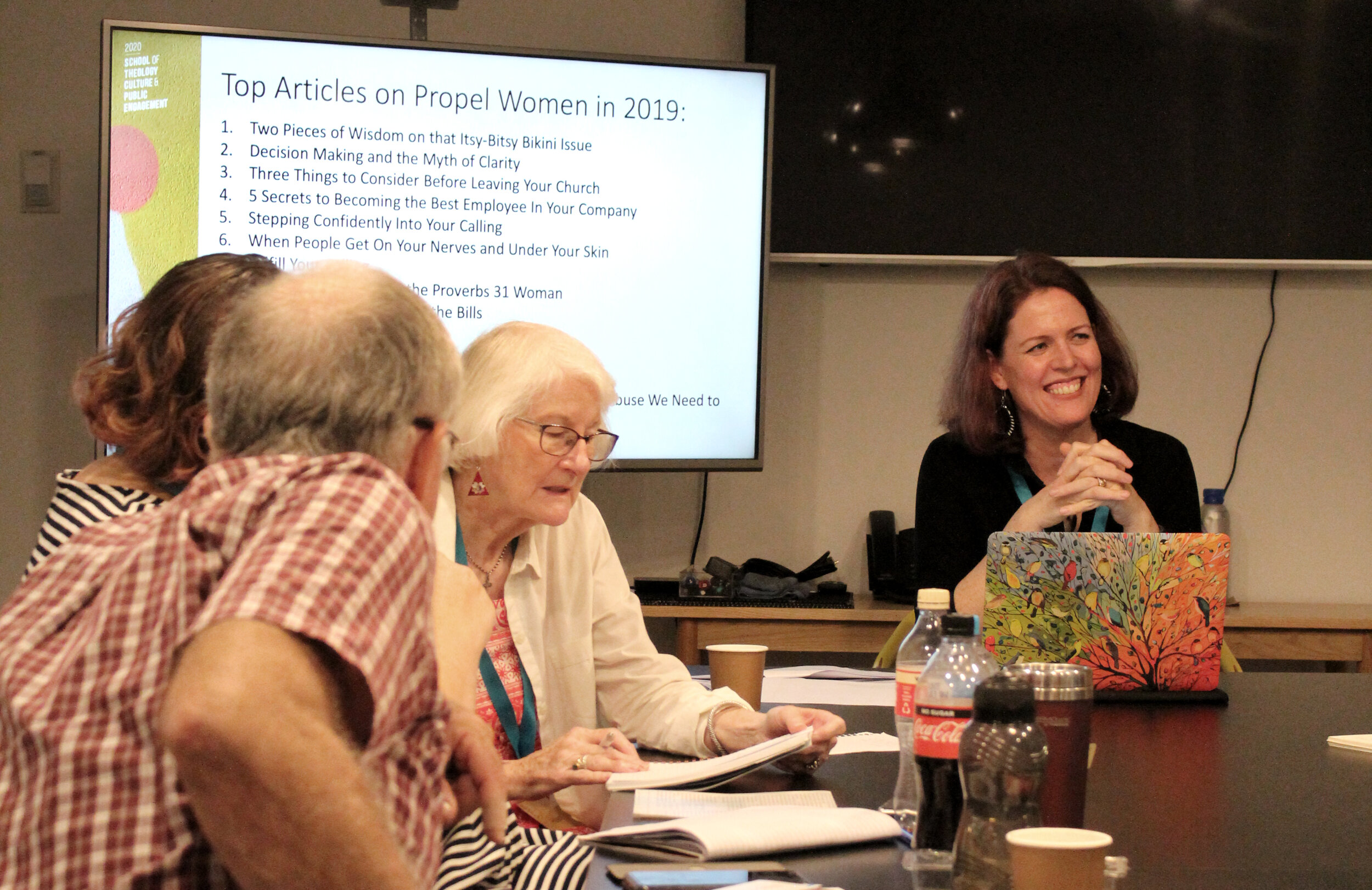
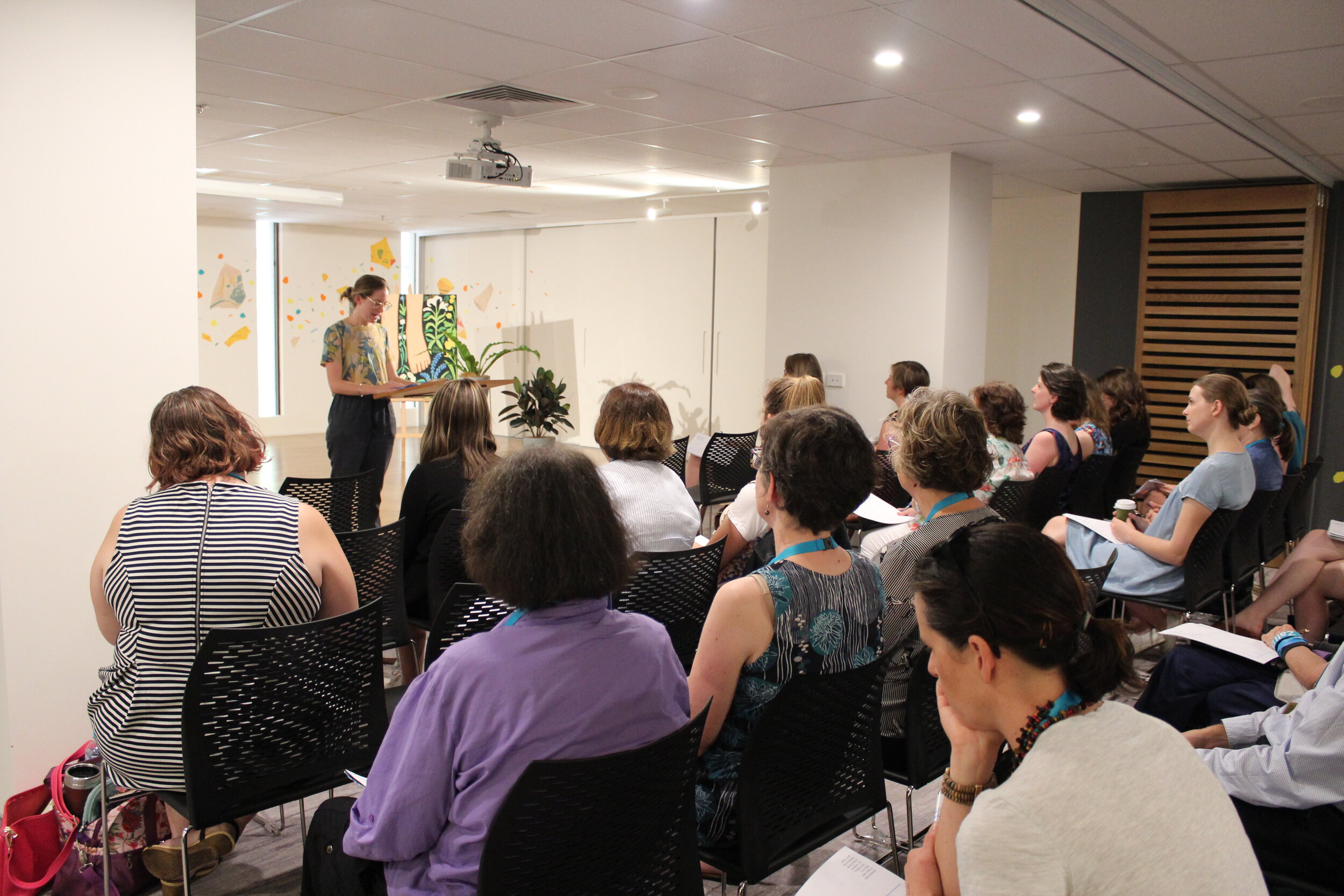
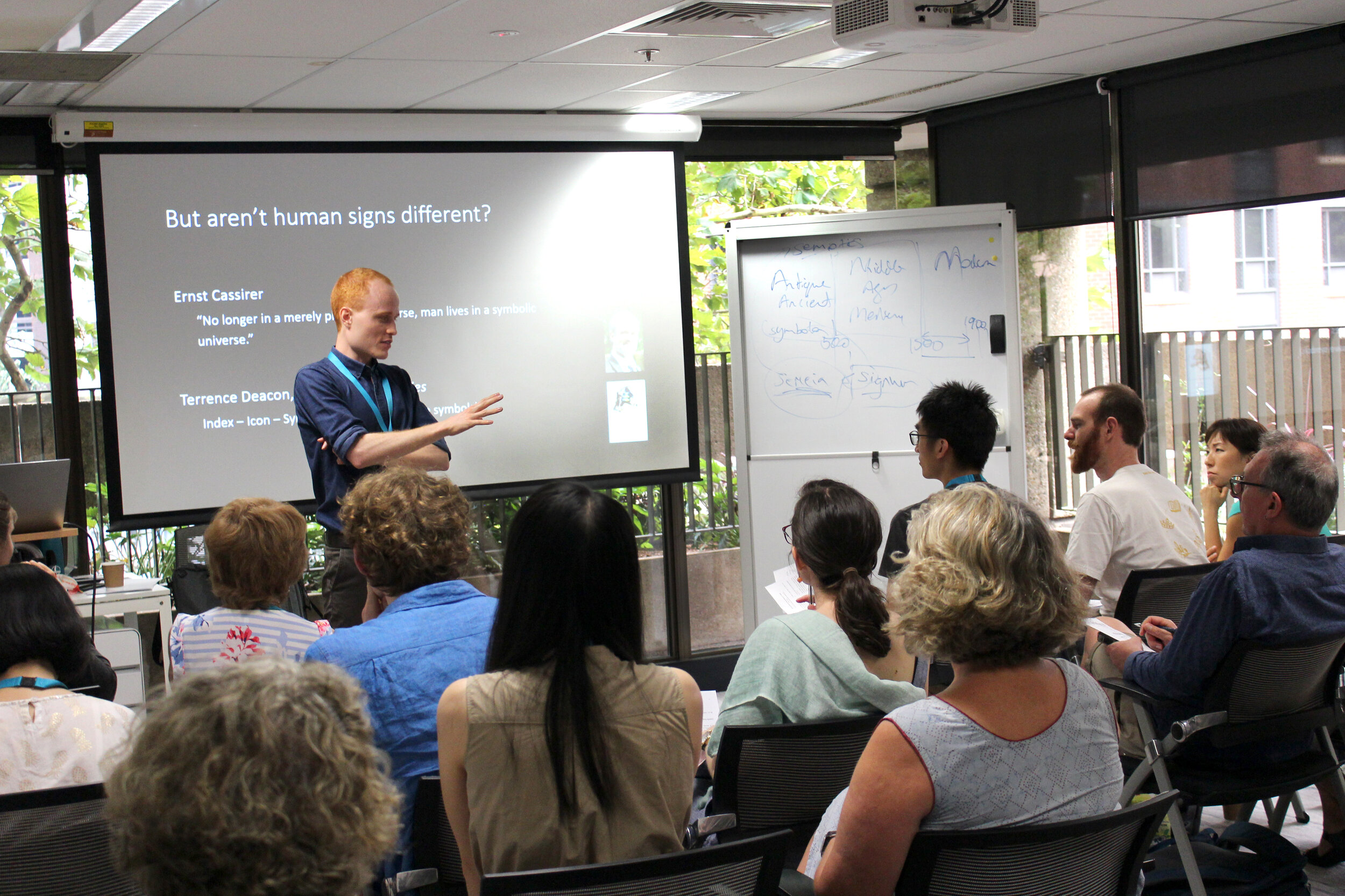
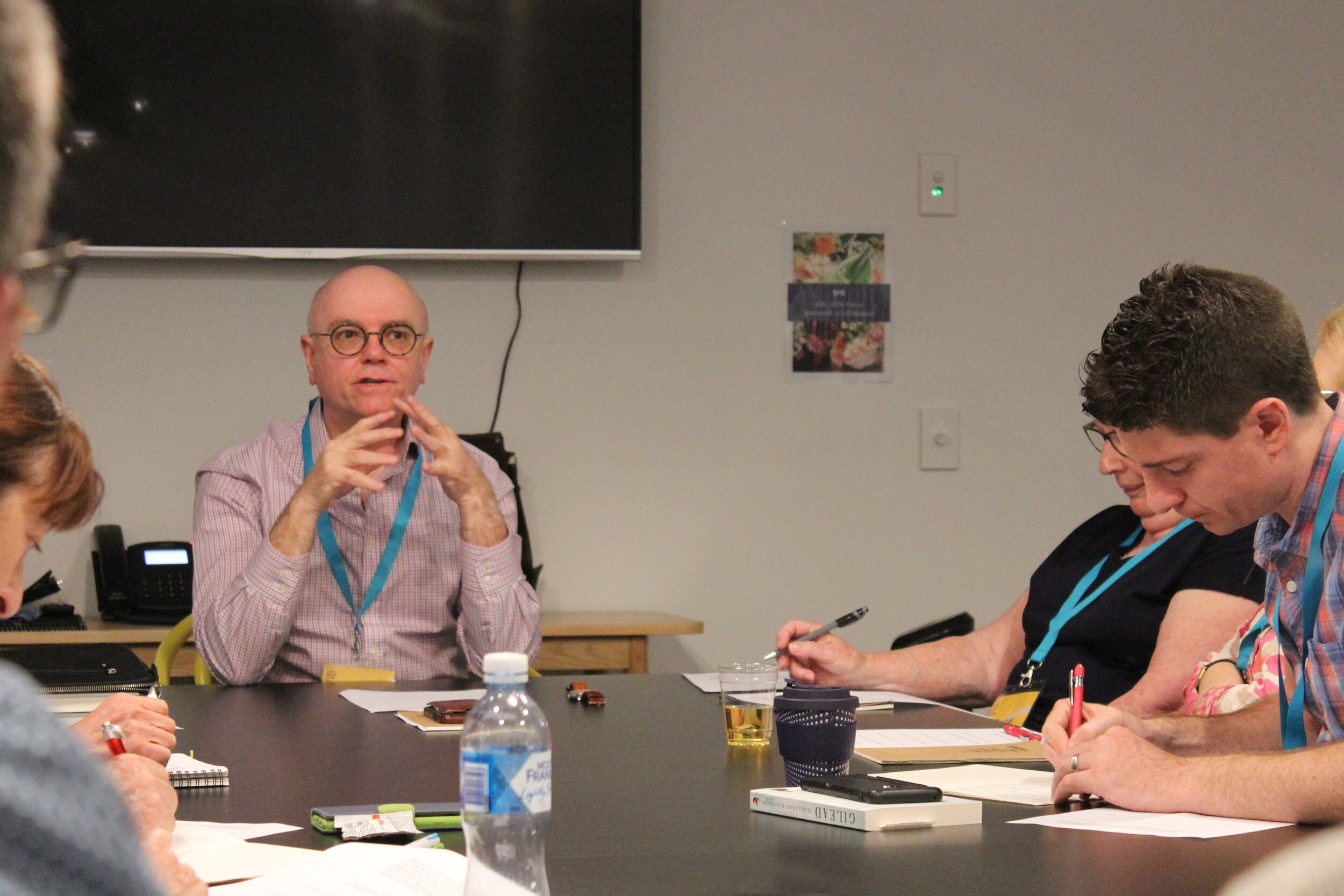
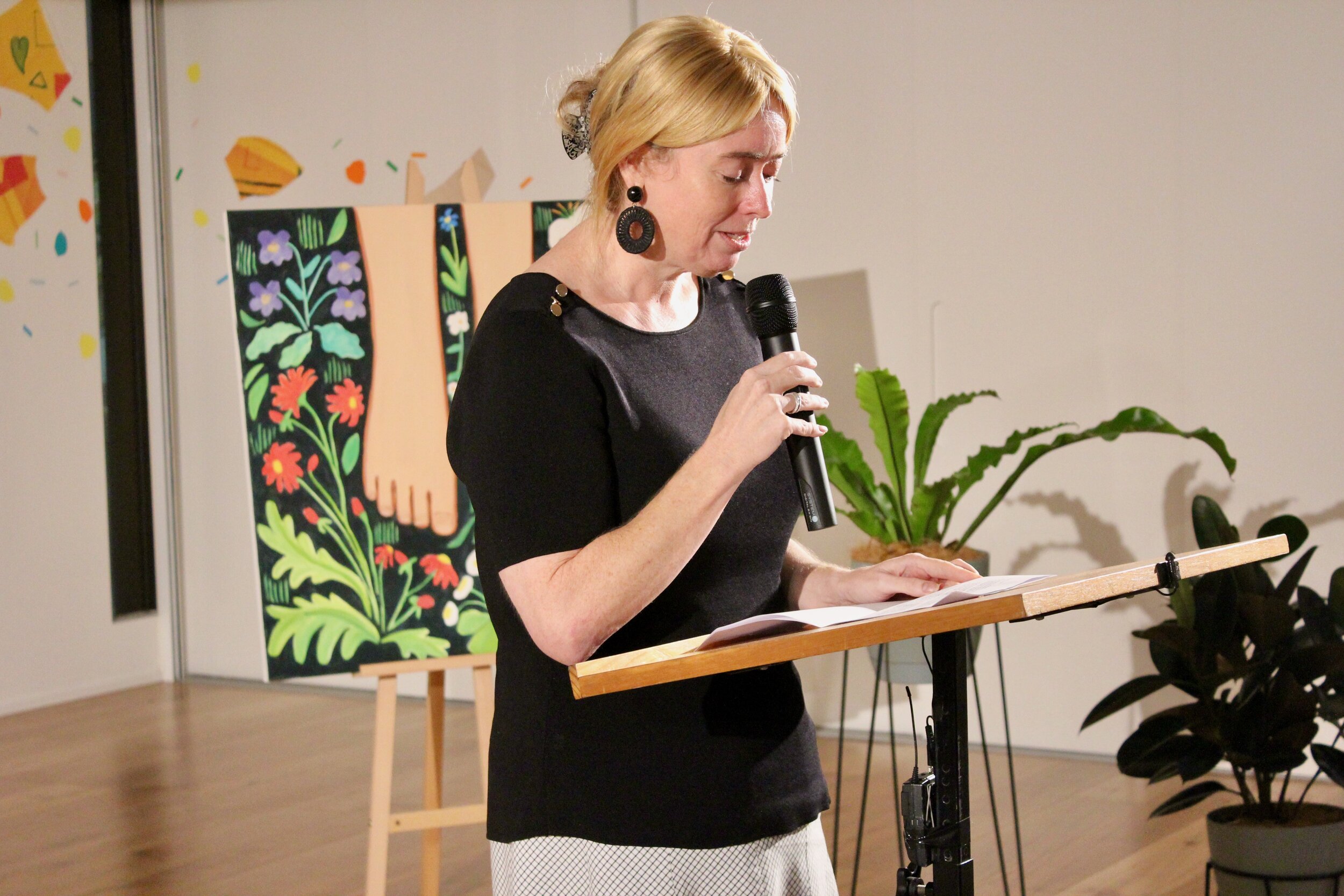
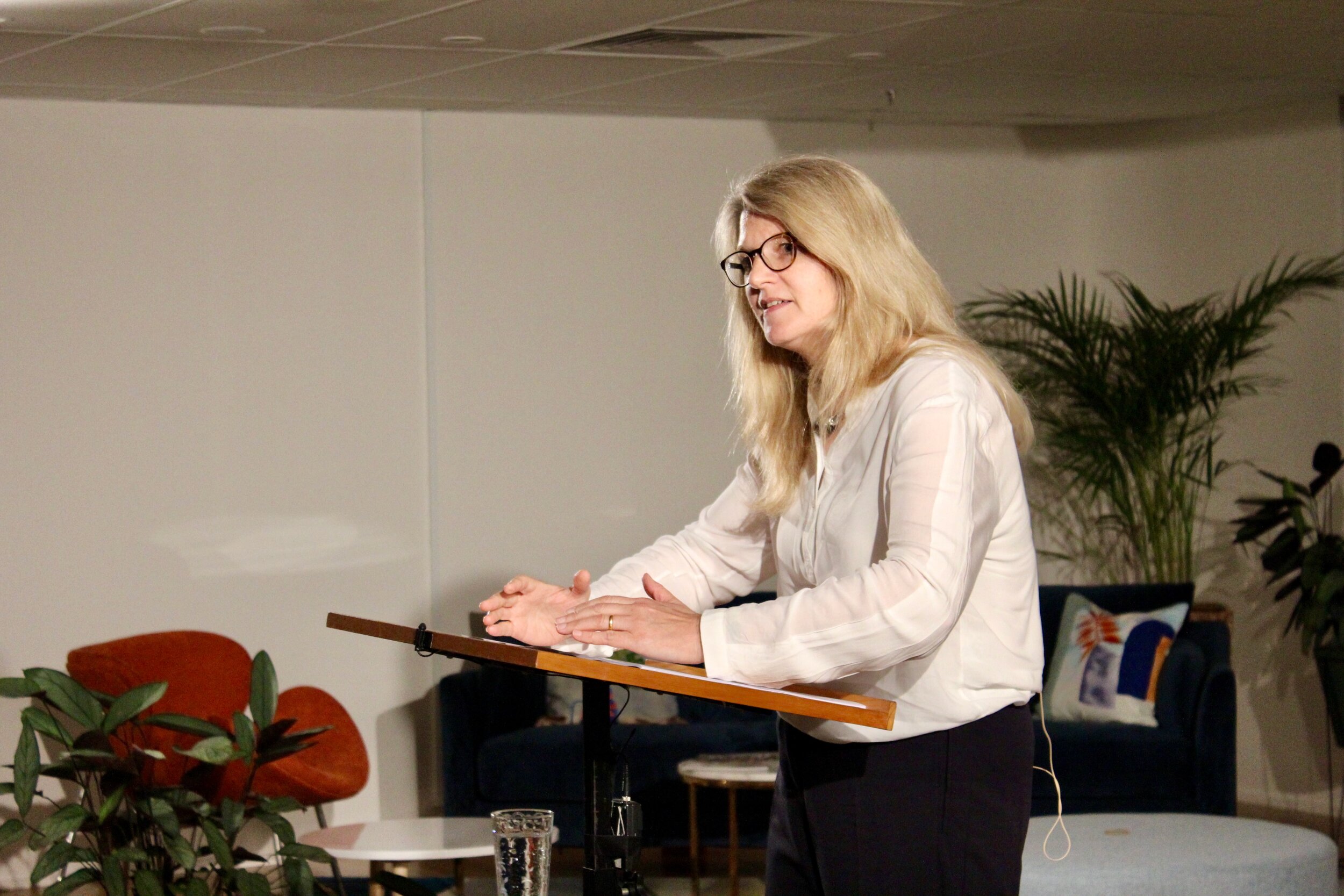
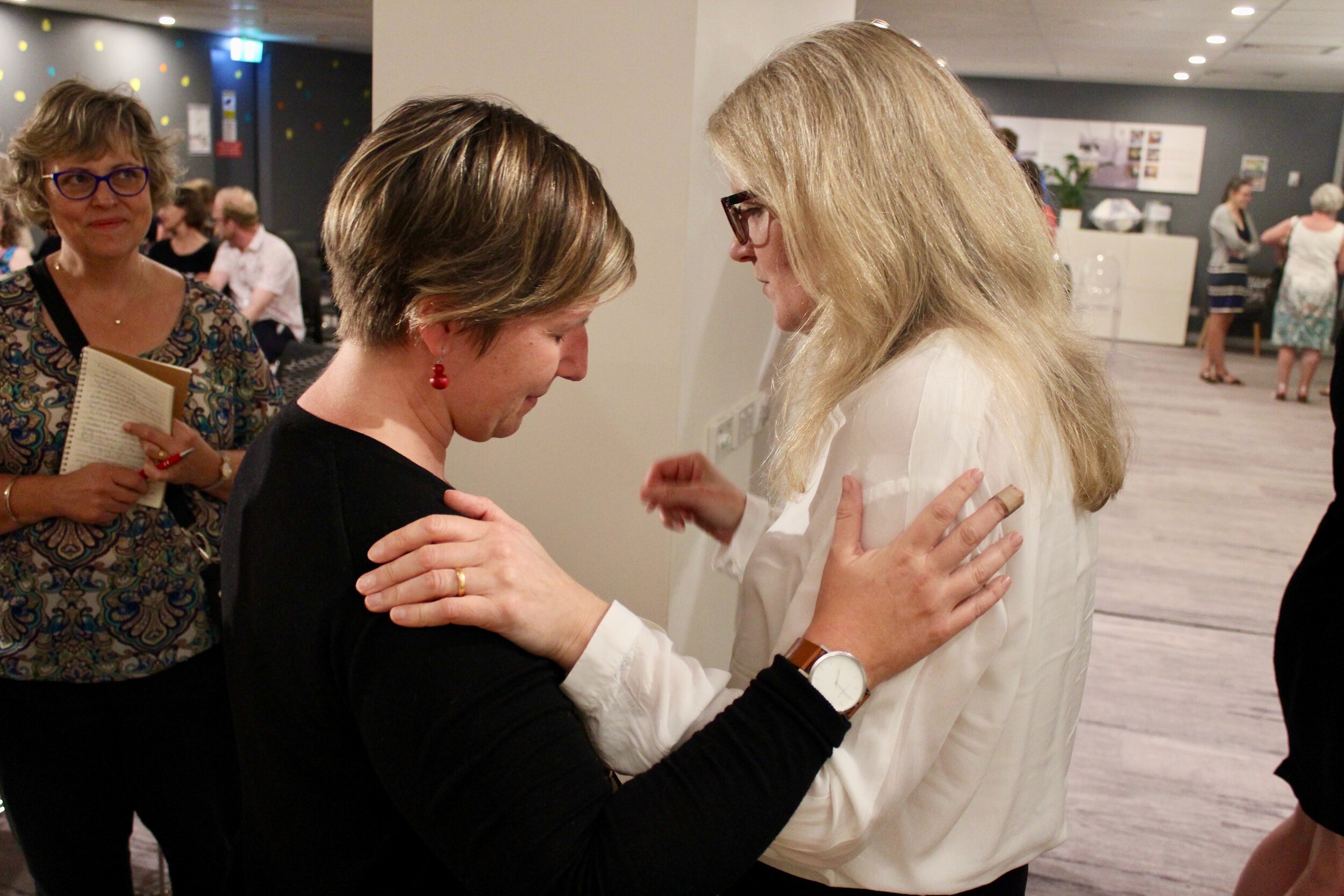
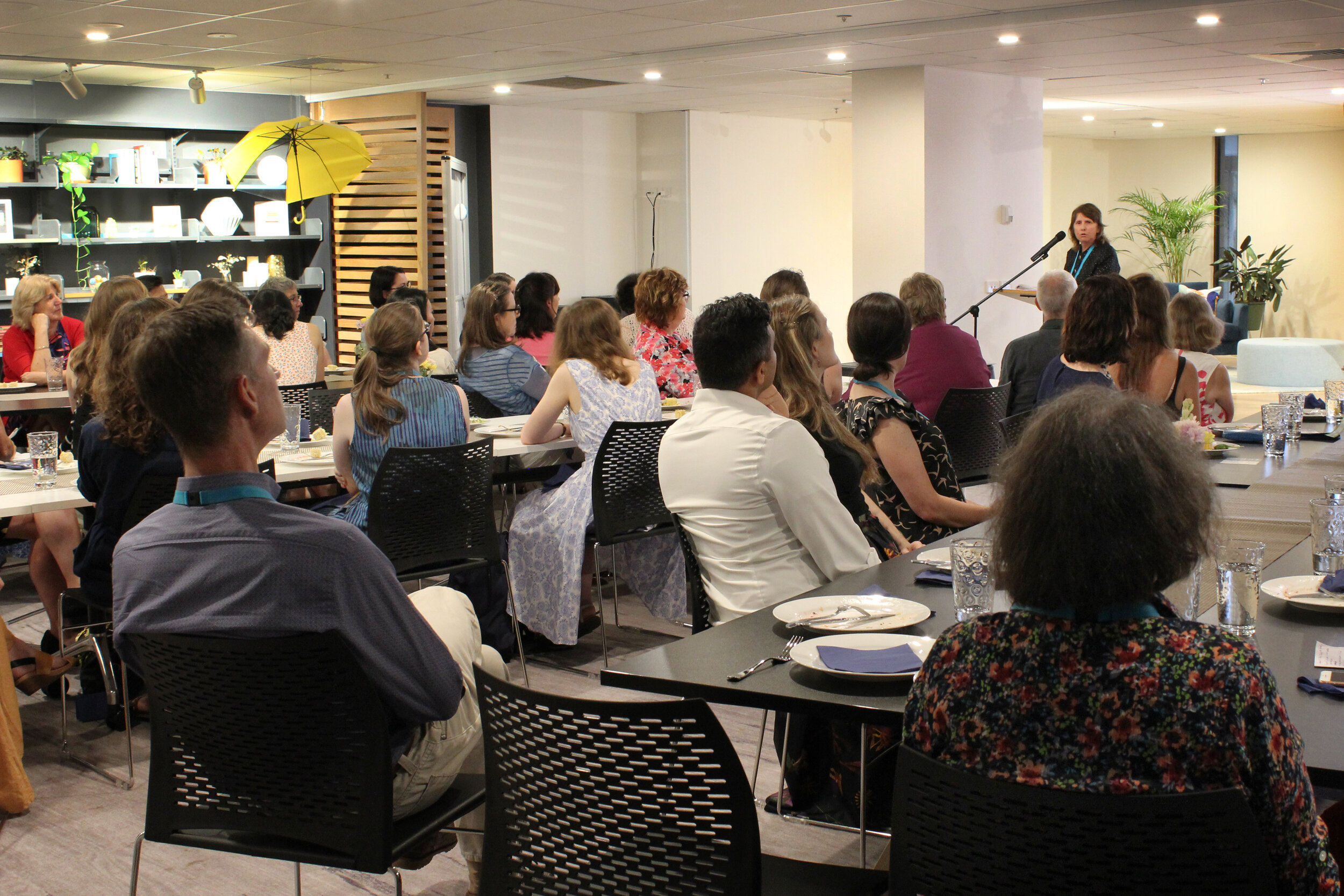


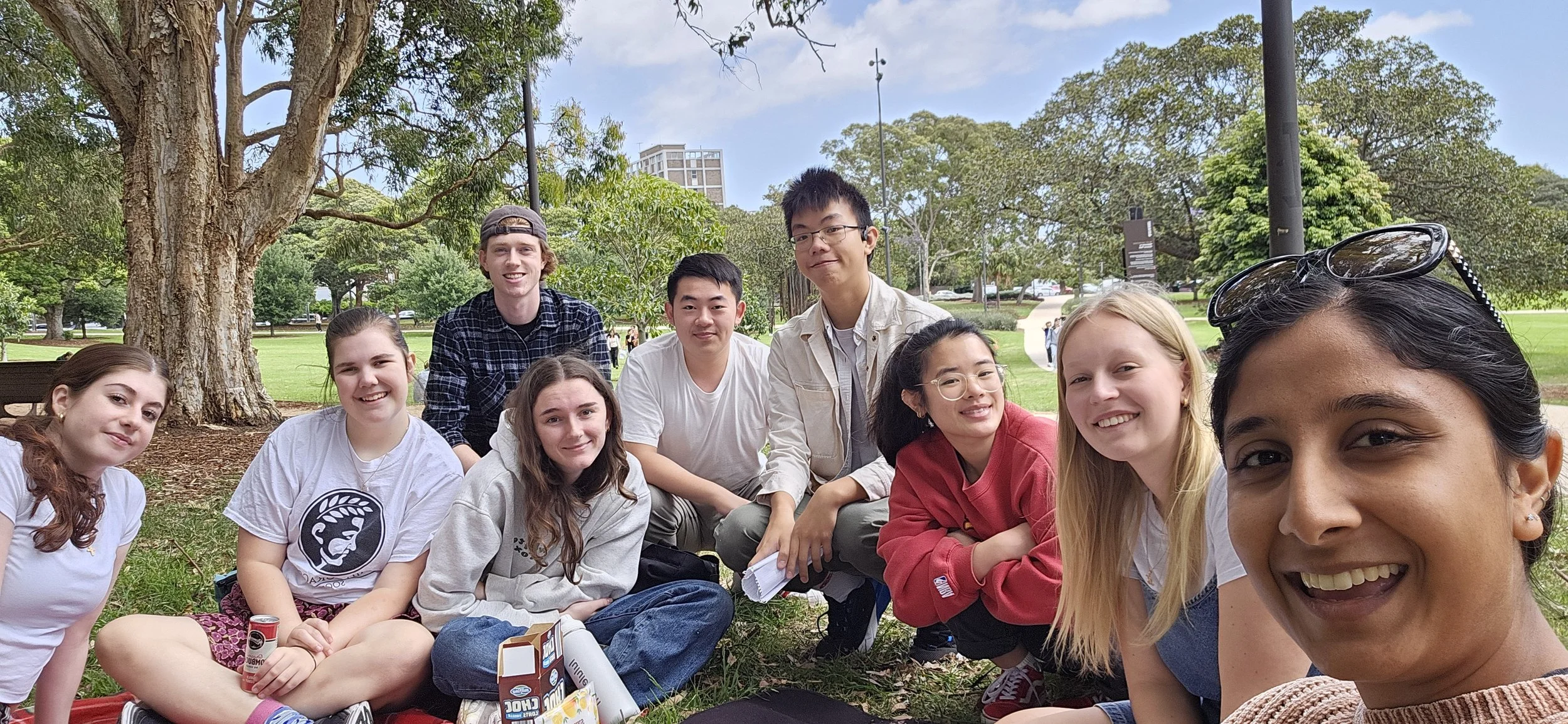





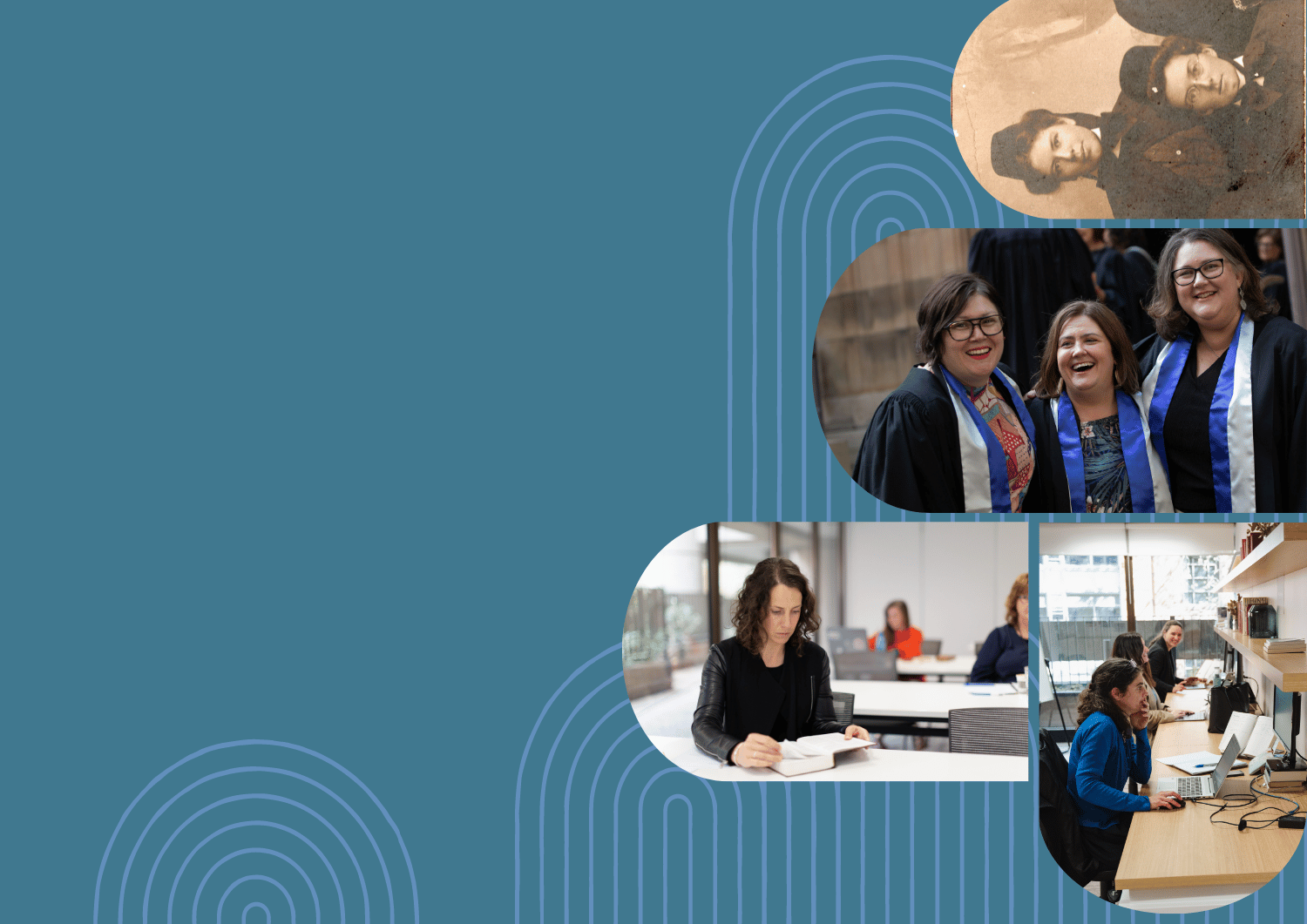
From Surviving to Flourishing: Banksia Women’s Journey with Women
What does recovery from trauma look like when it’s led by women, for women, and grounded in gospel-shaped hope? That’s the heartbeat of Banksia Women—a Sydney-based ministry supporting women who’ve experienced domestic abuse.
Founded in 2019, Banksia Women walks alongside women in their healing journey—offering care, connection, and community in the name of Christ. With the help of a Women in Ministry Support Scheme (WIMSS) grant from ADM, Banksia Women has been able to grow its services and strengthen the gospel foundations that shape every aspect of their work.